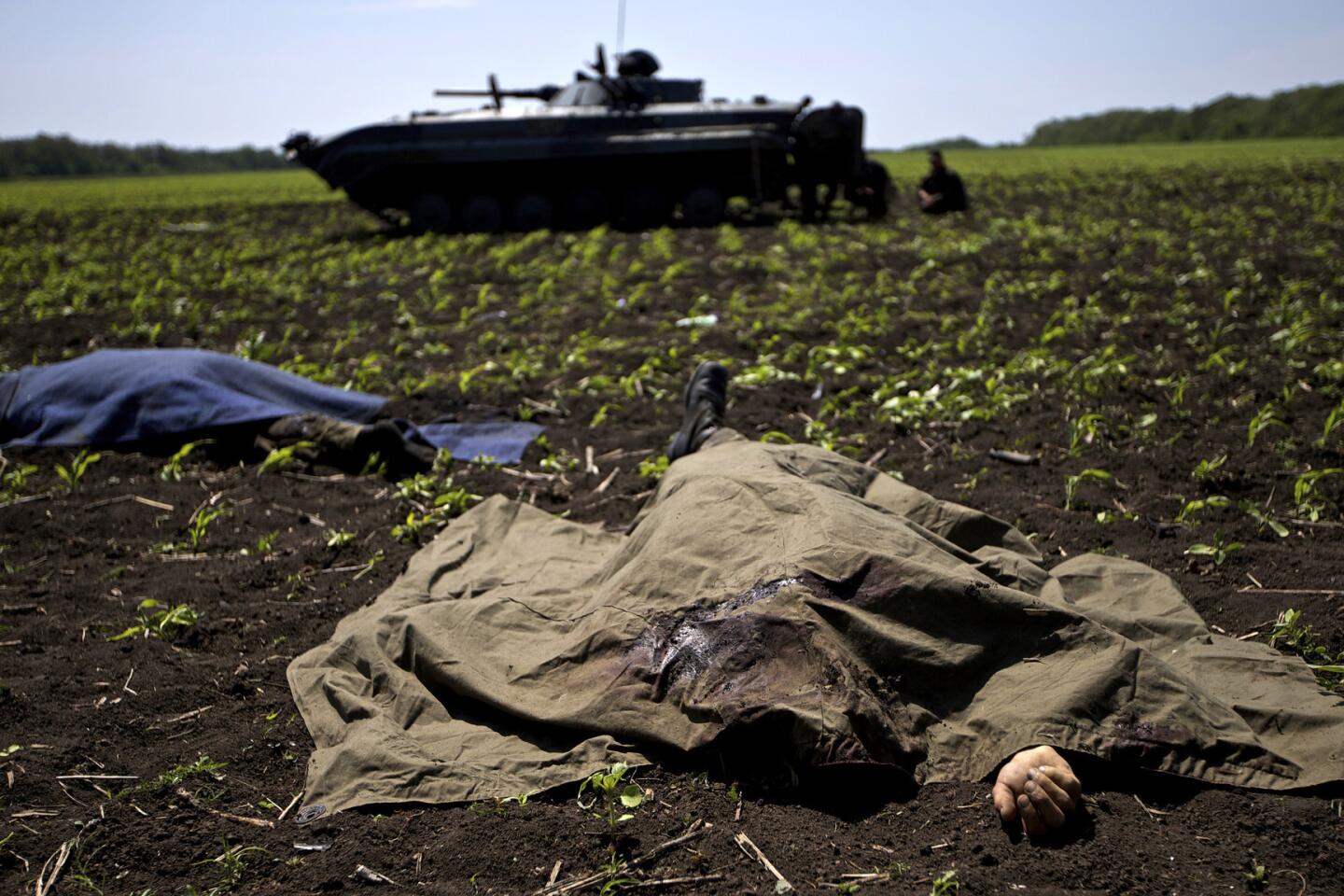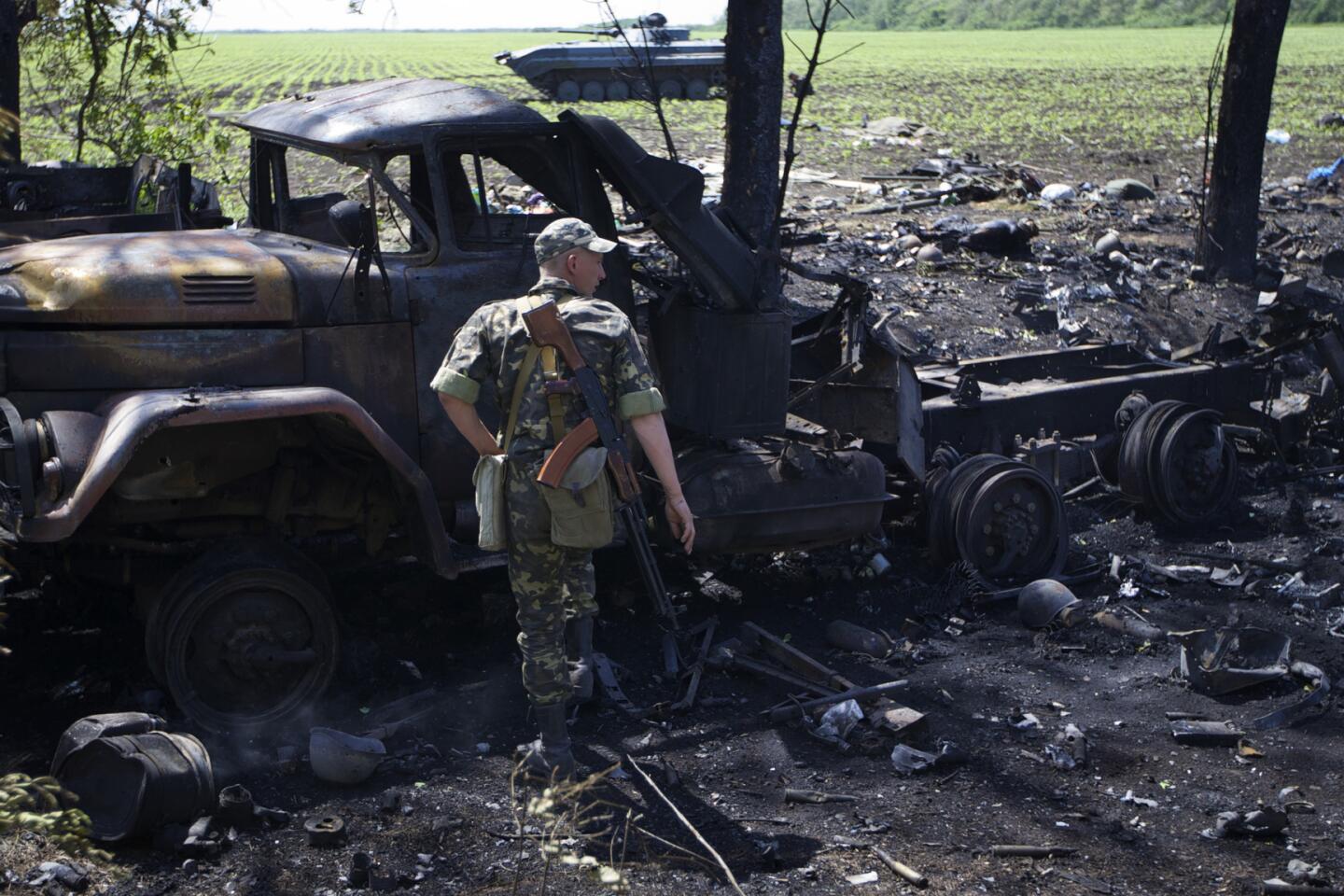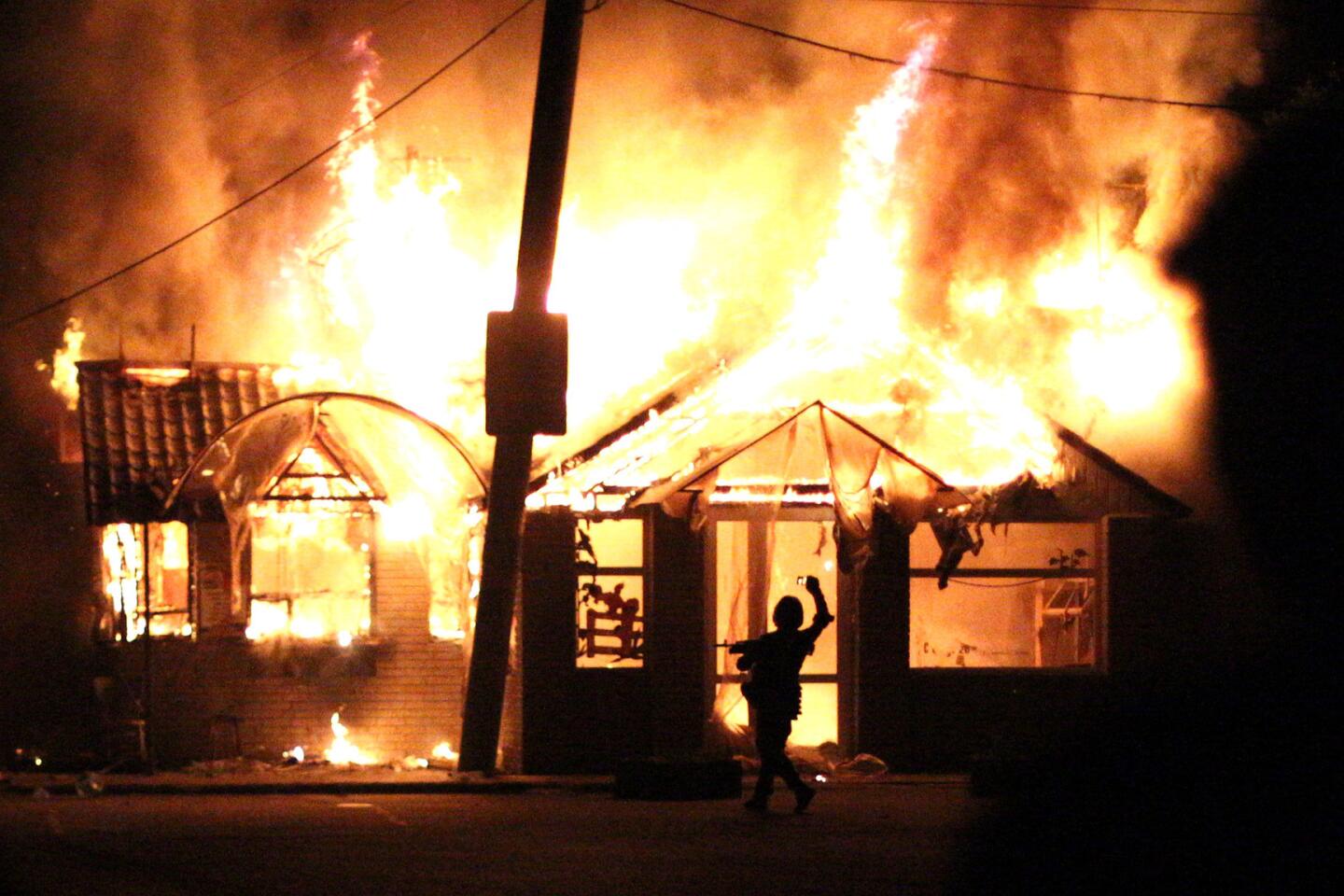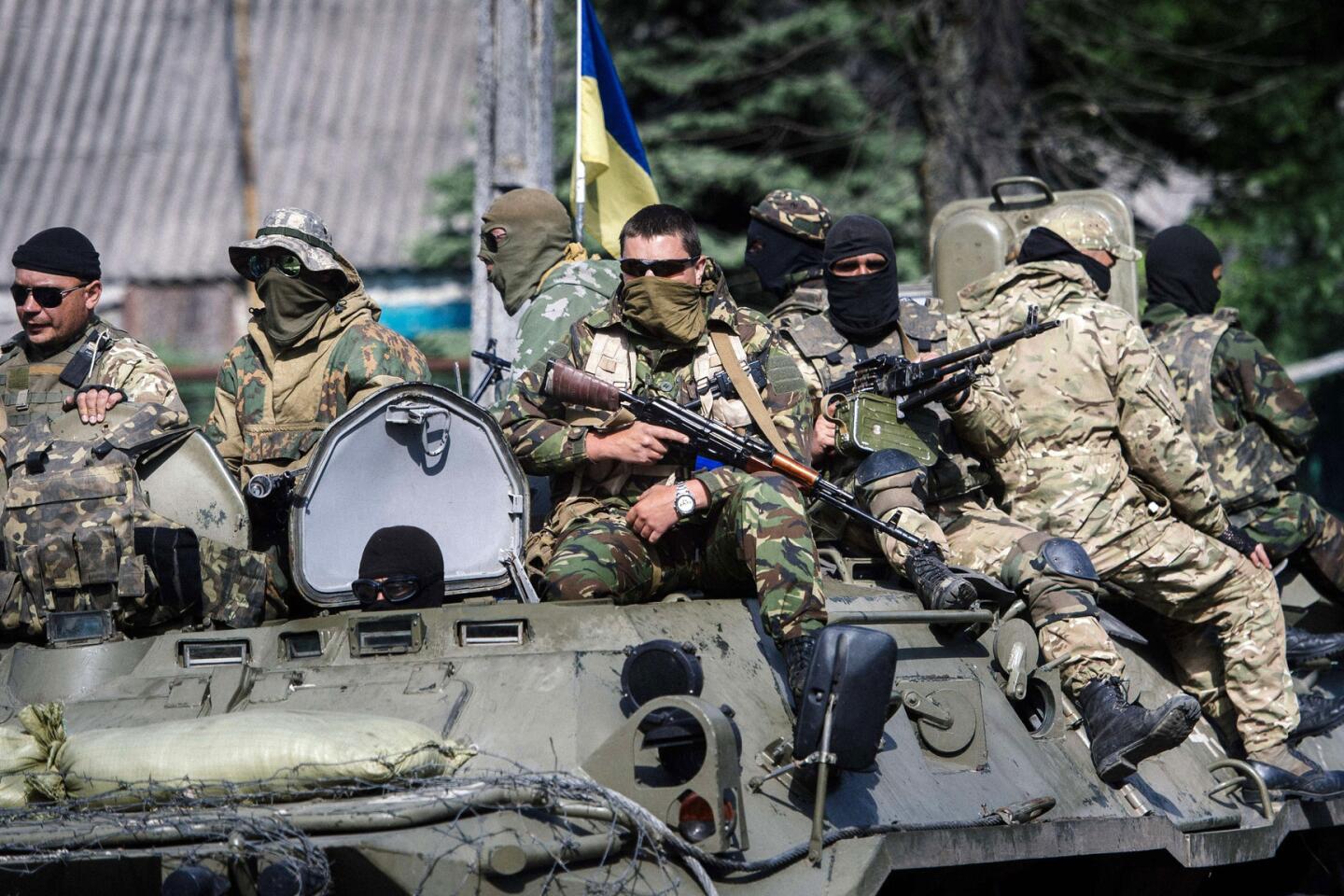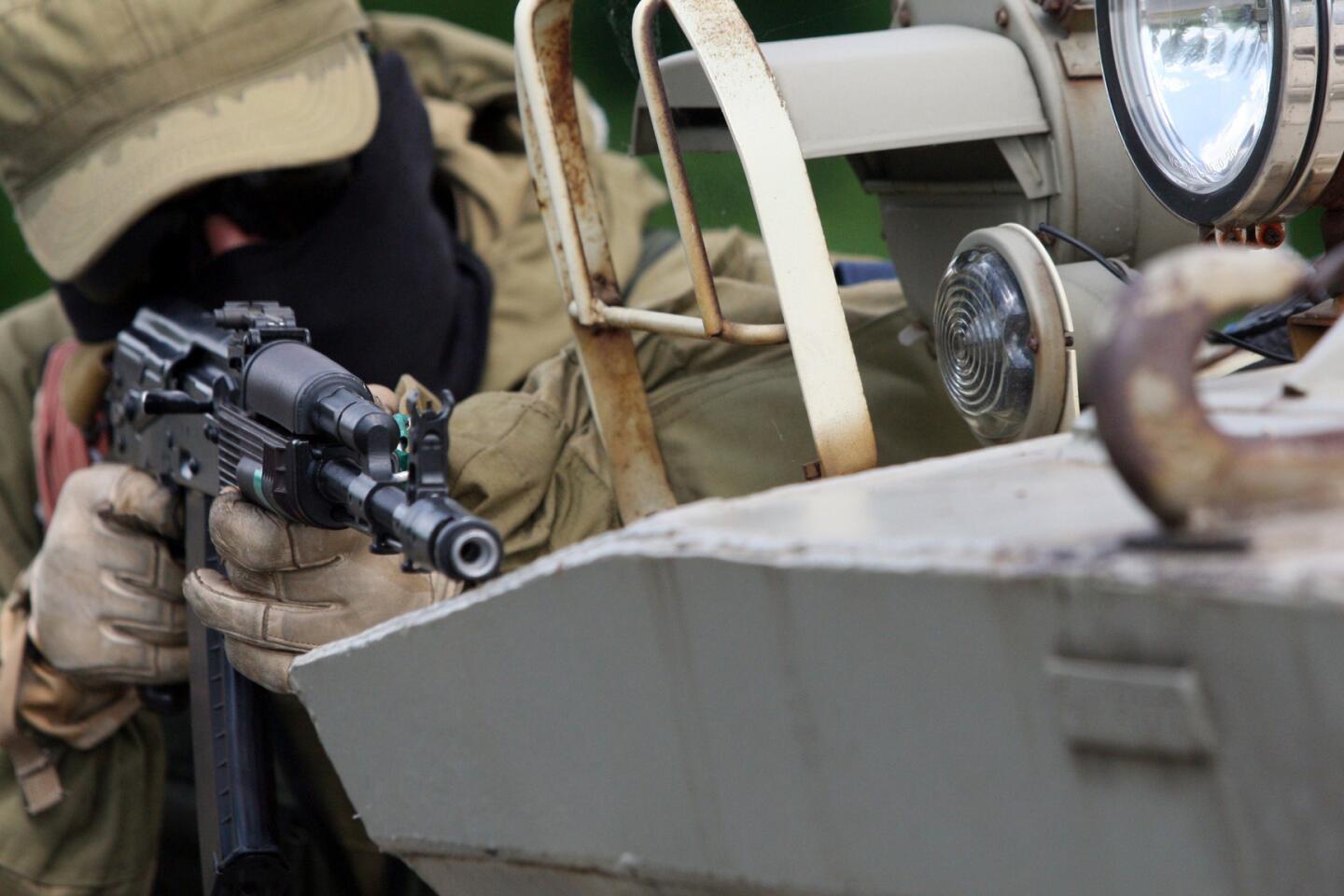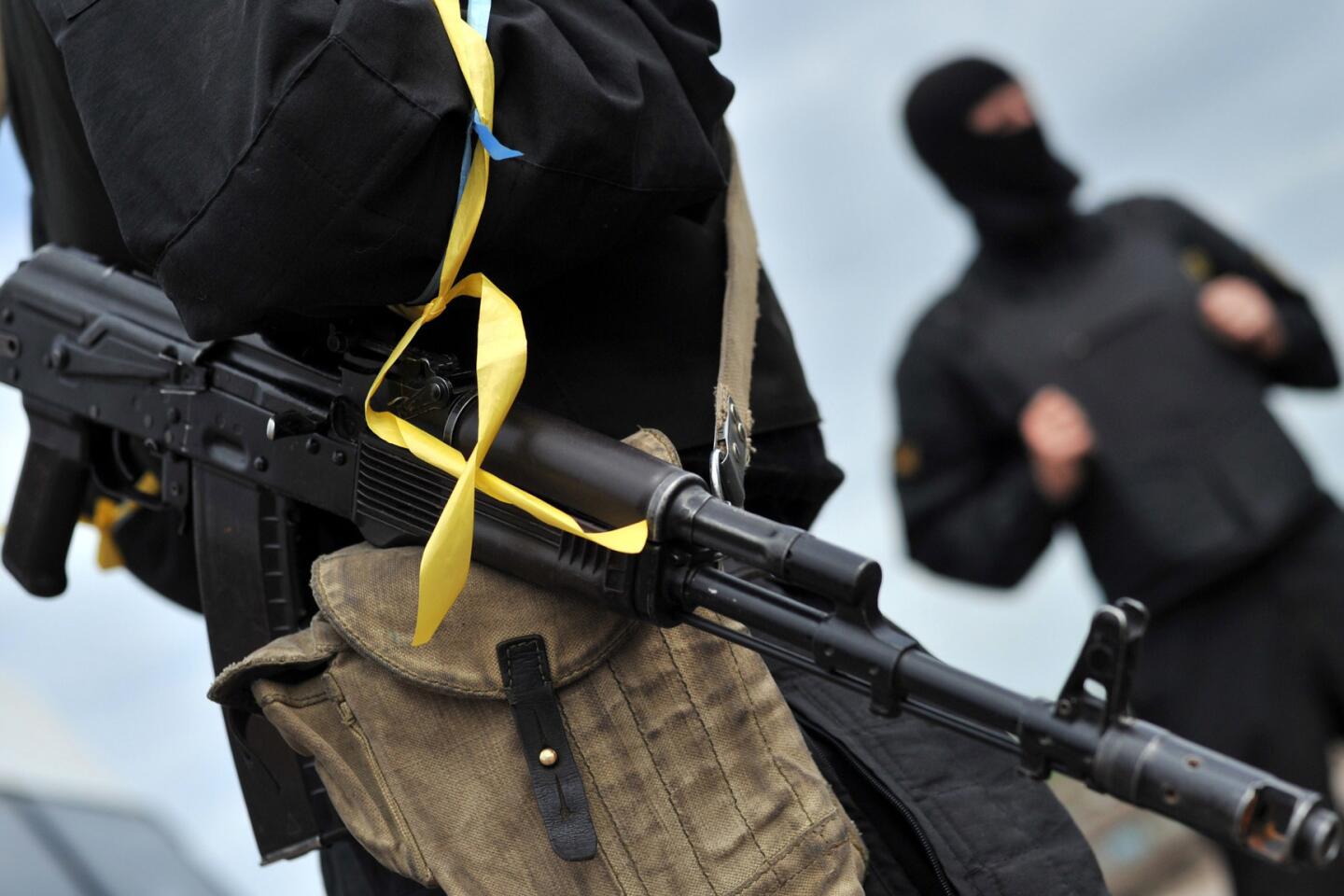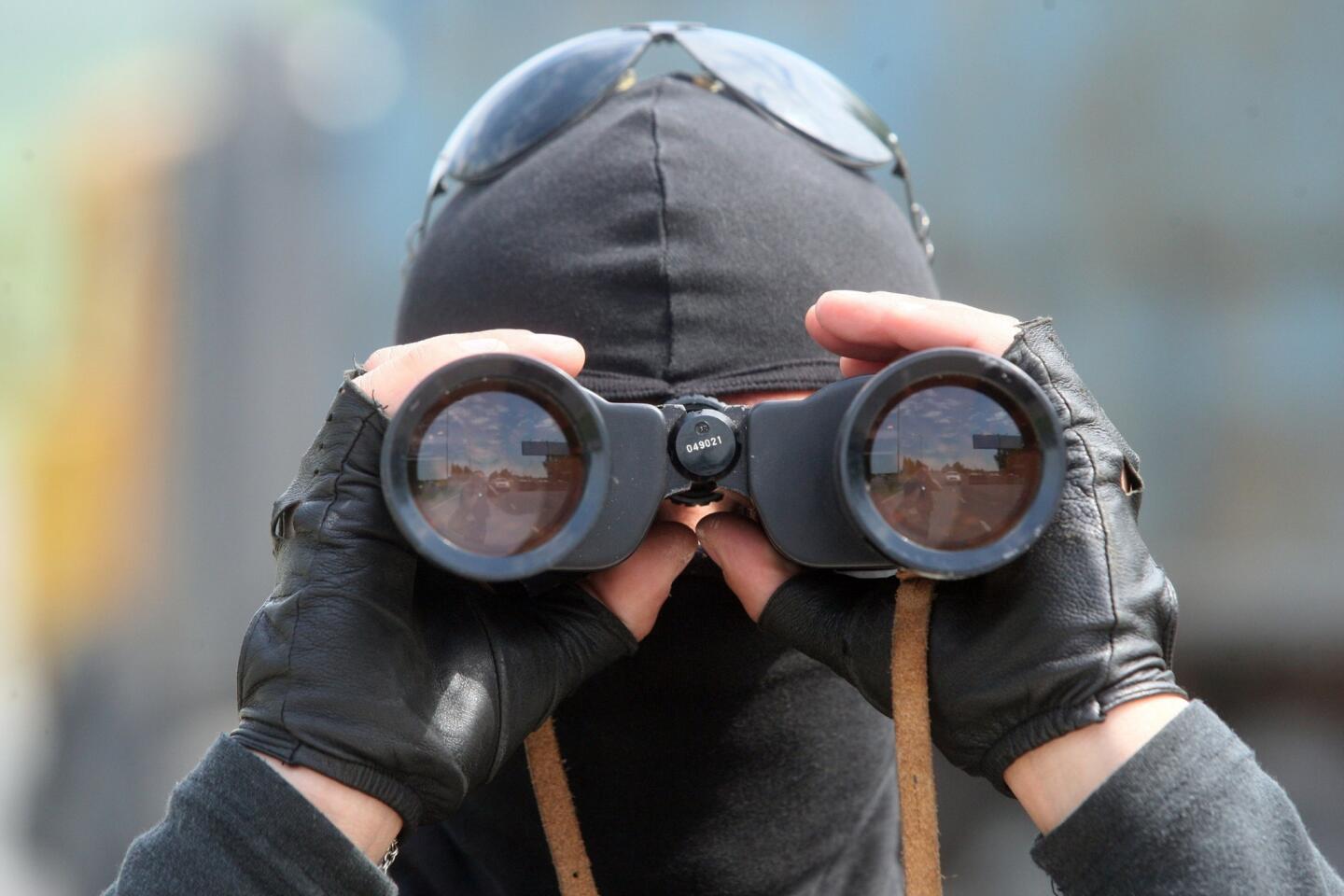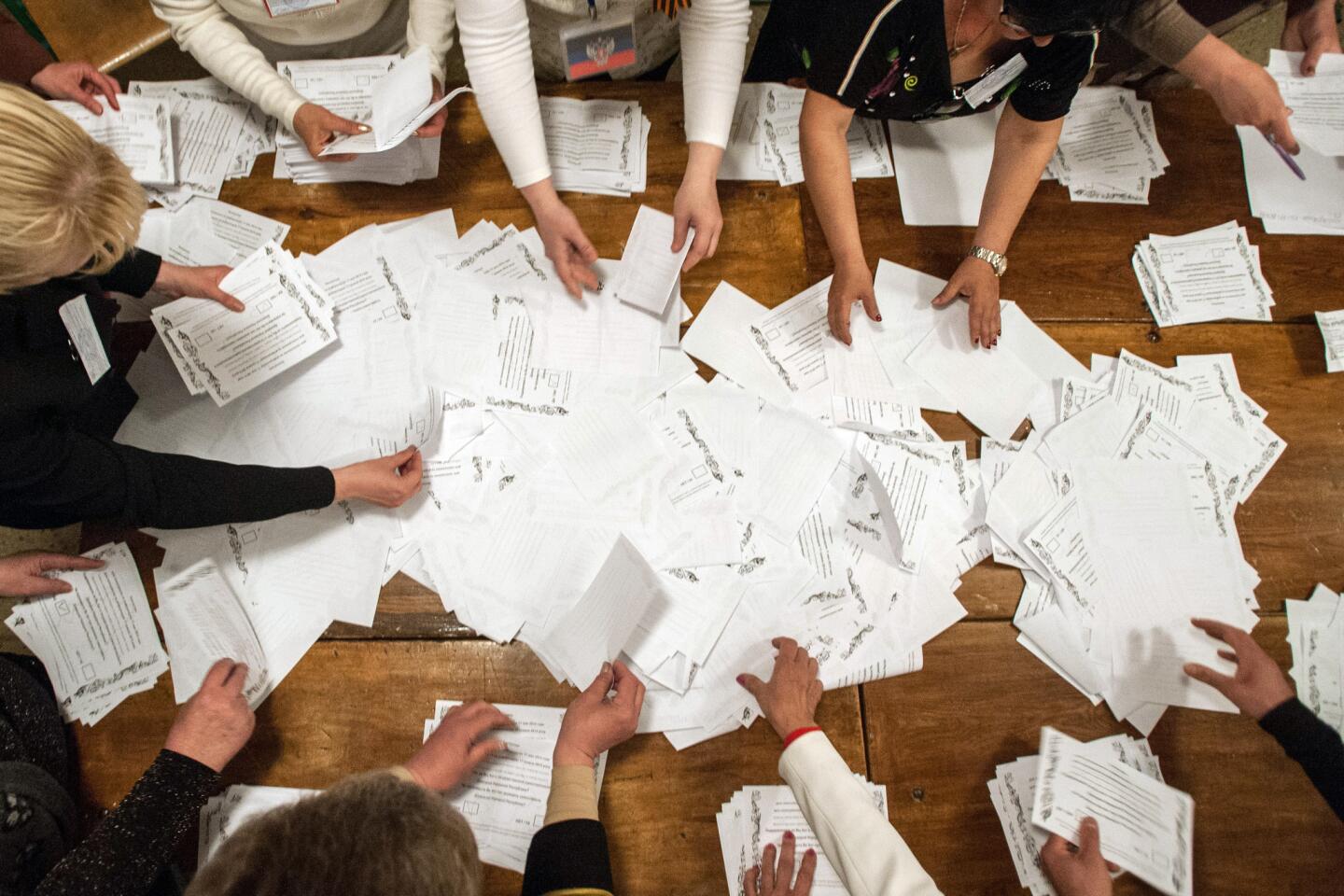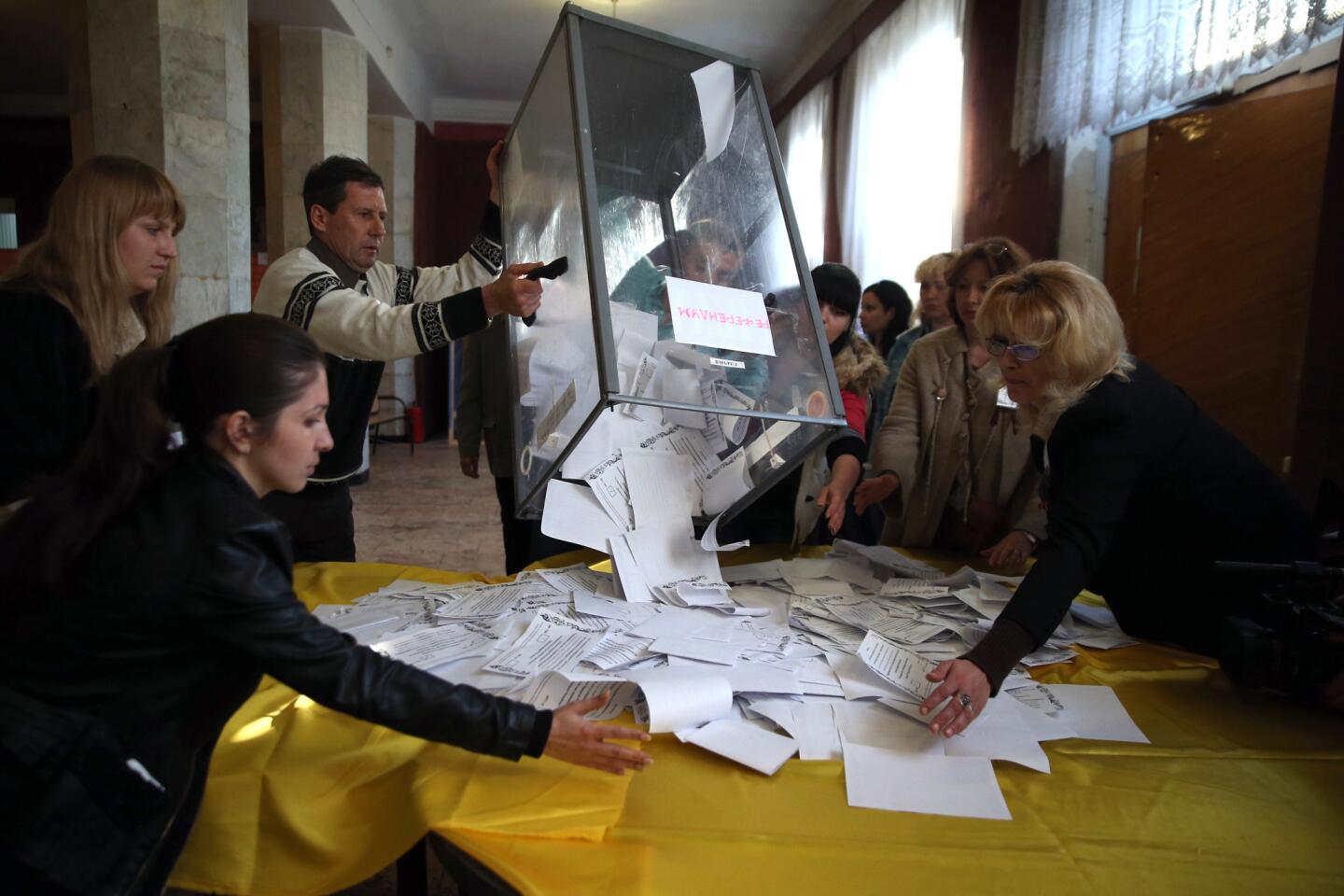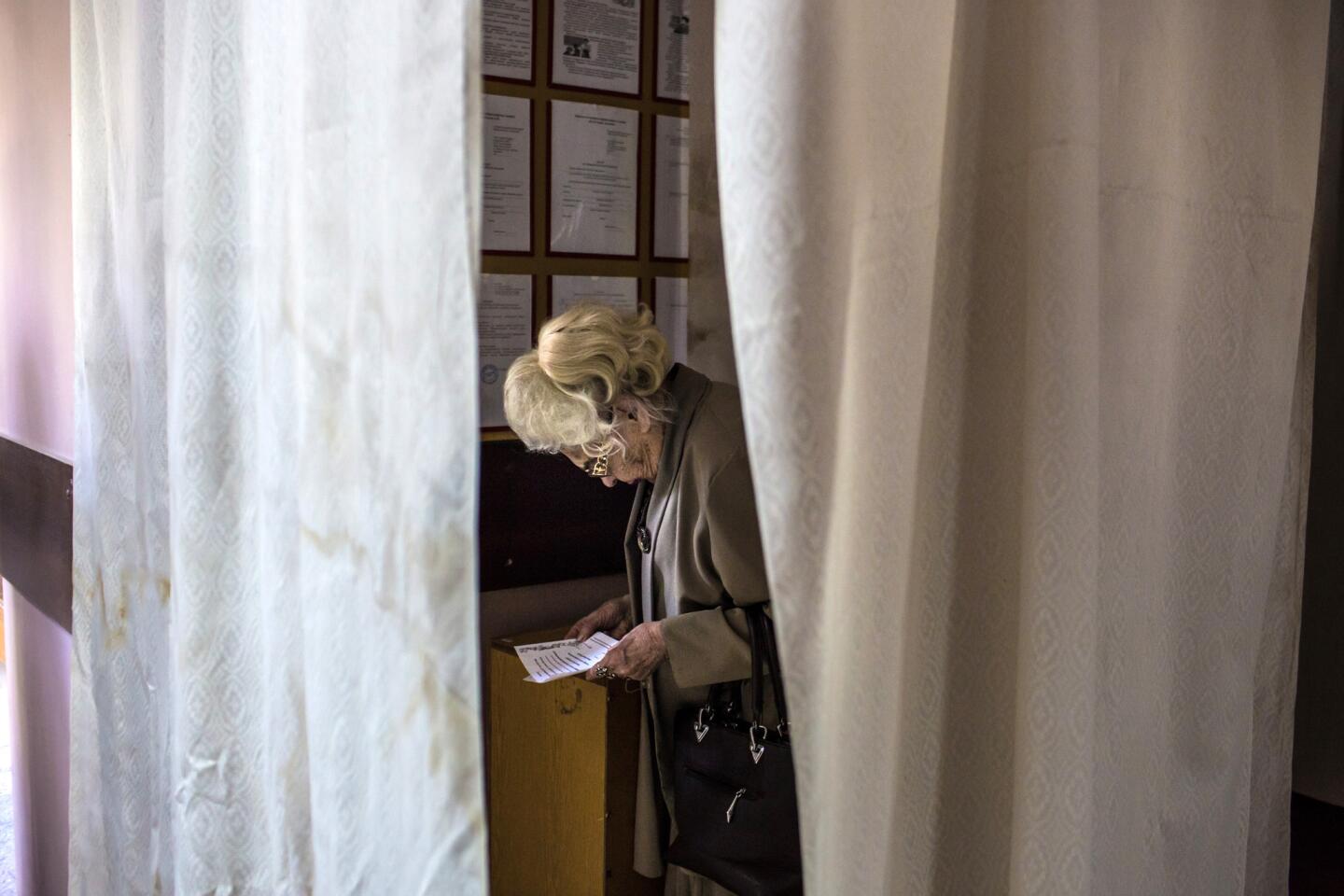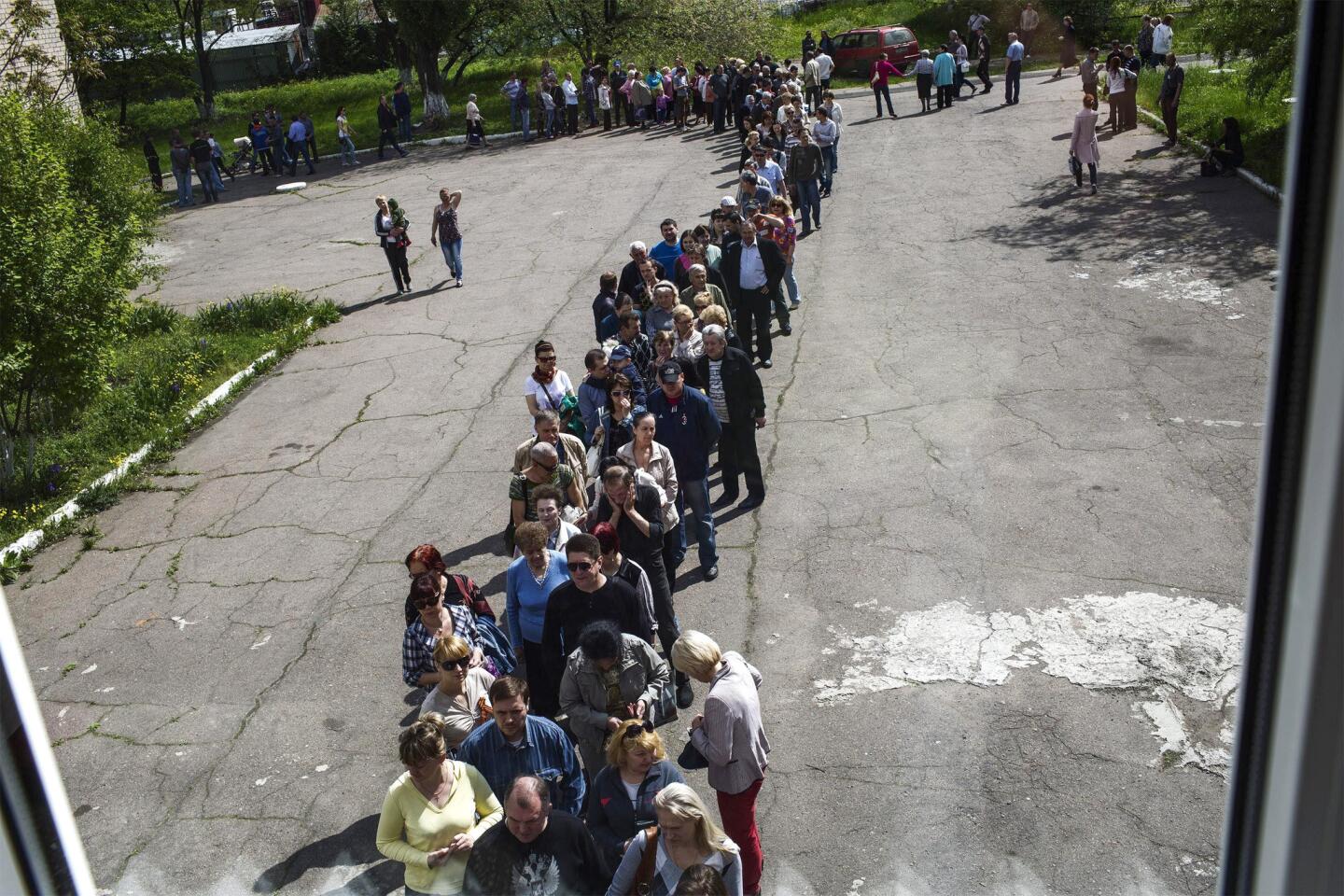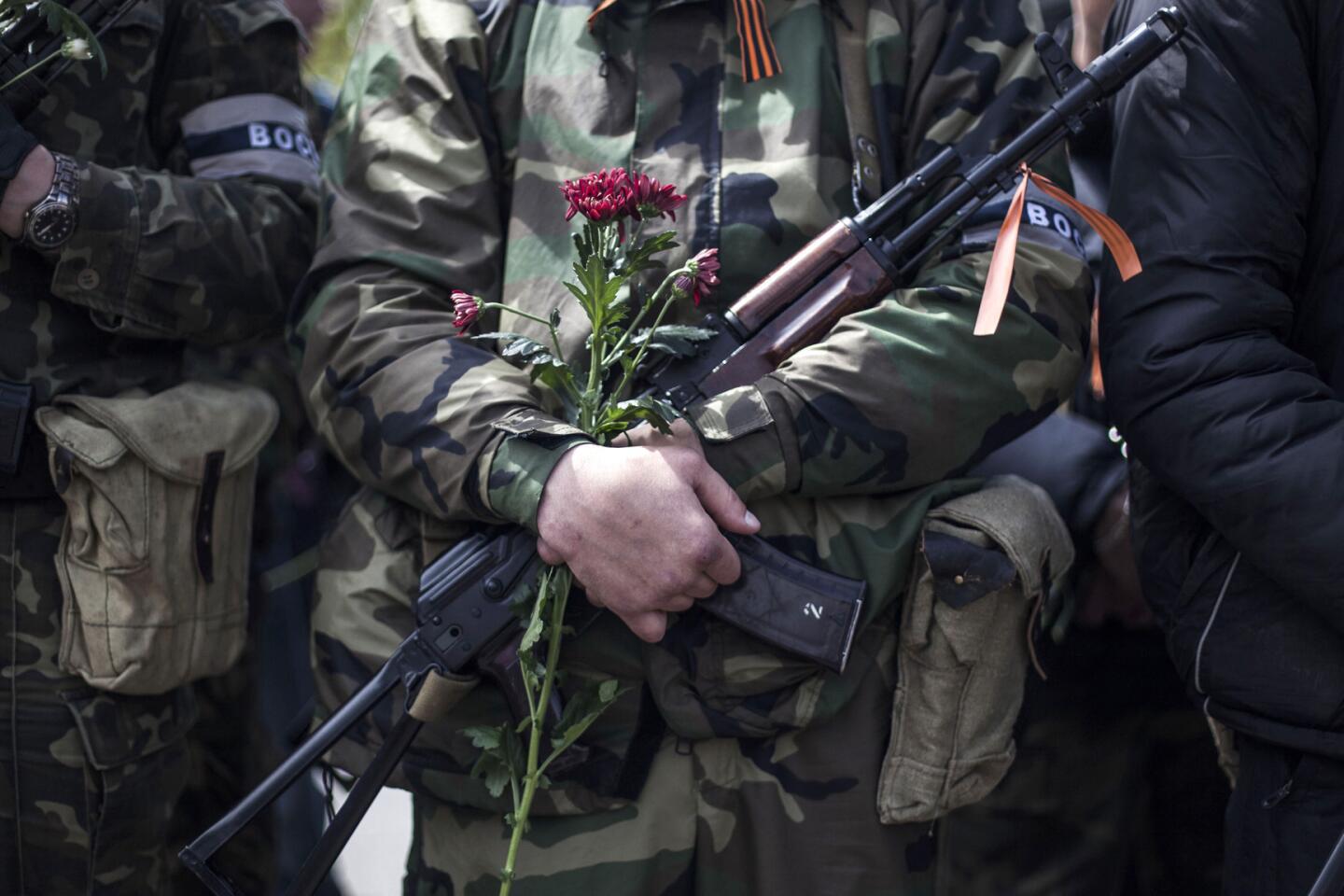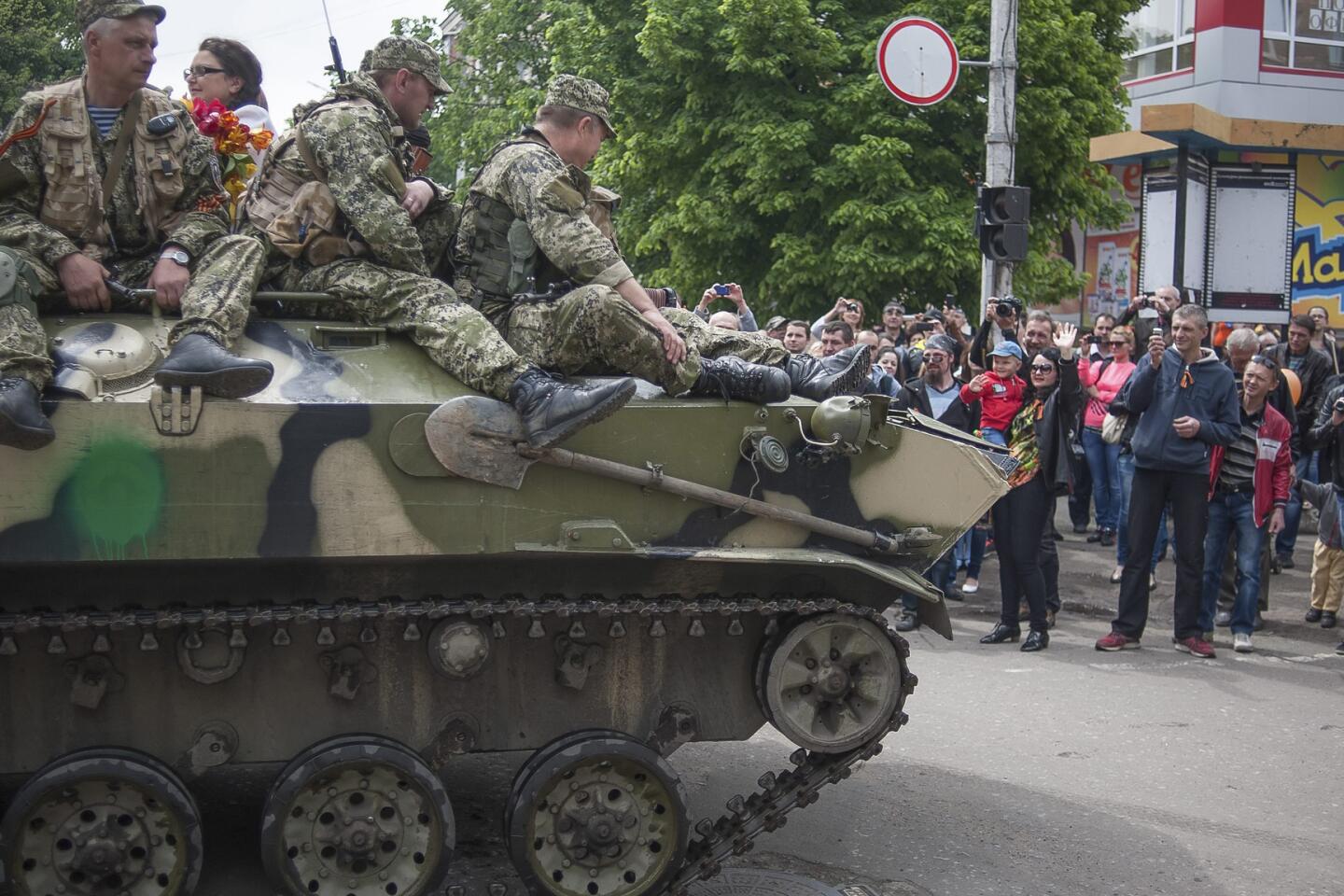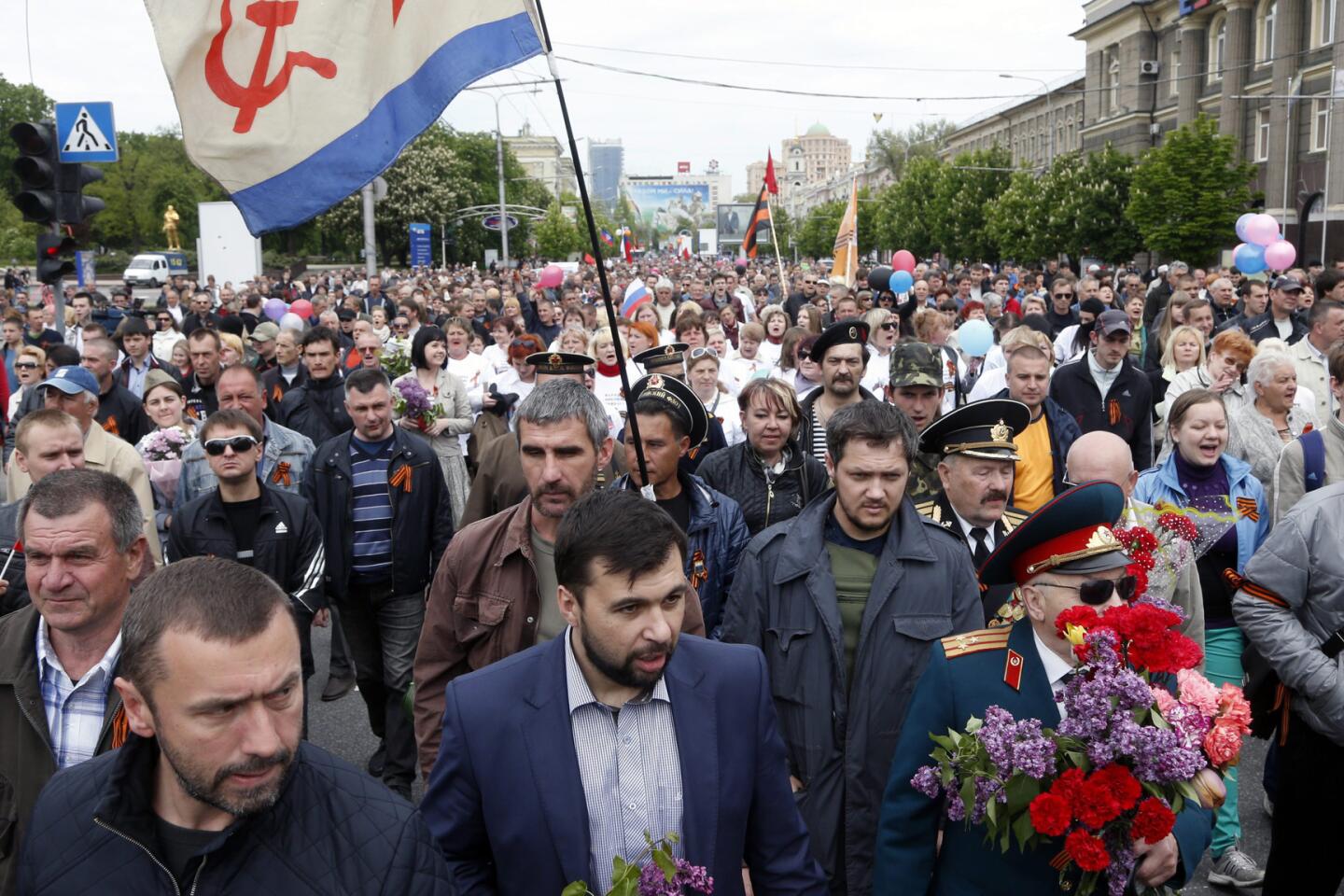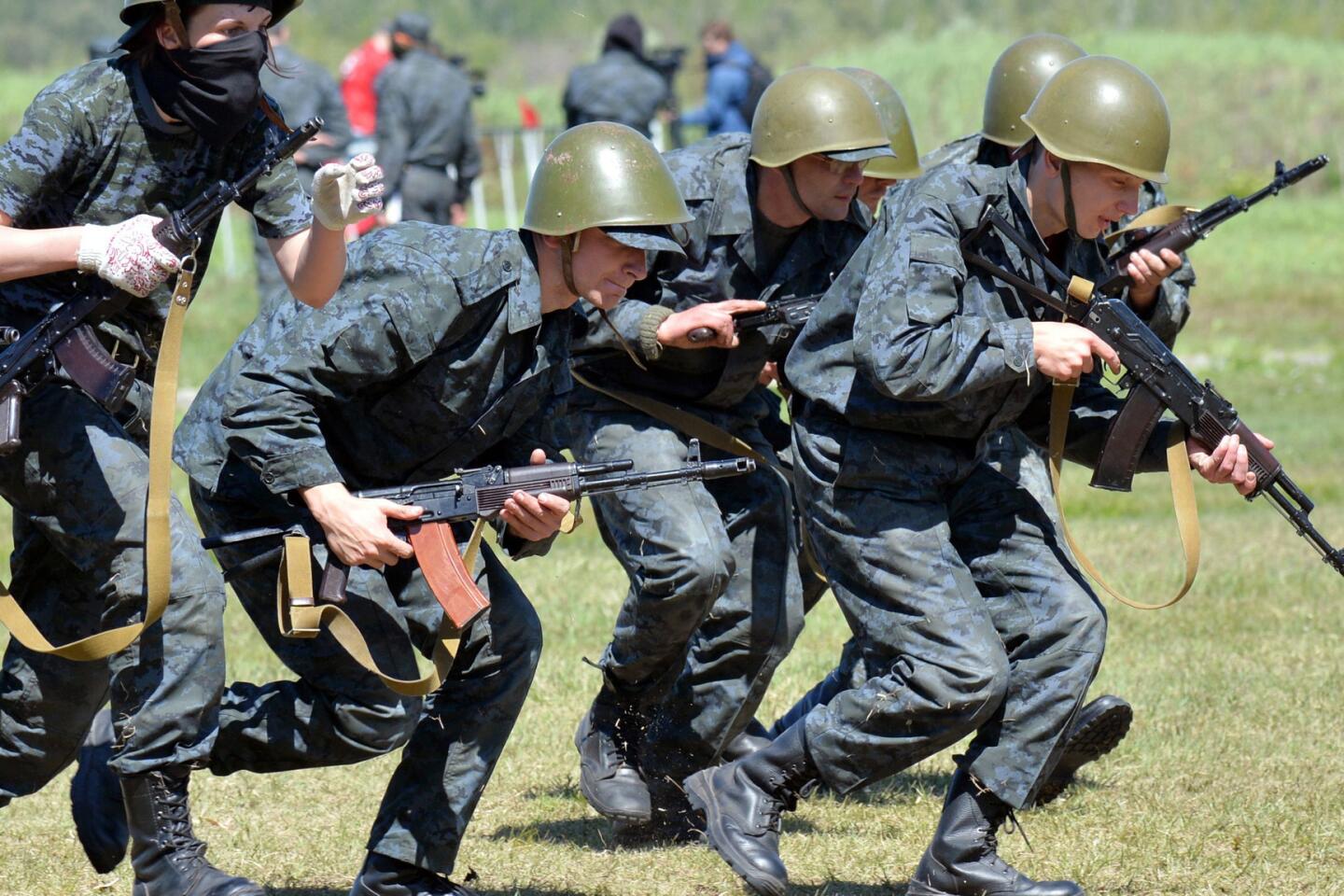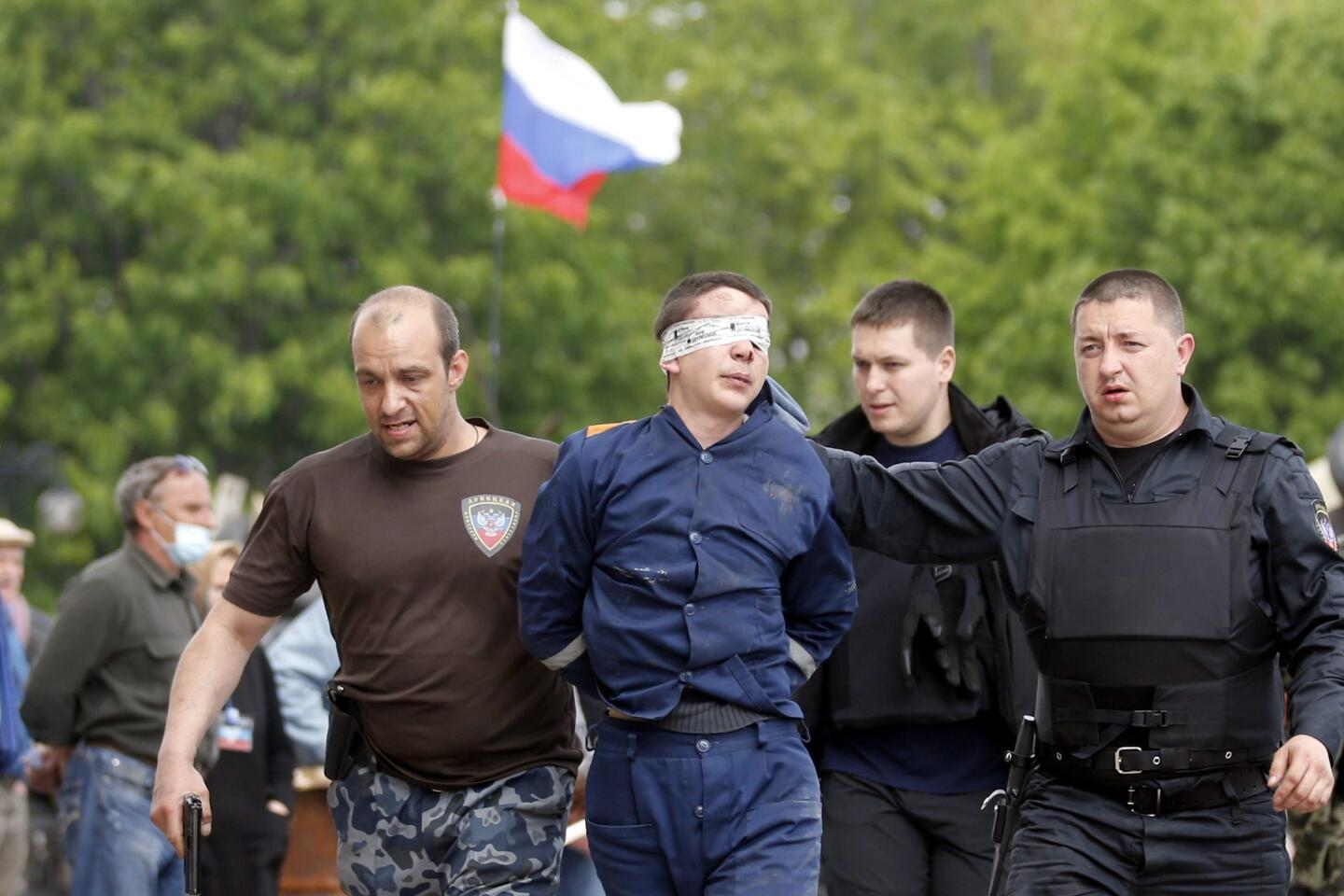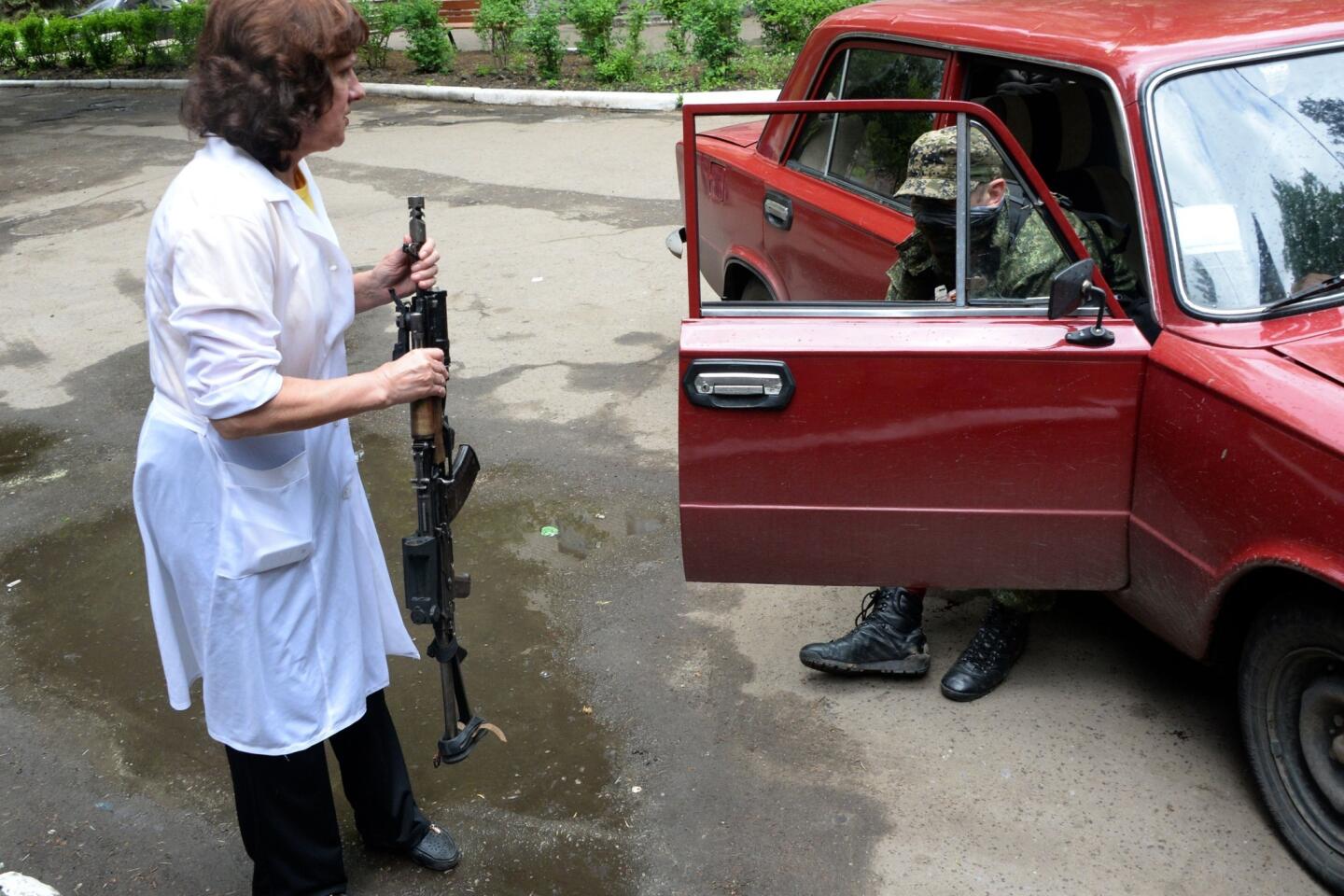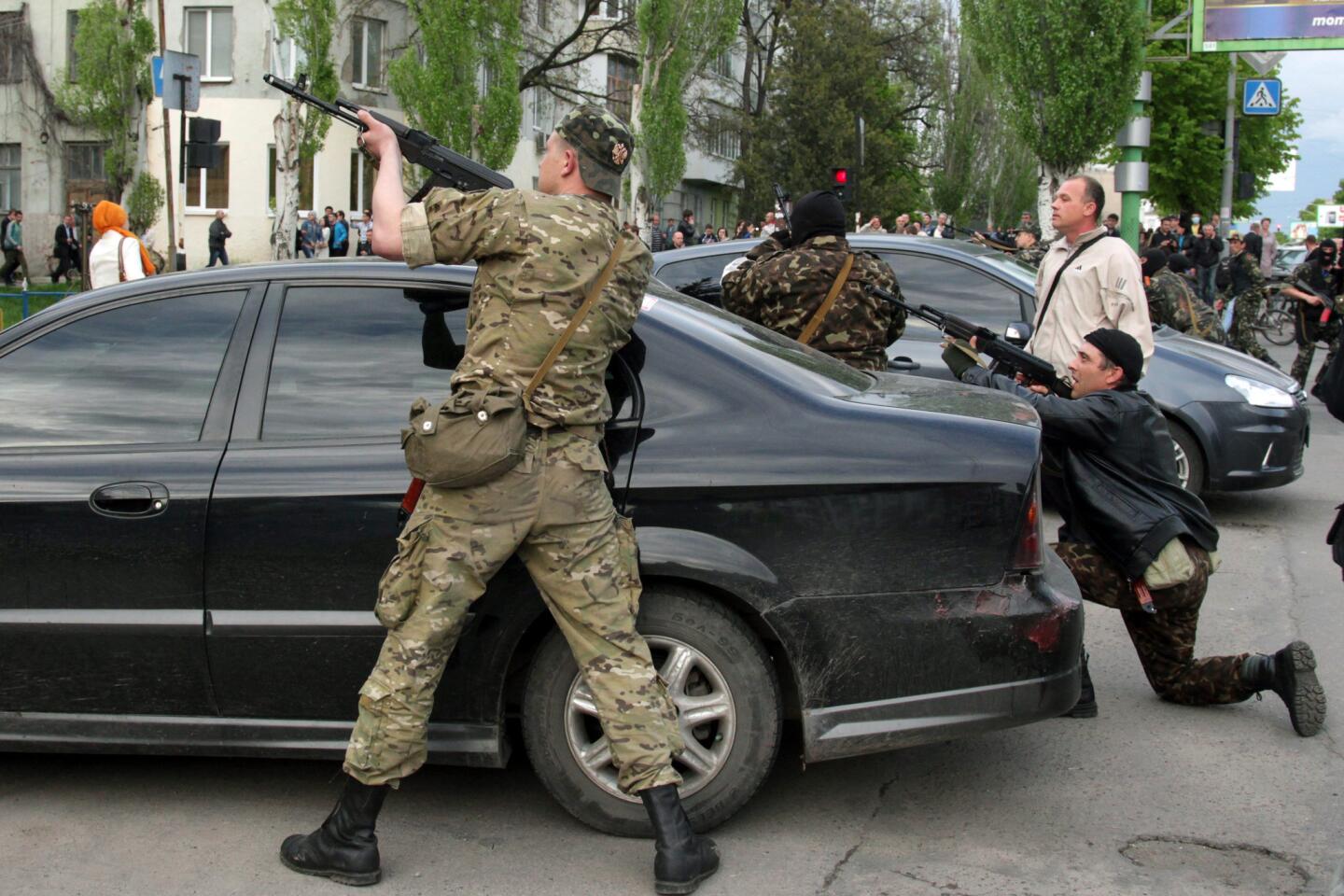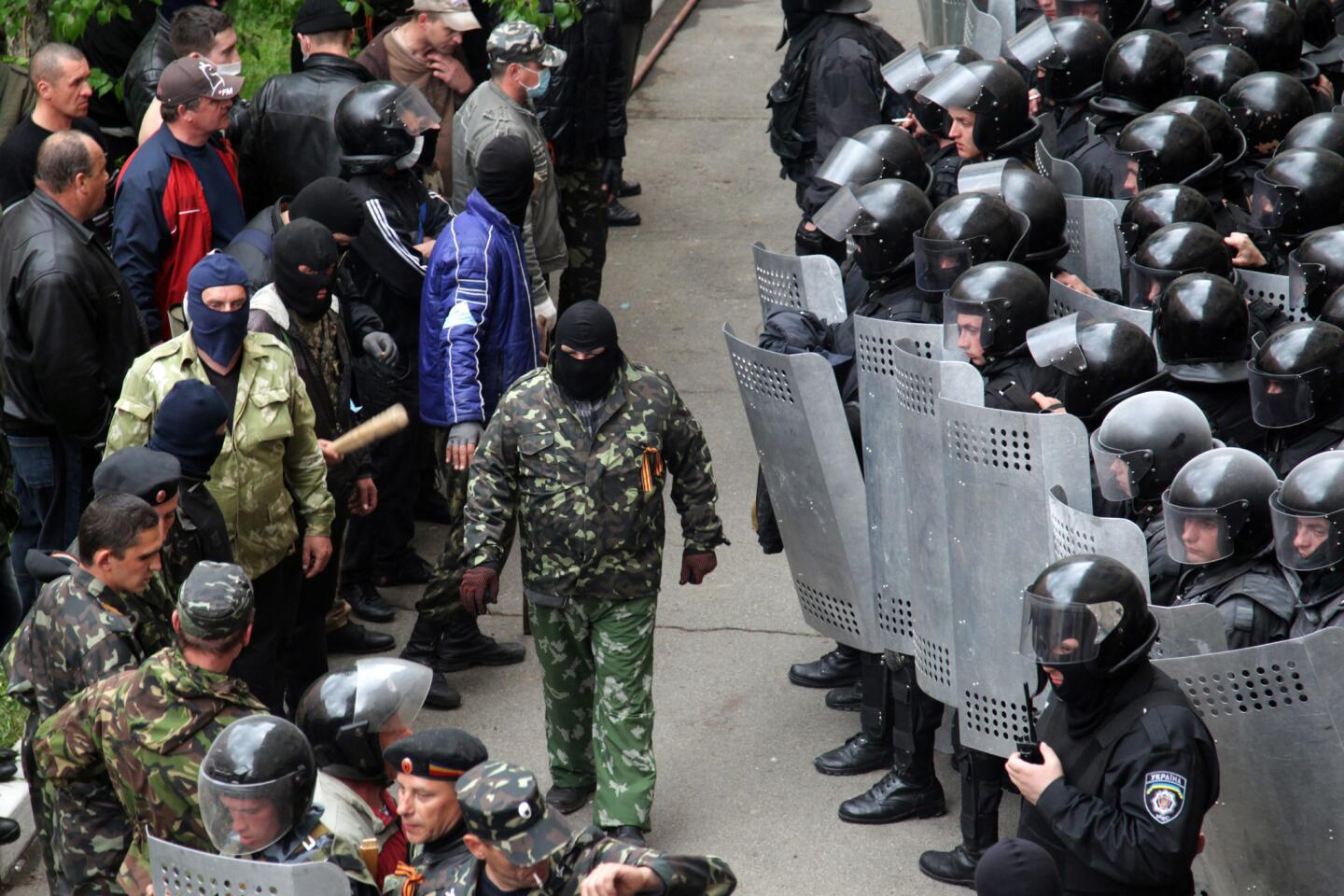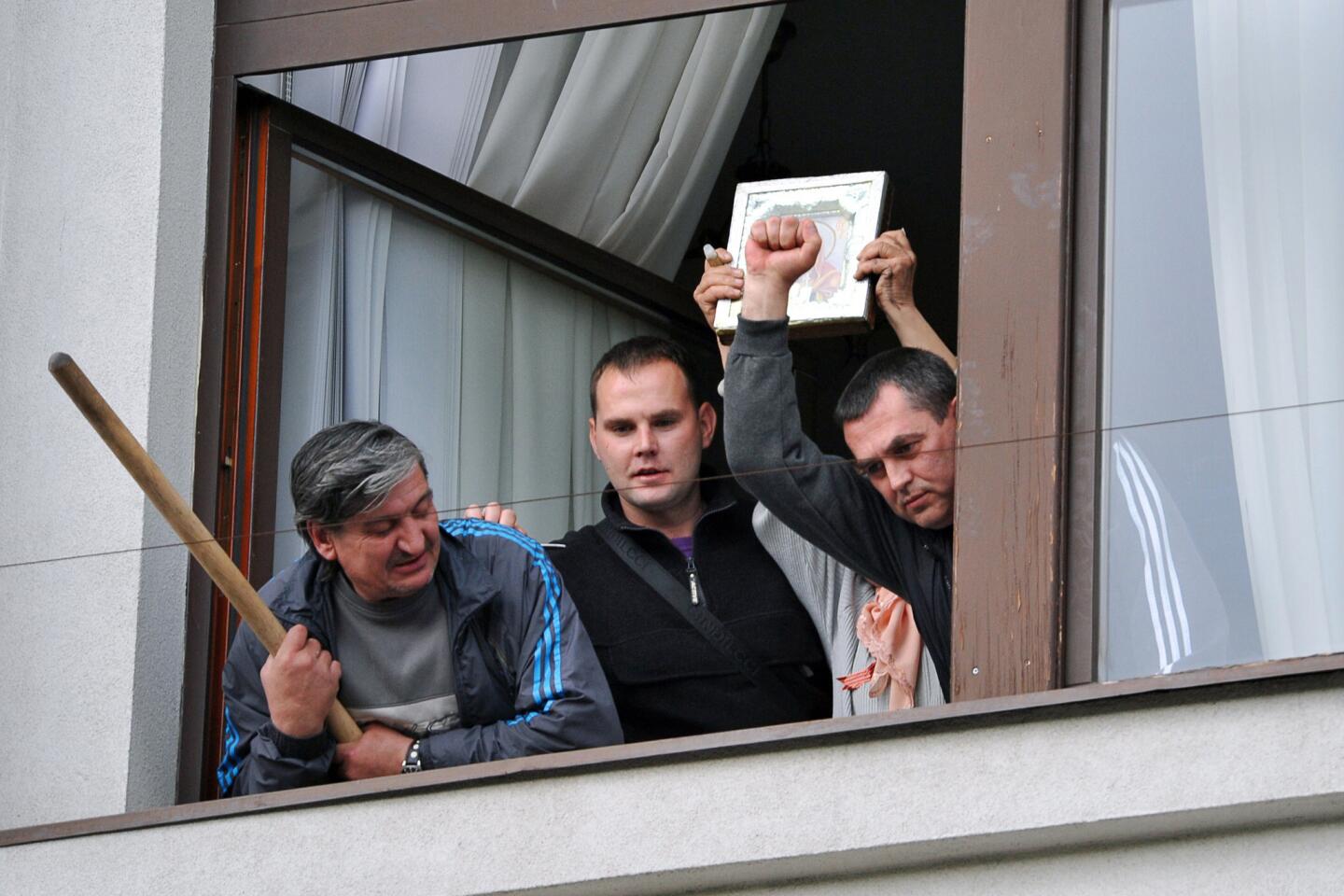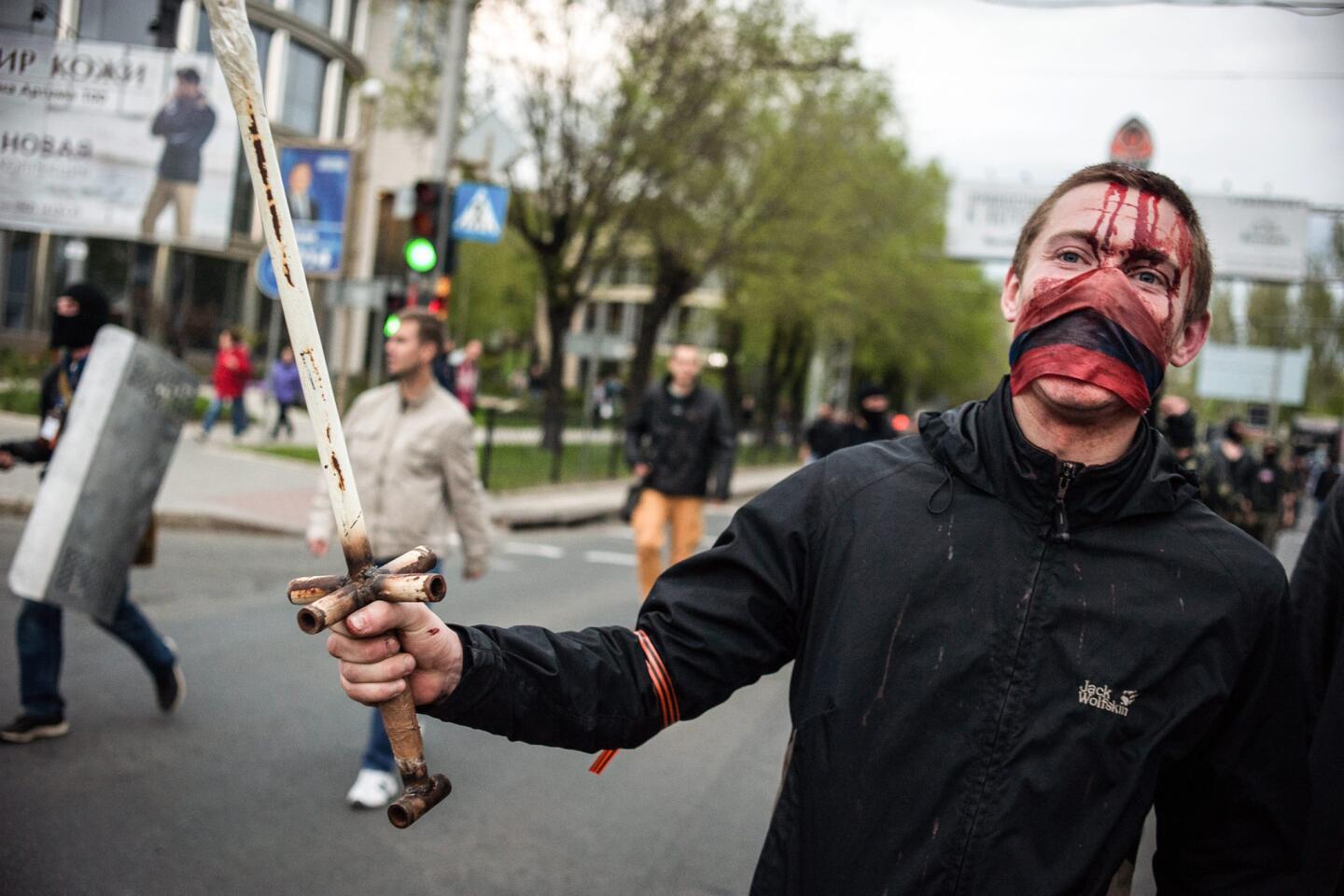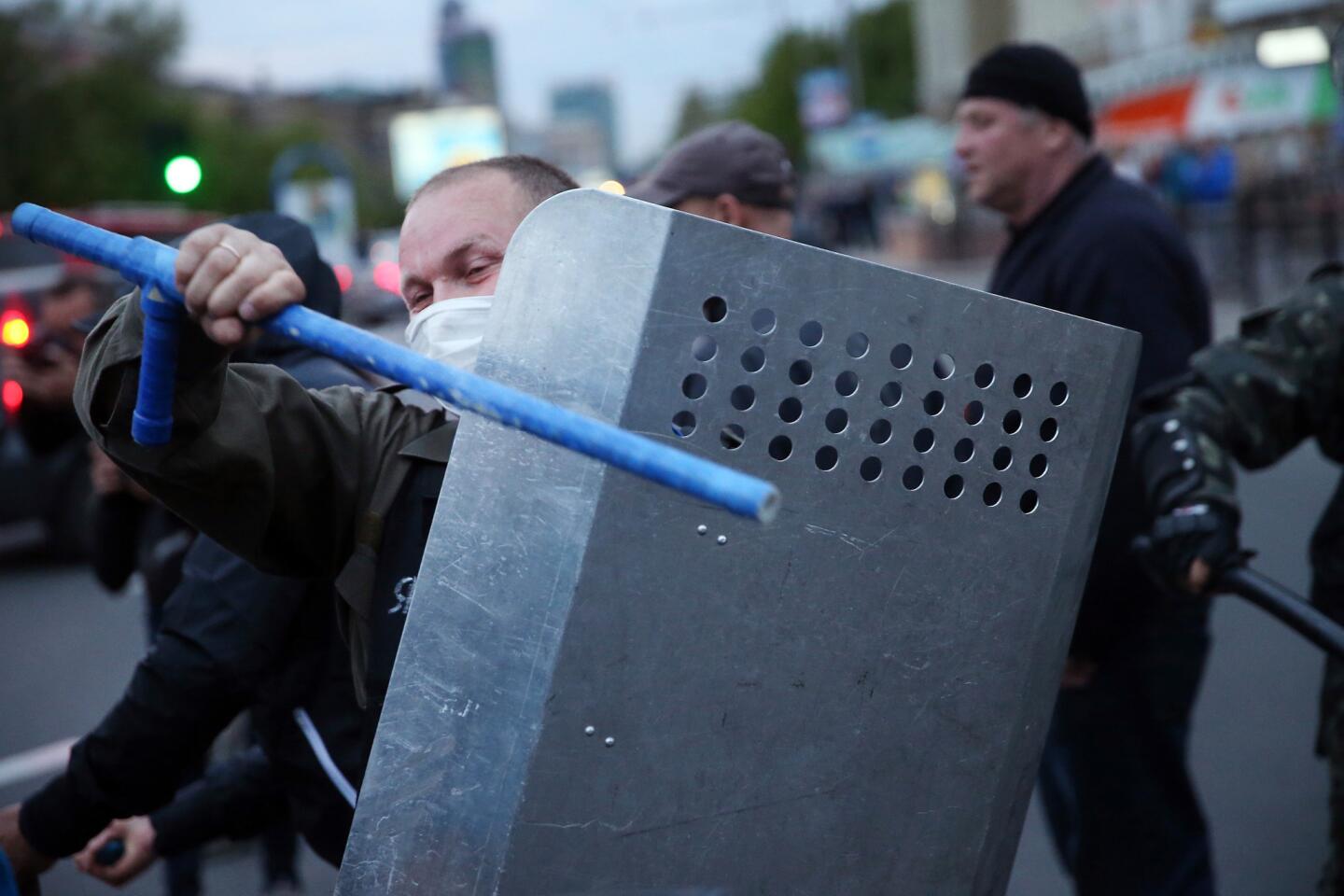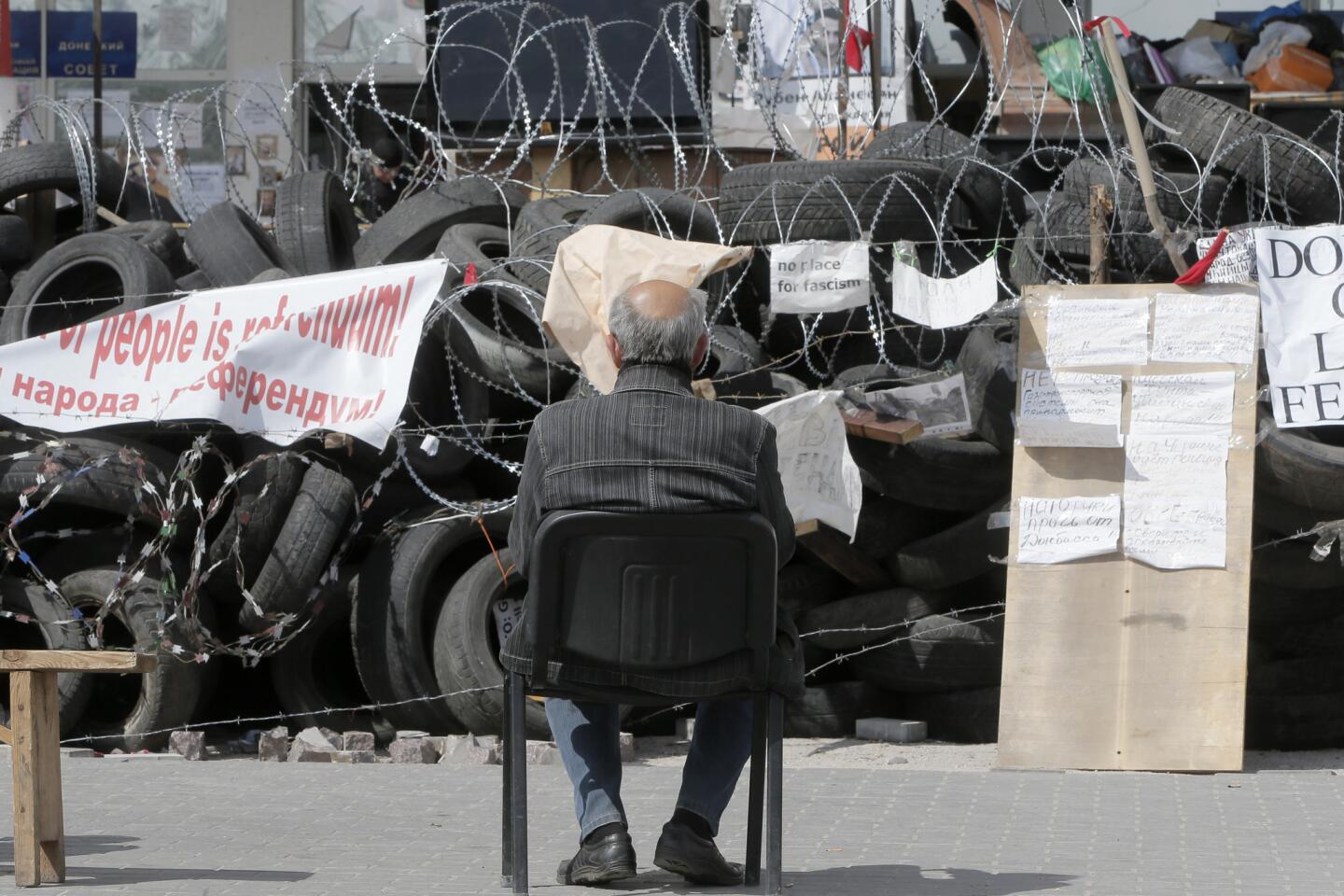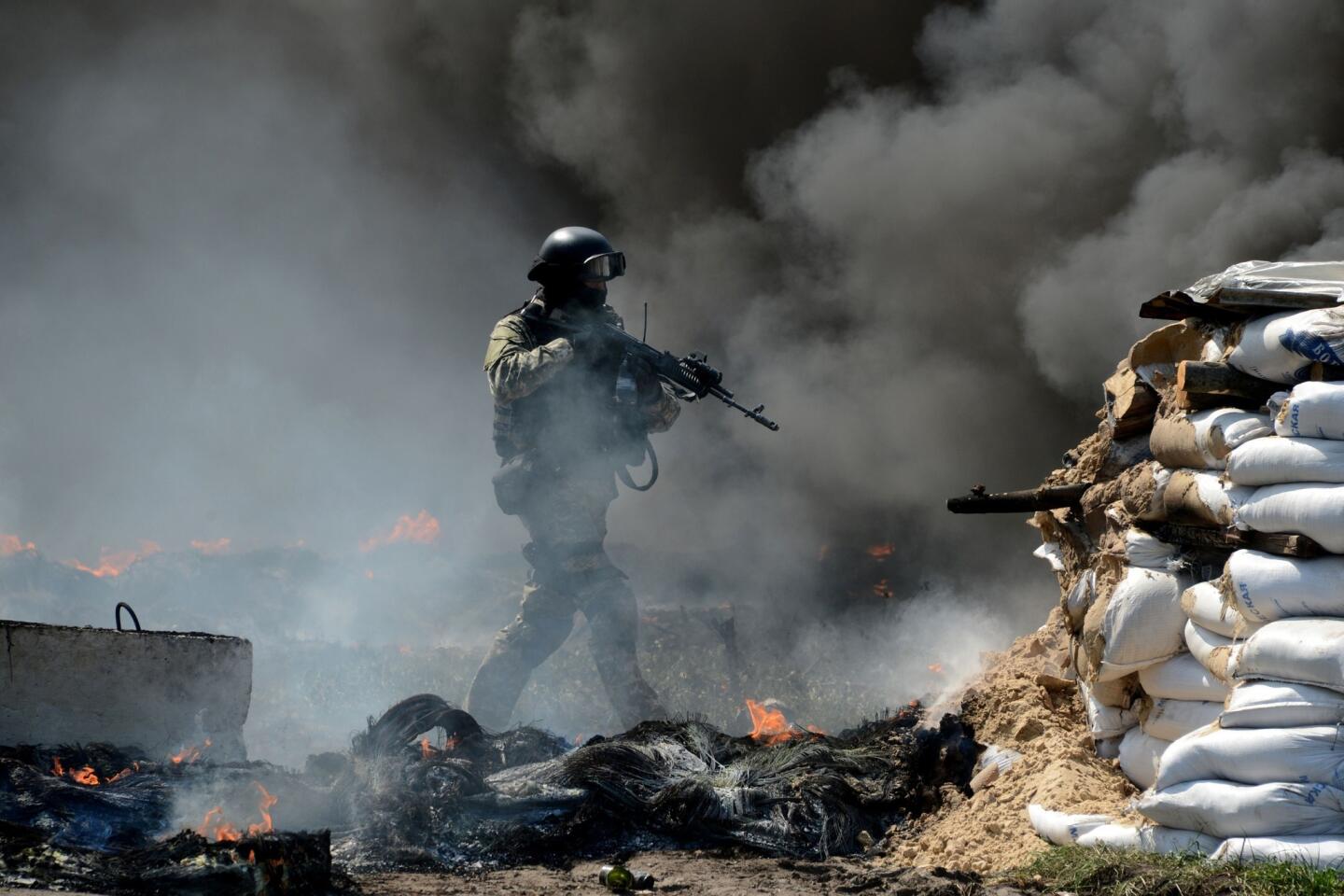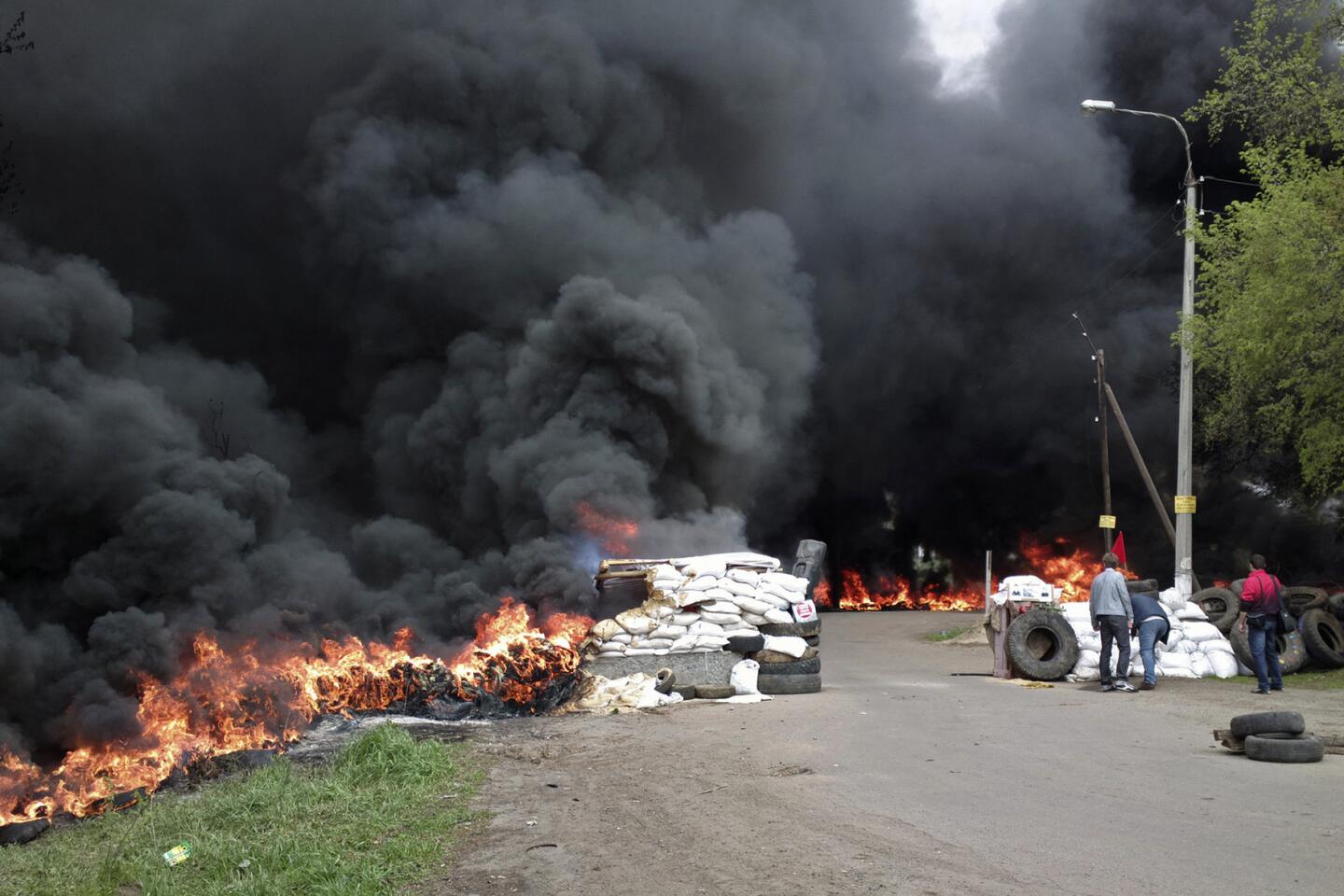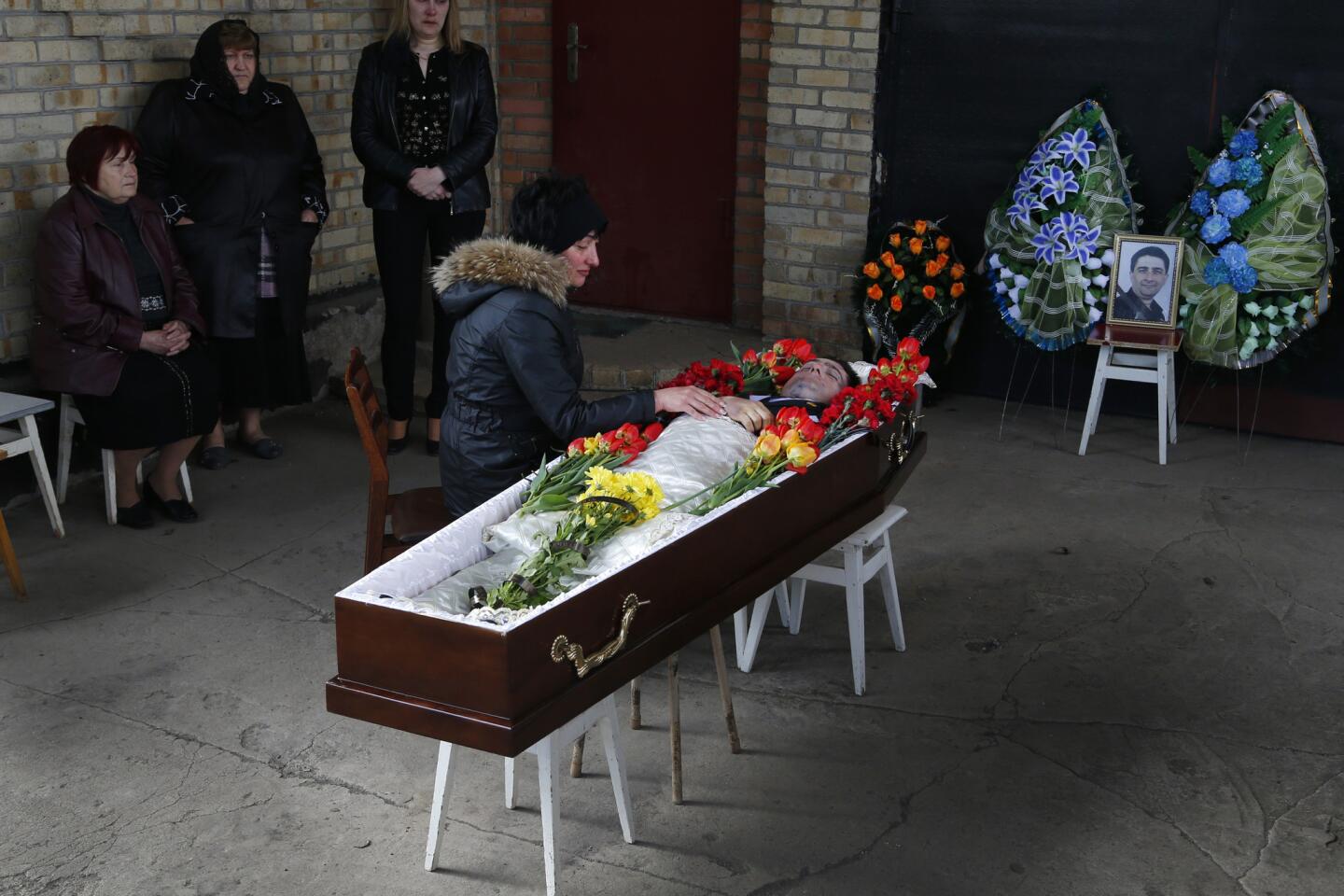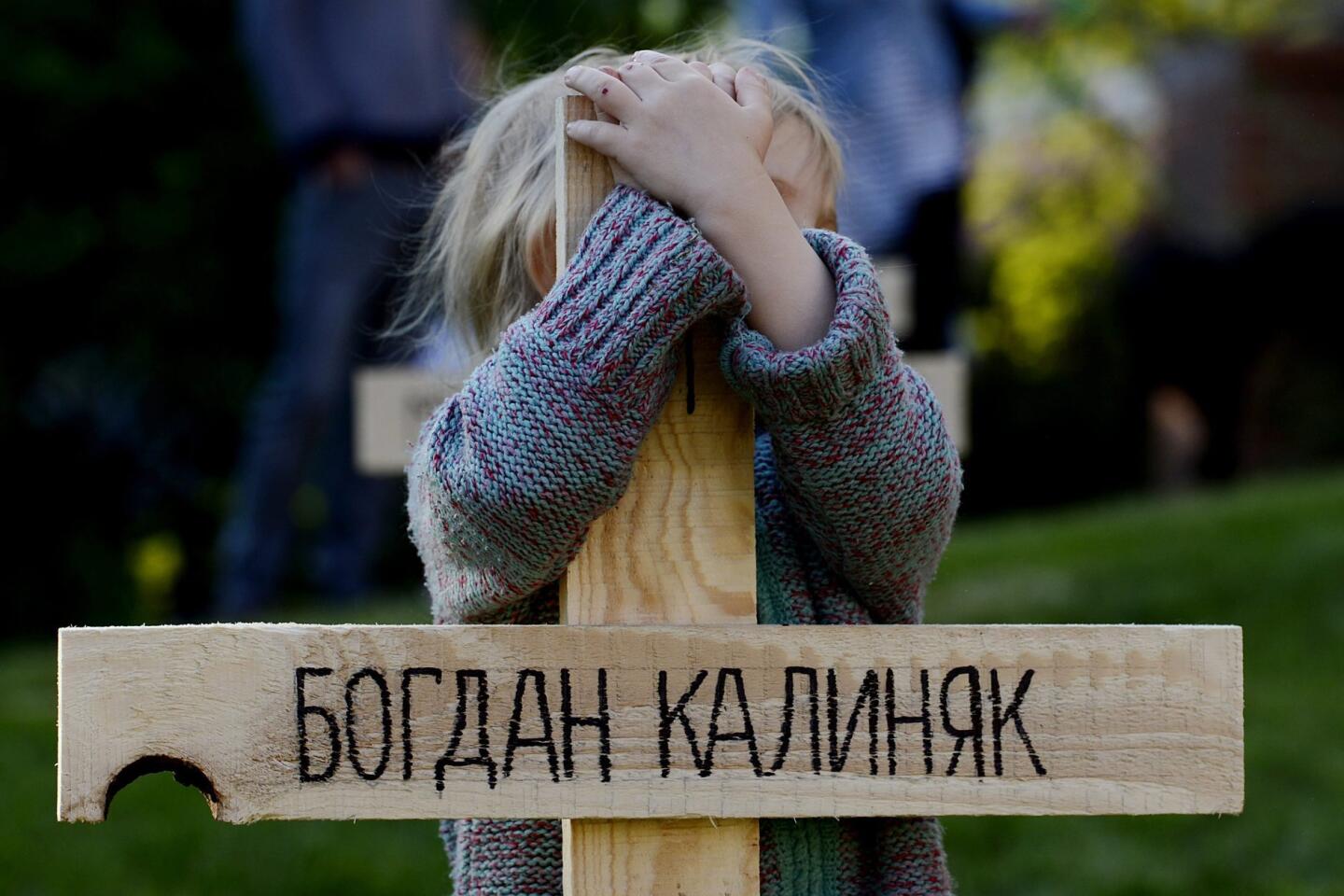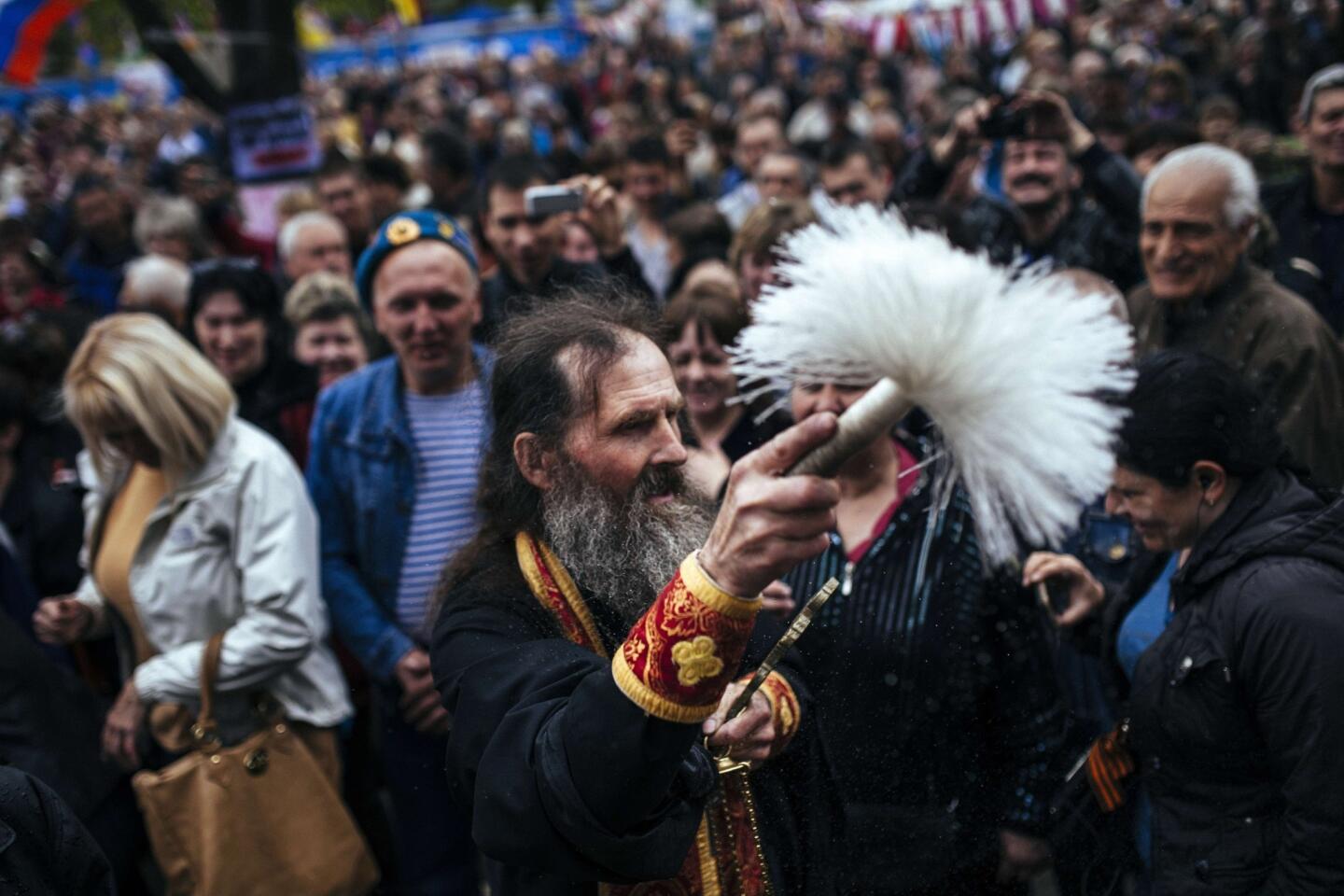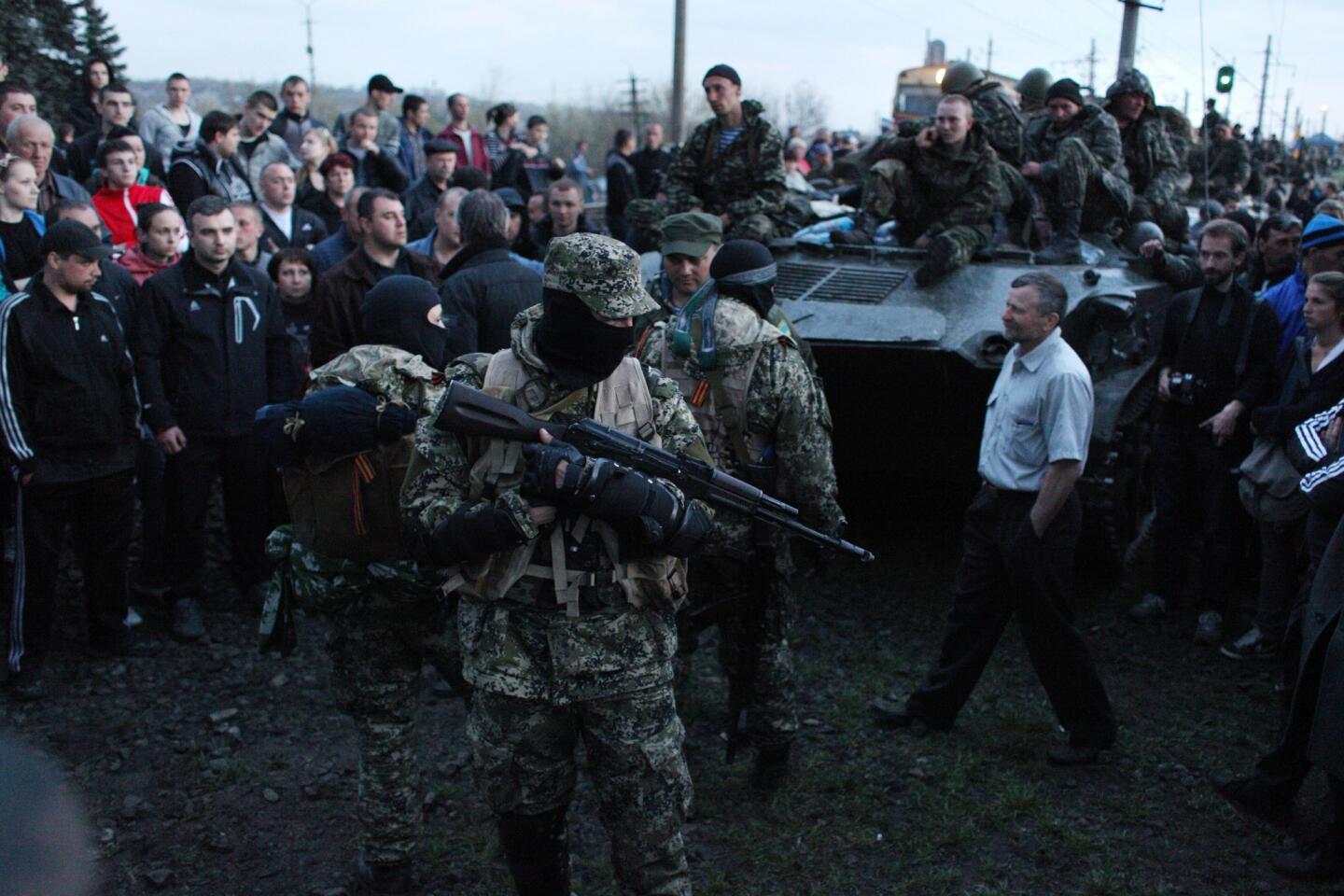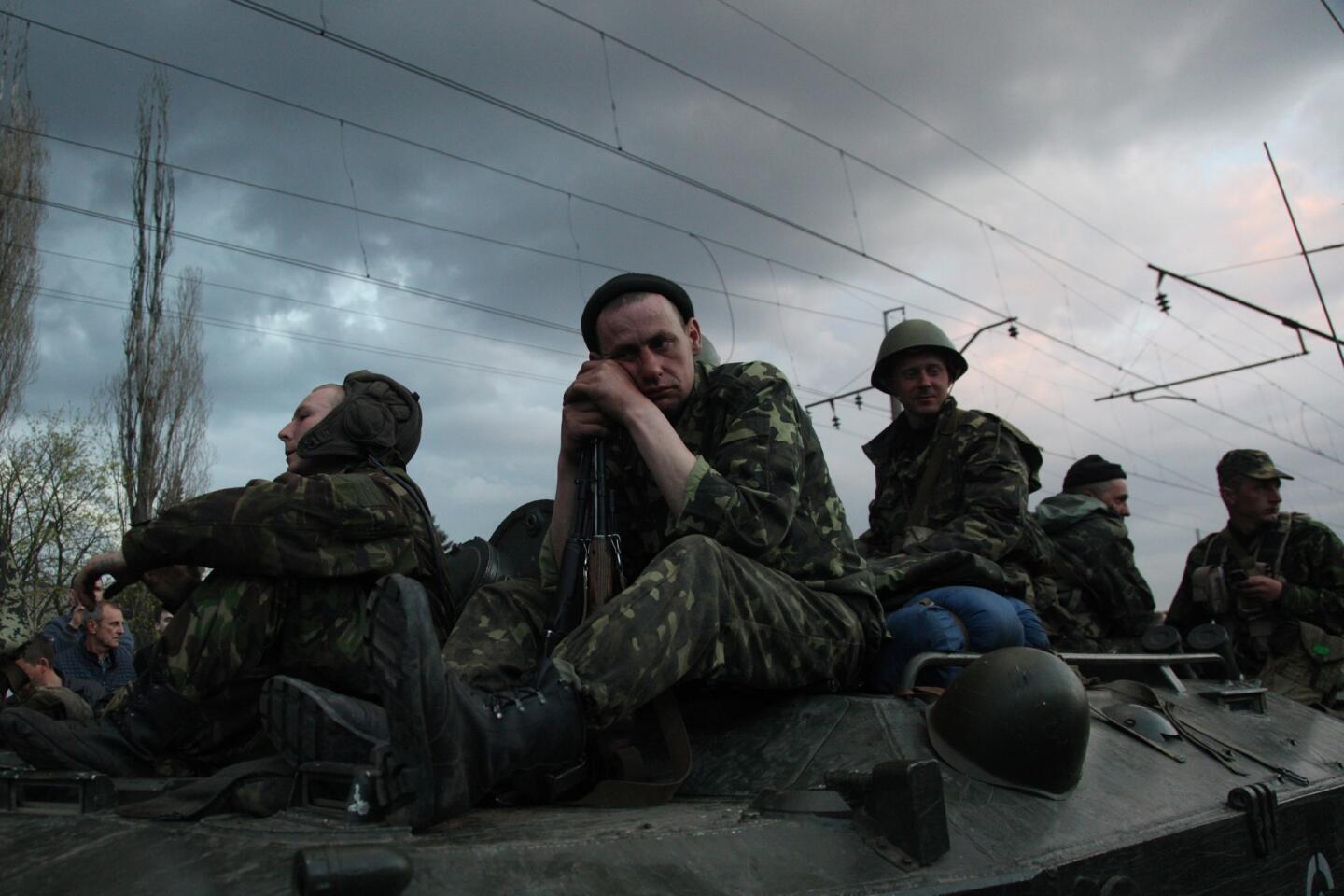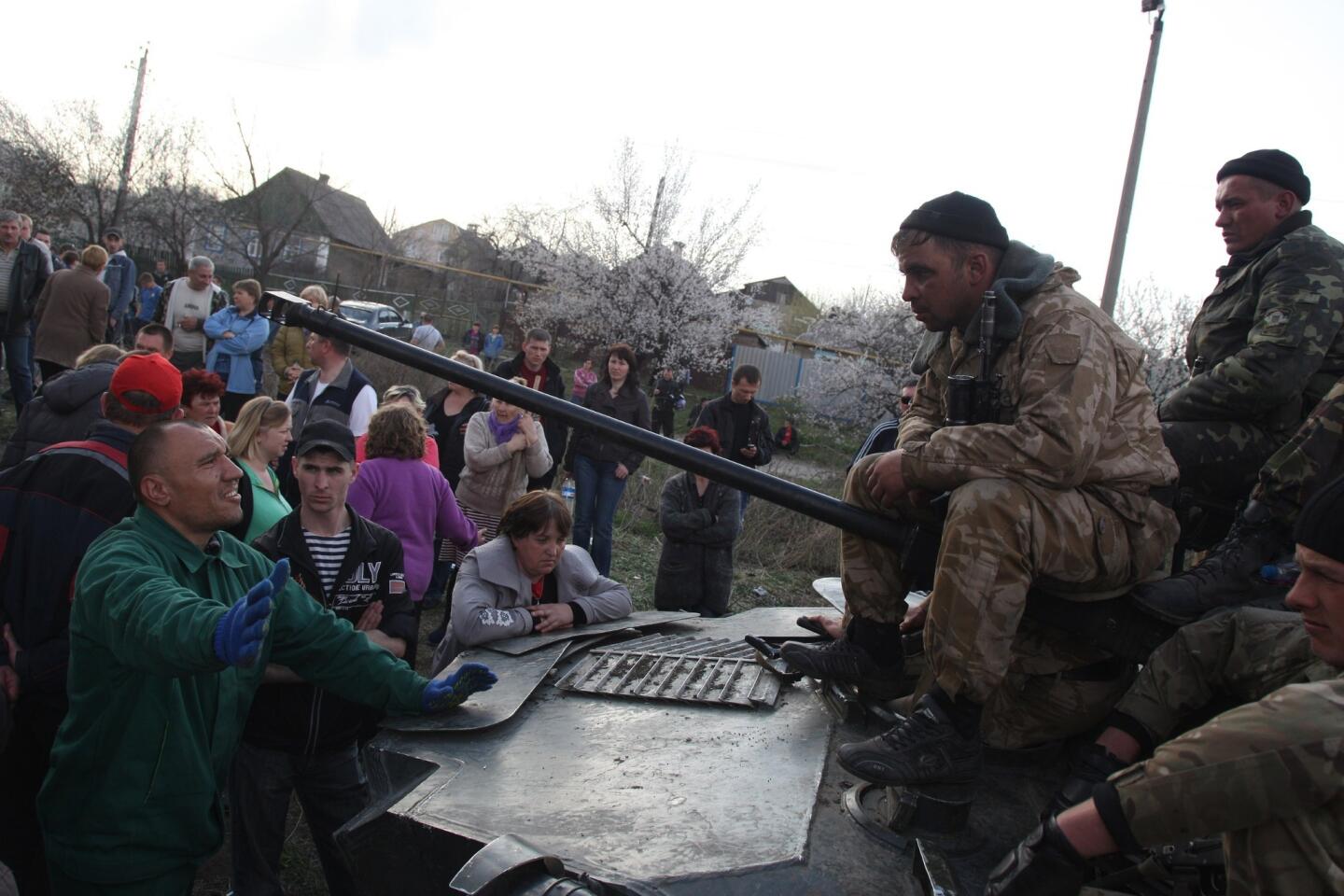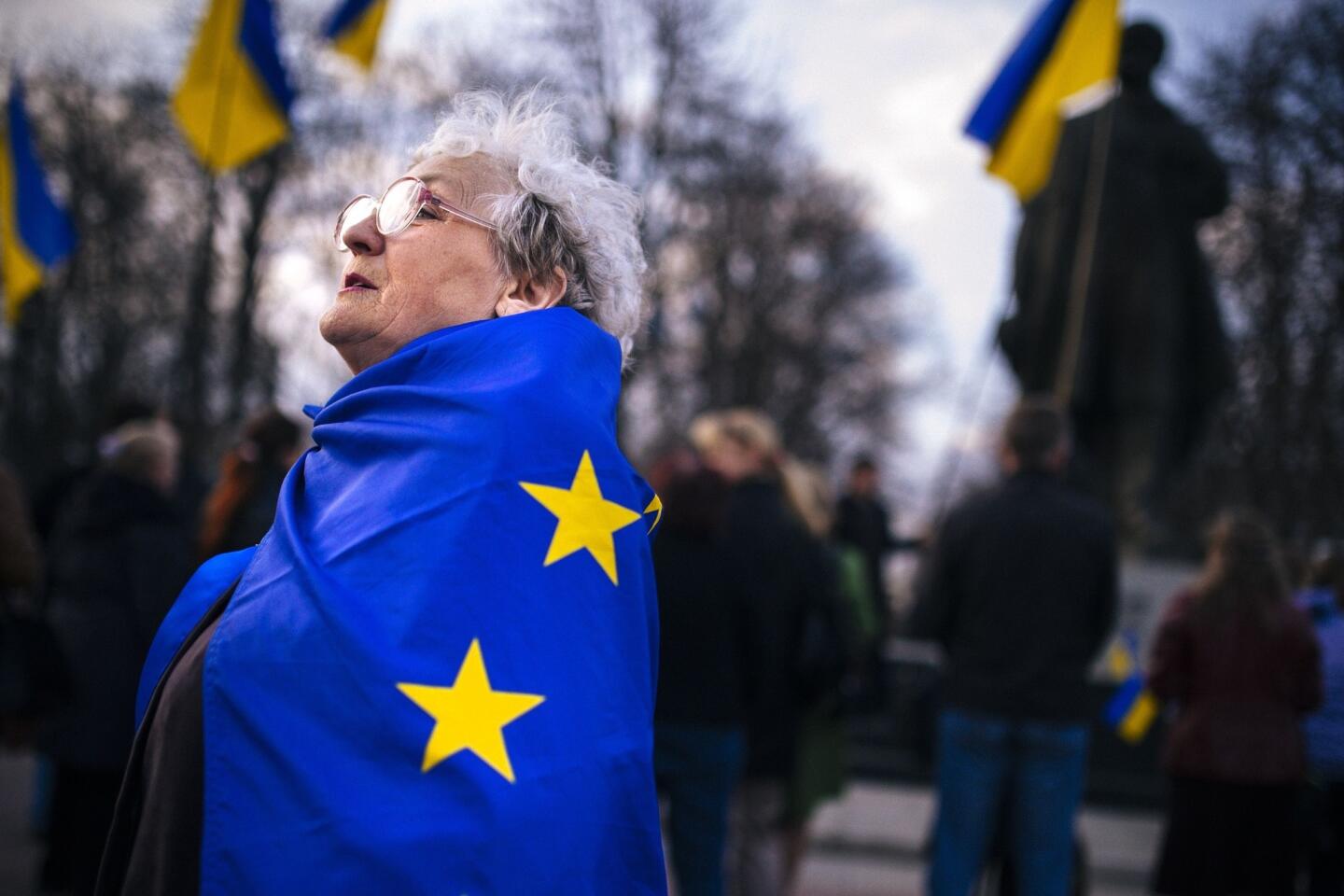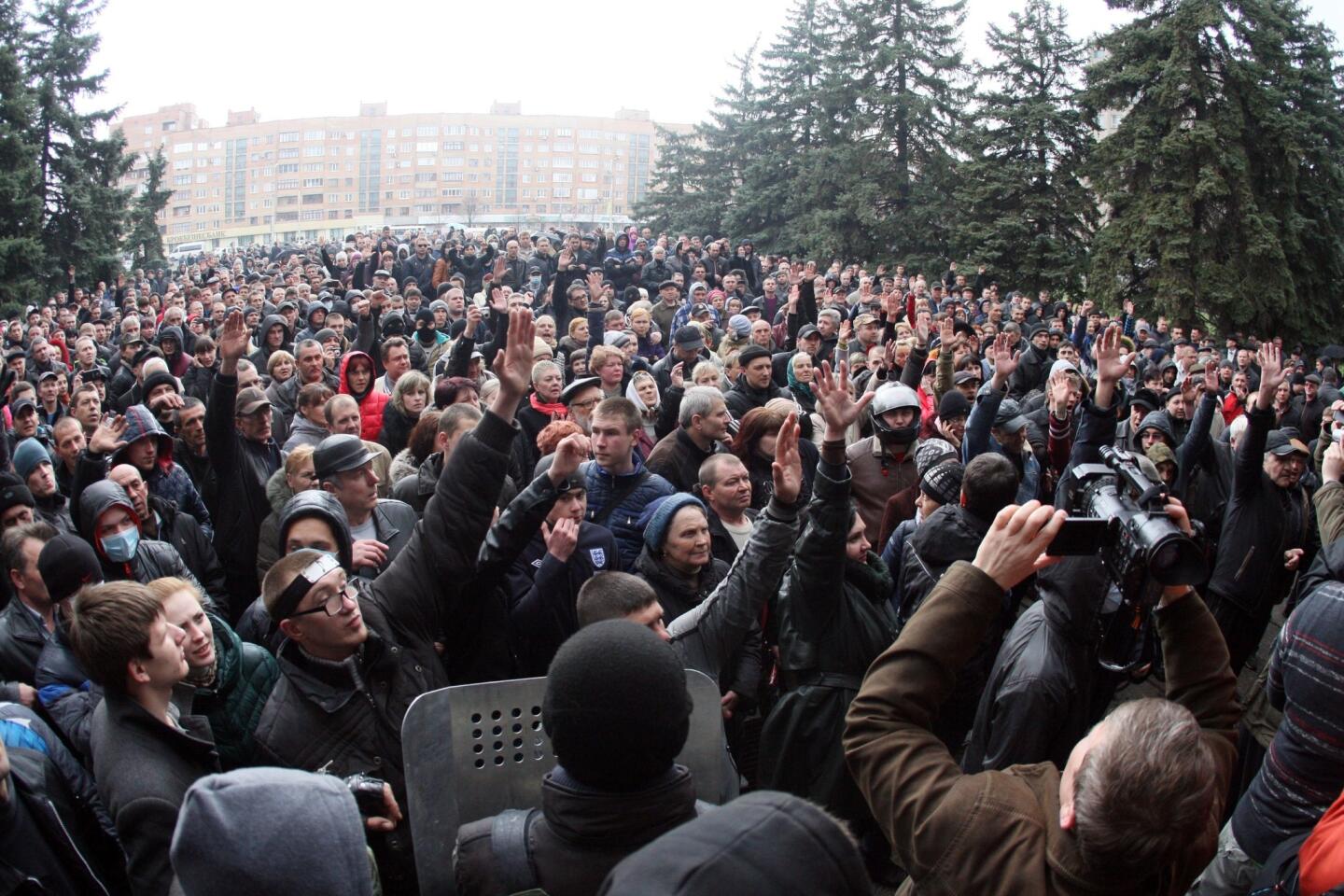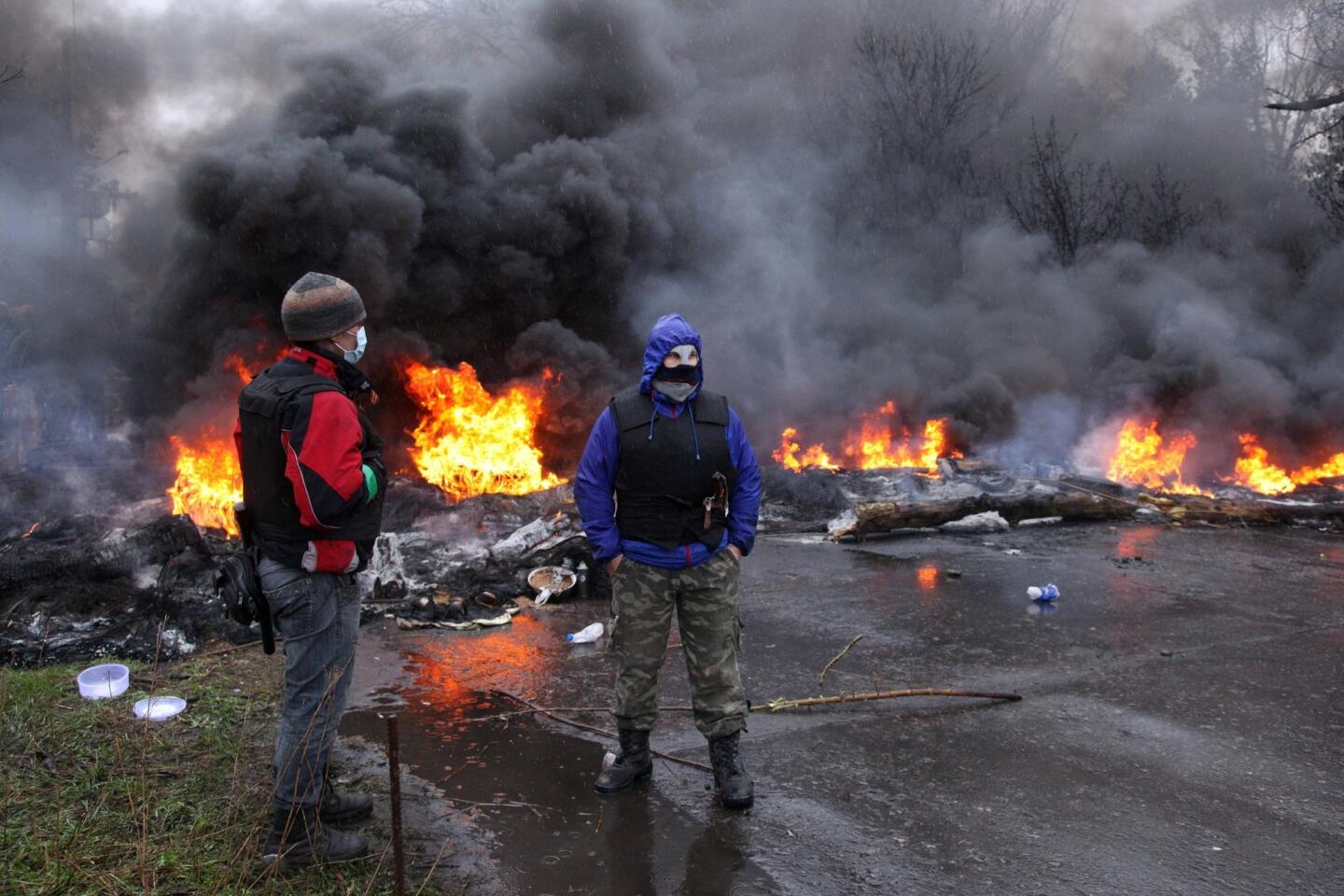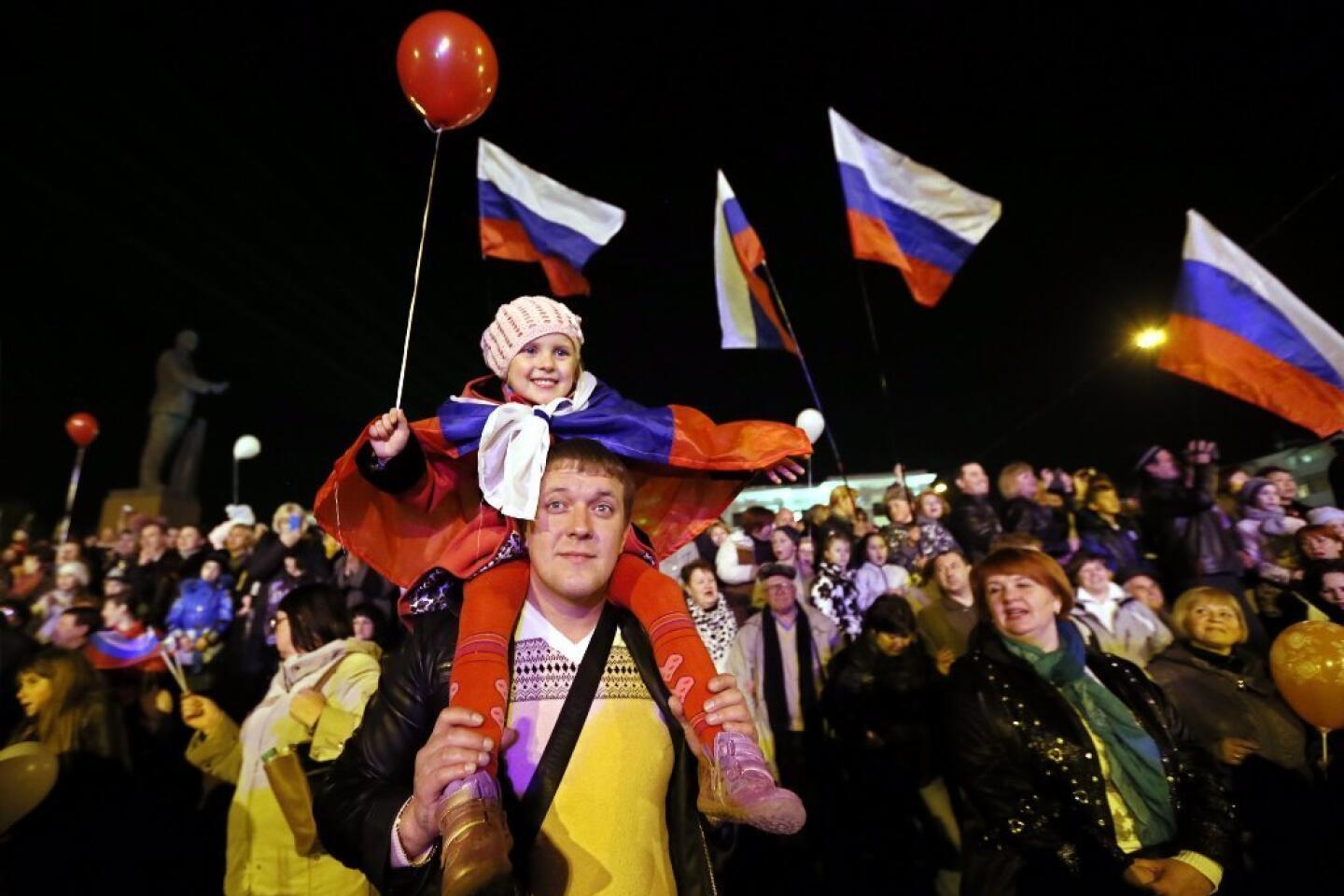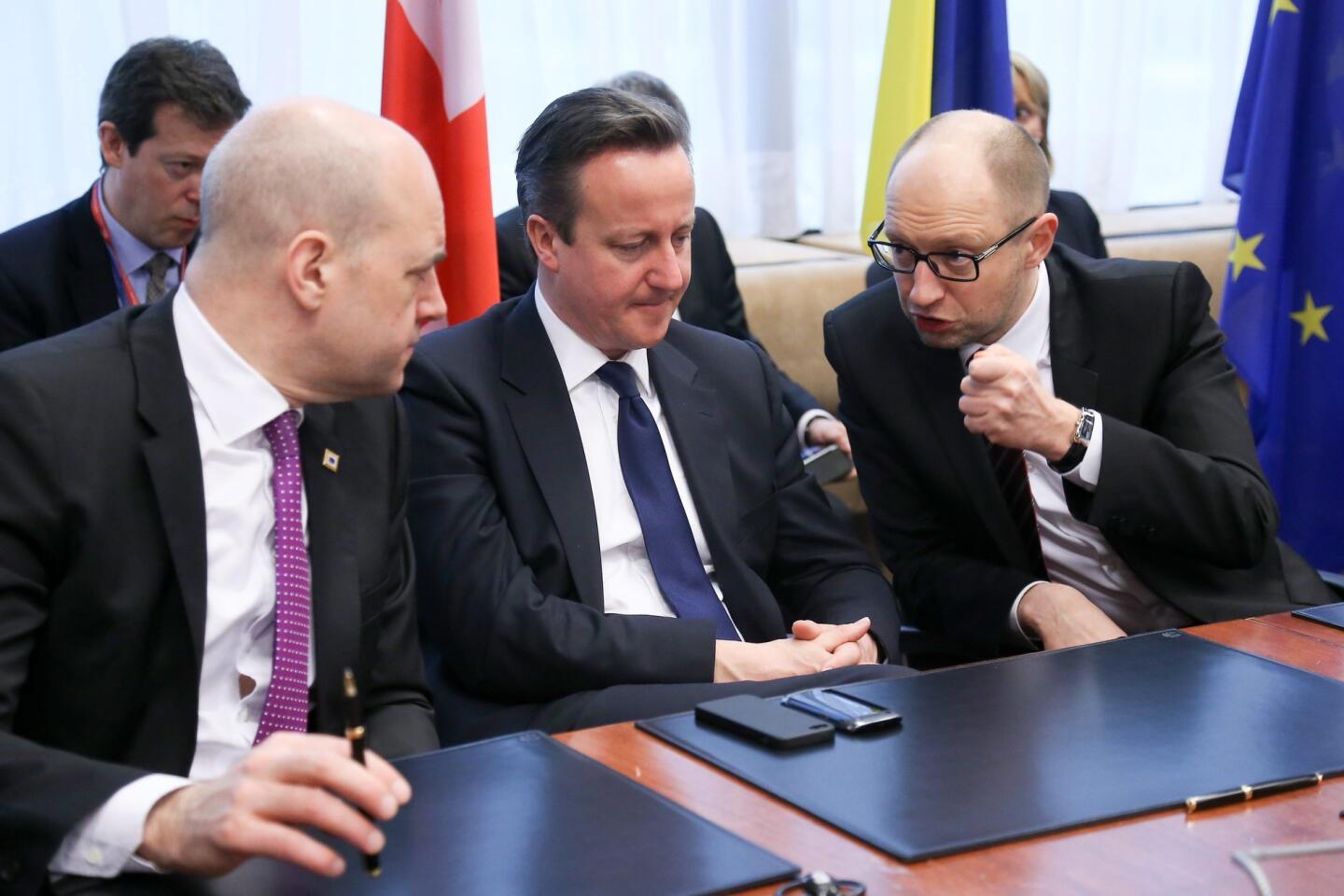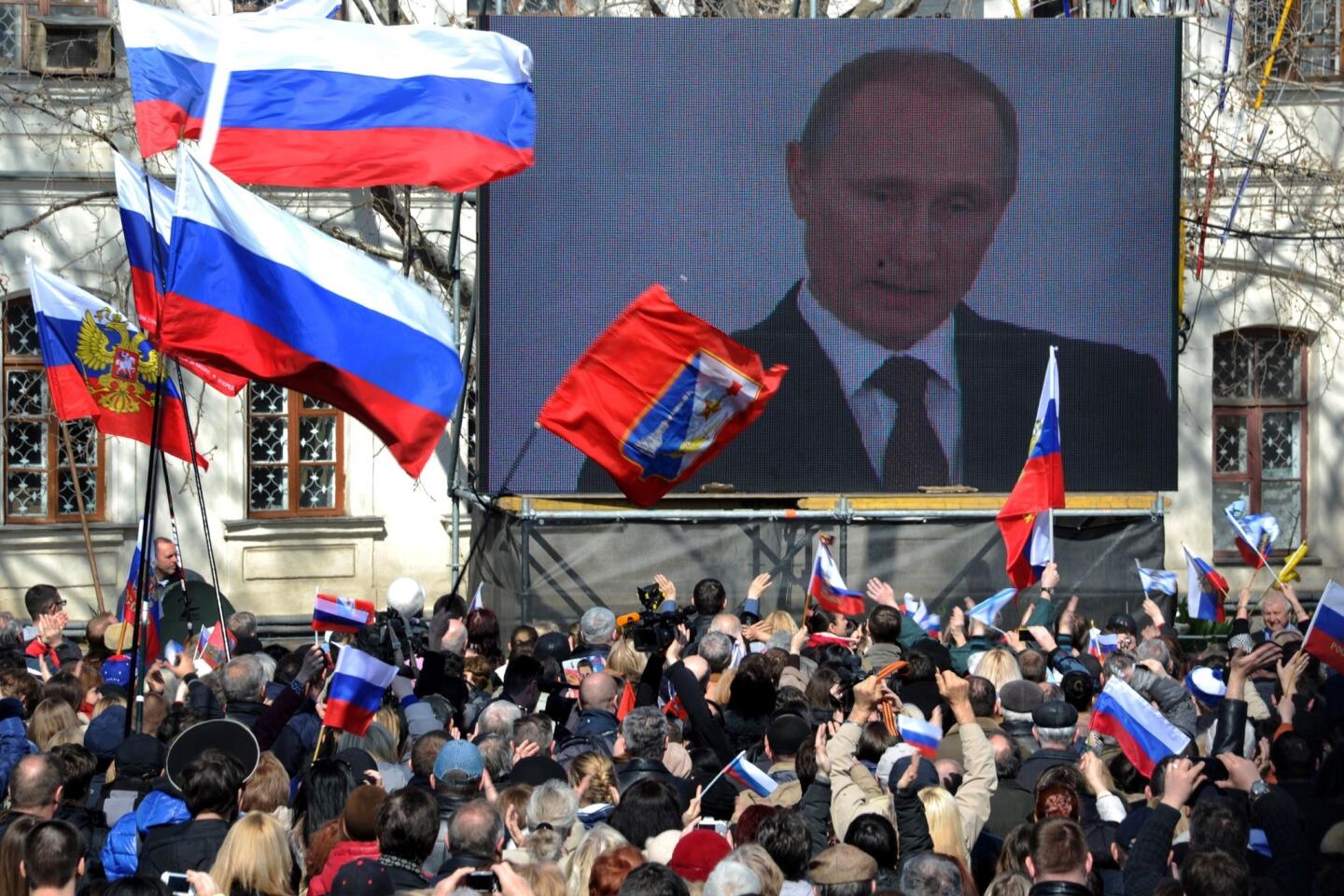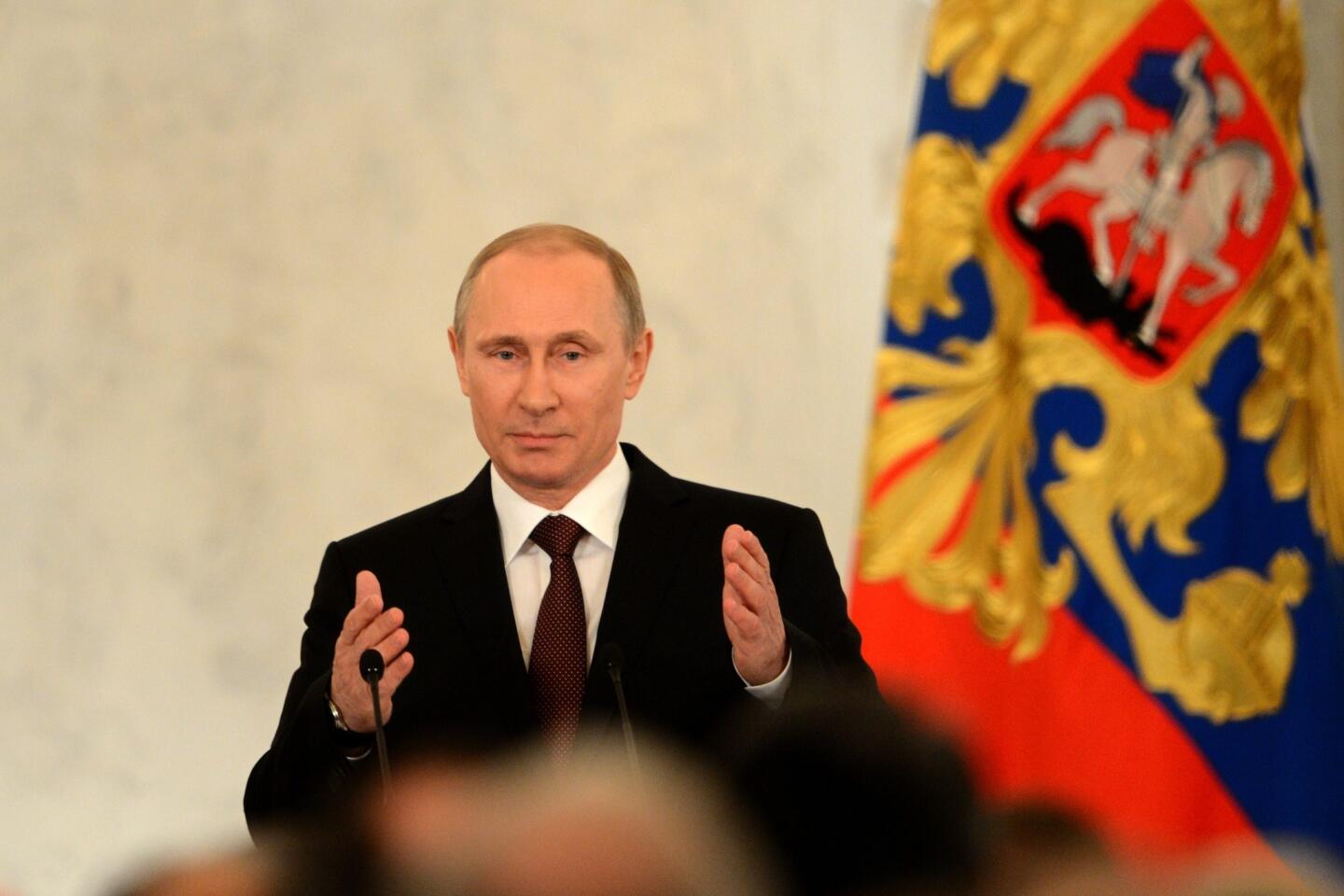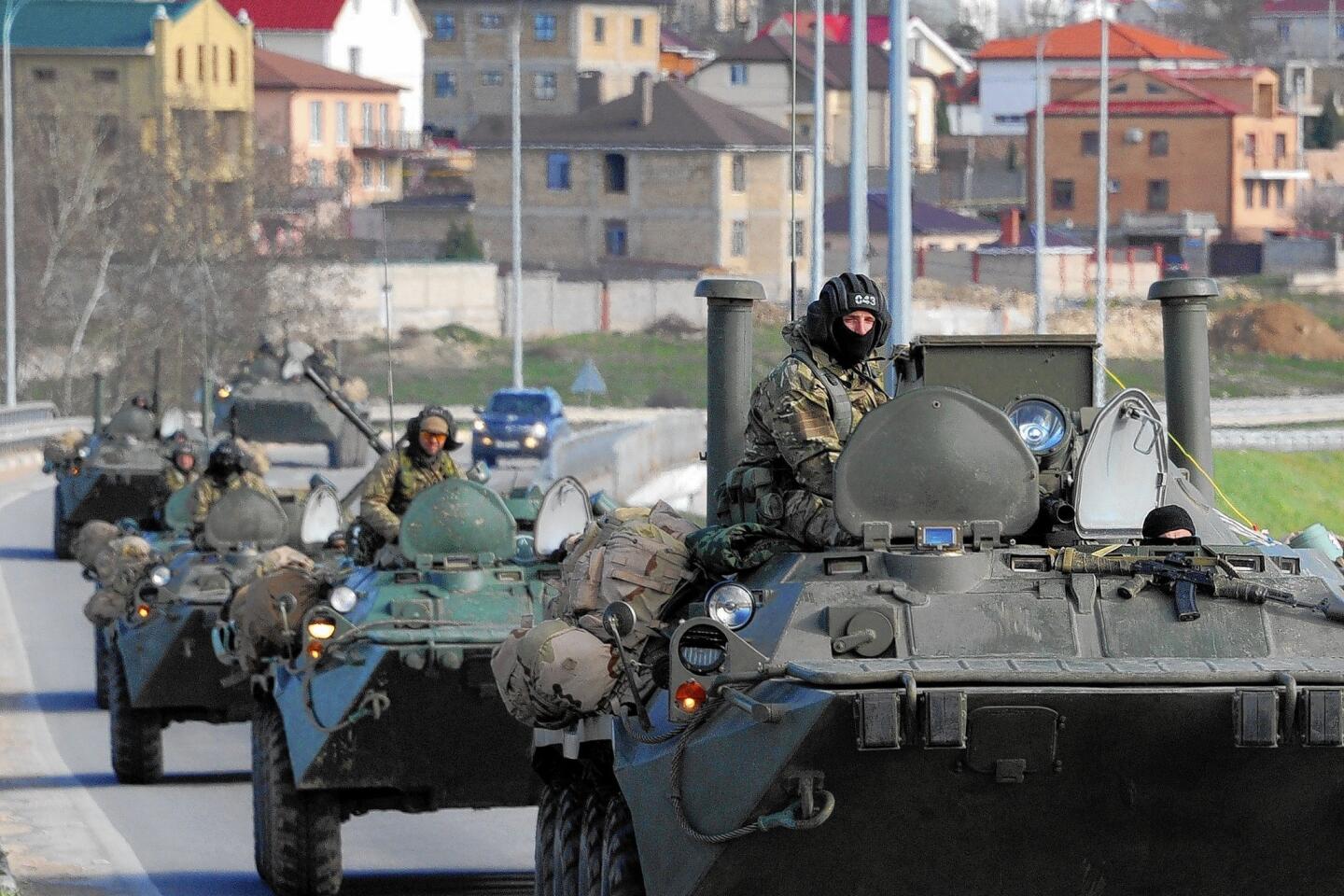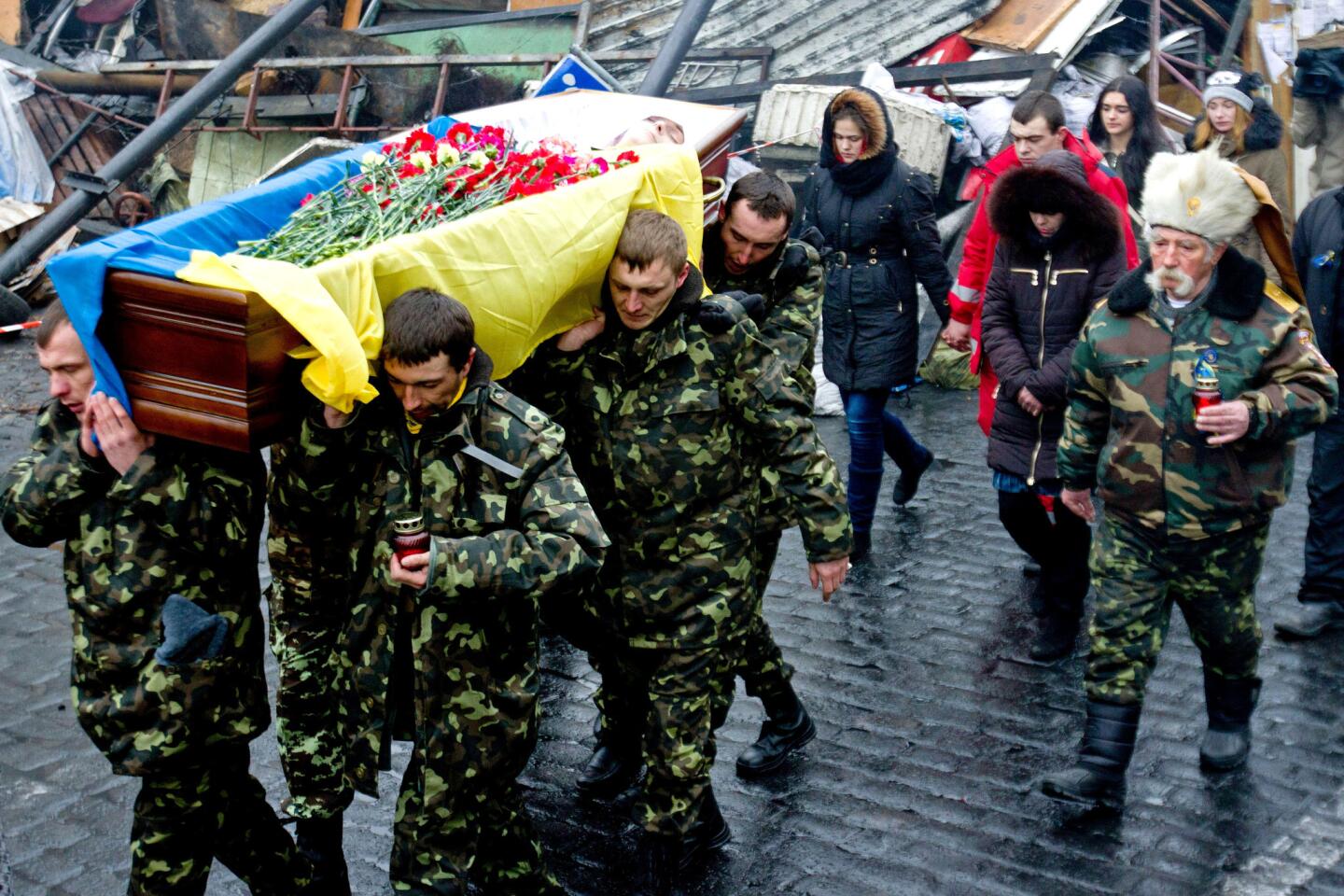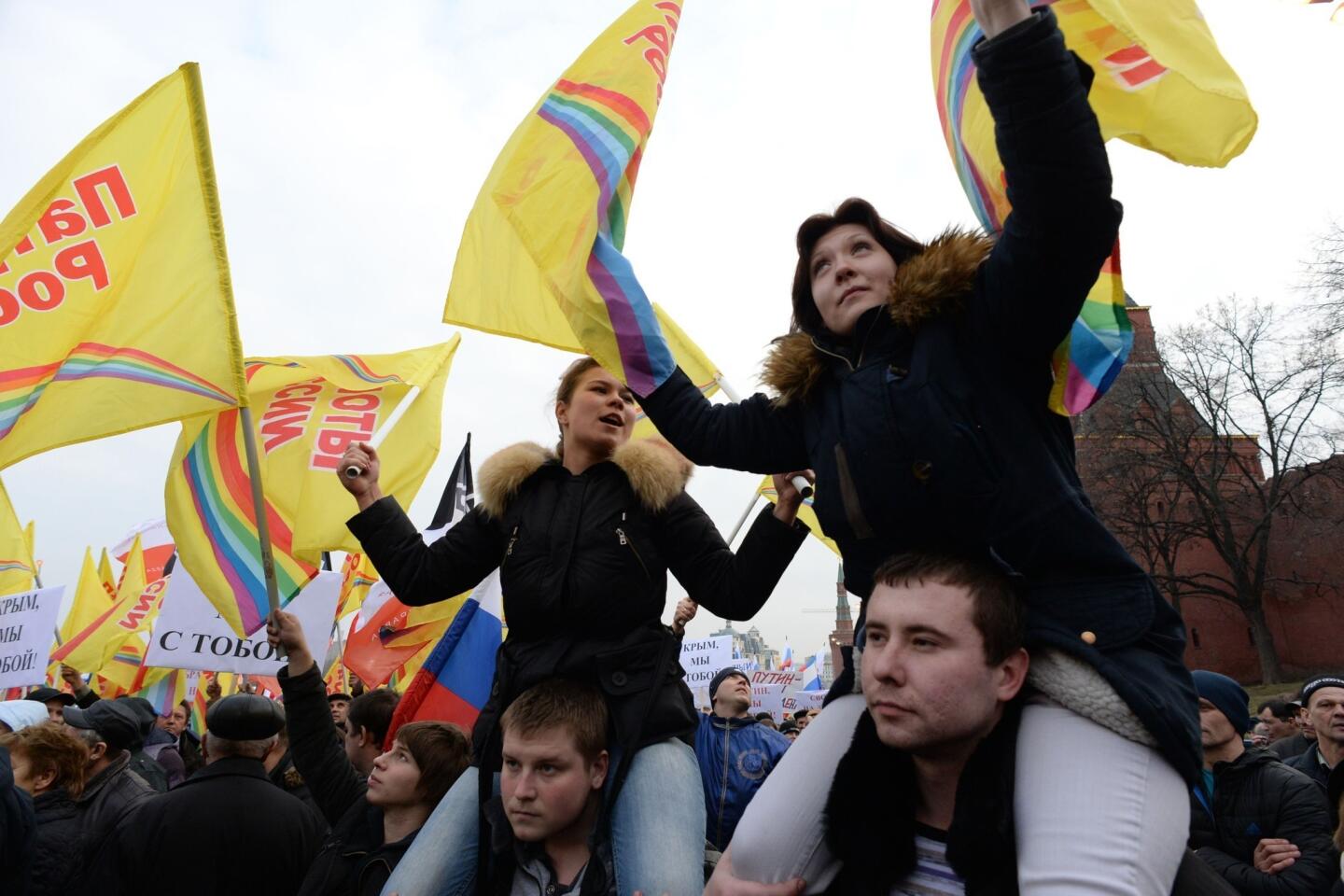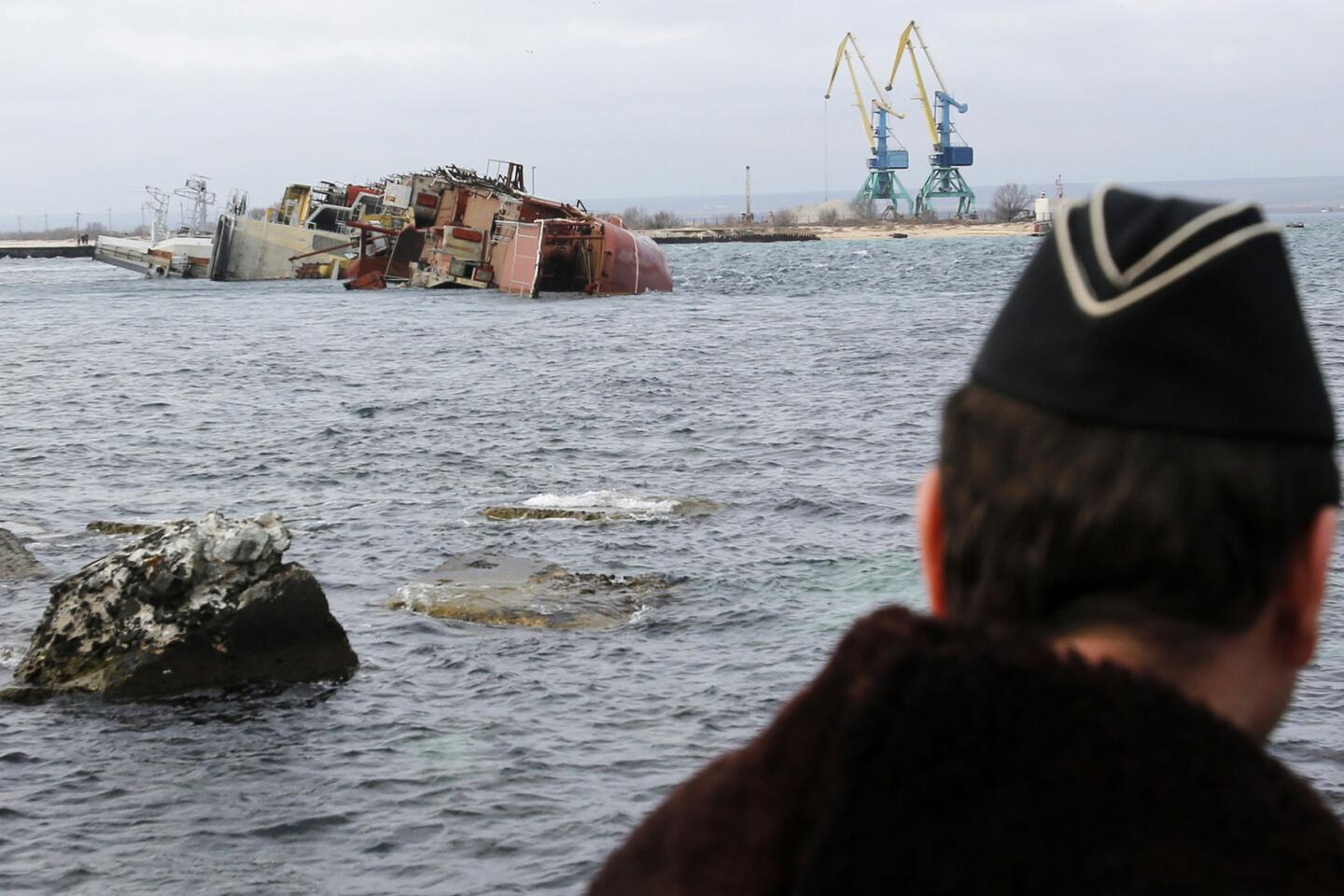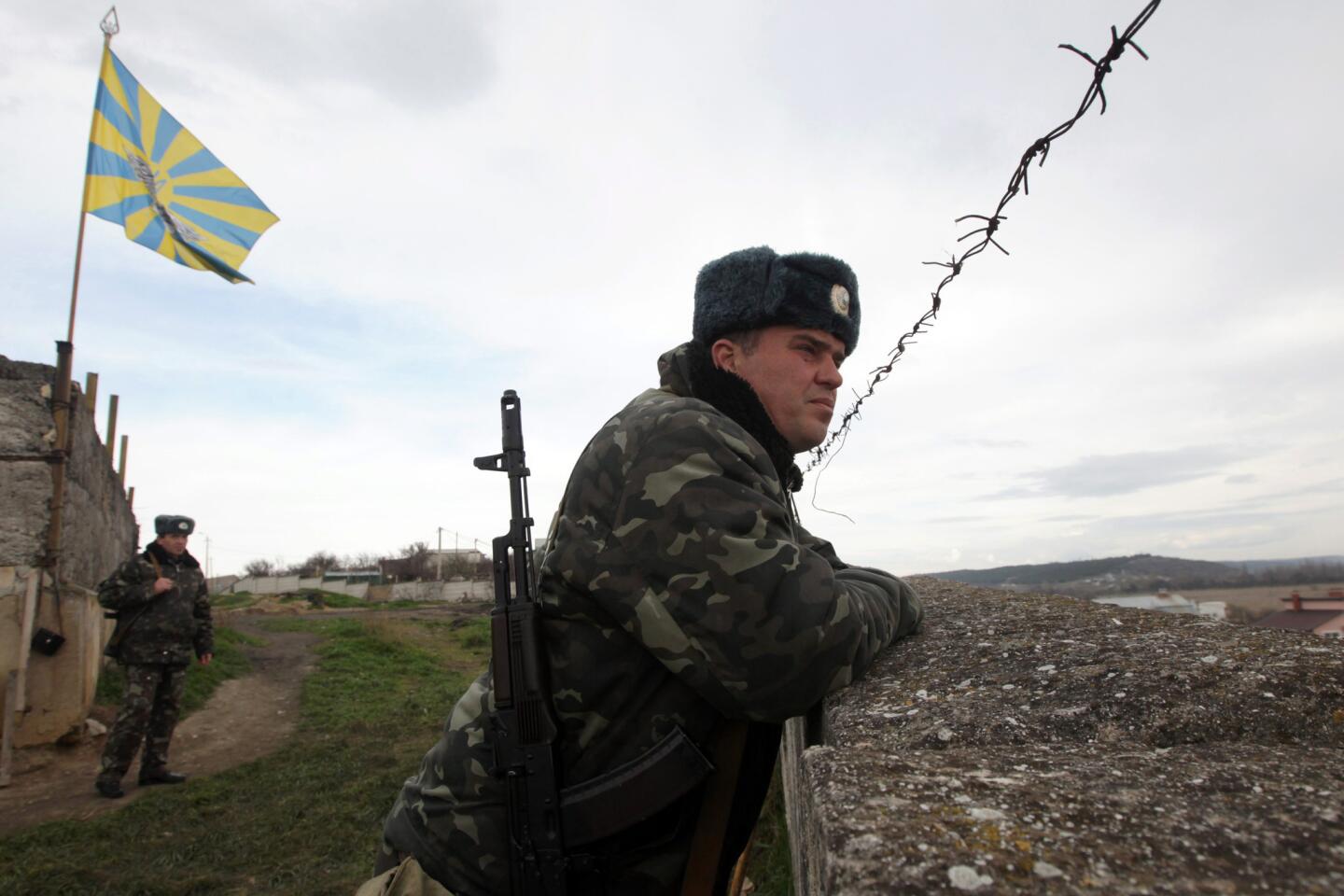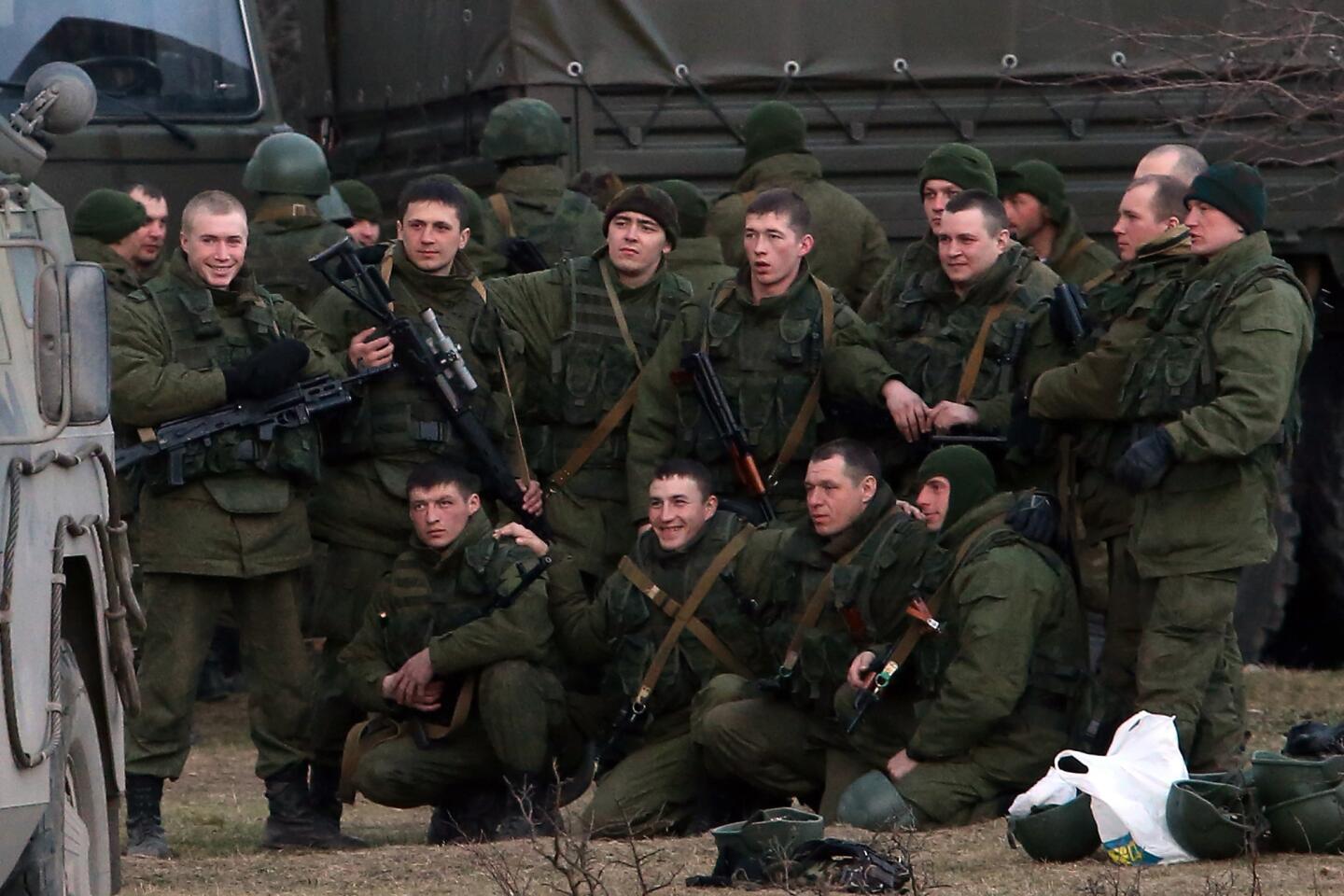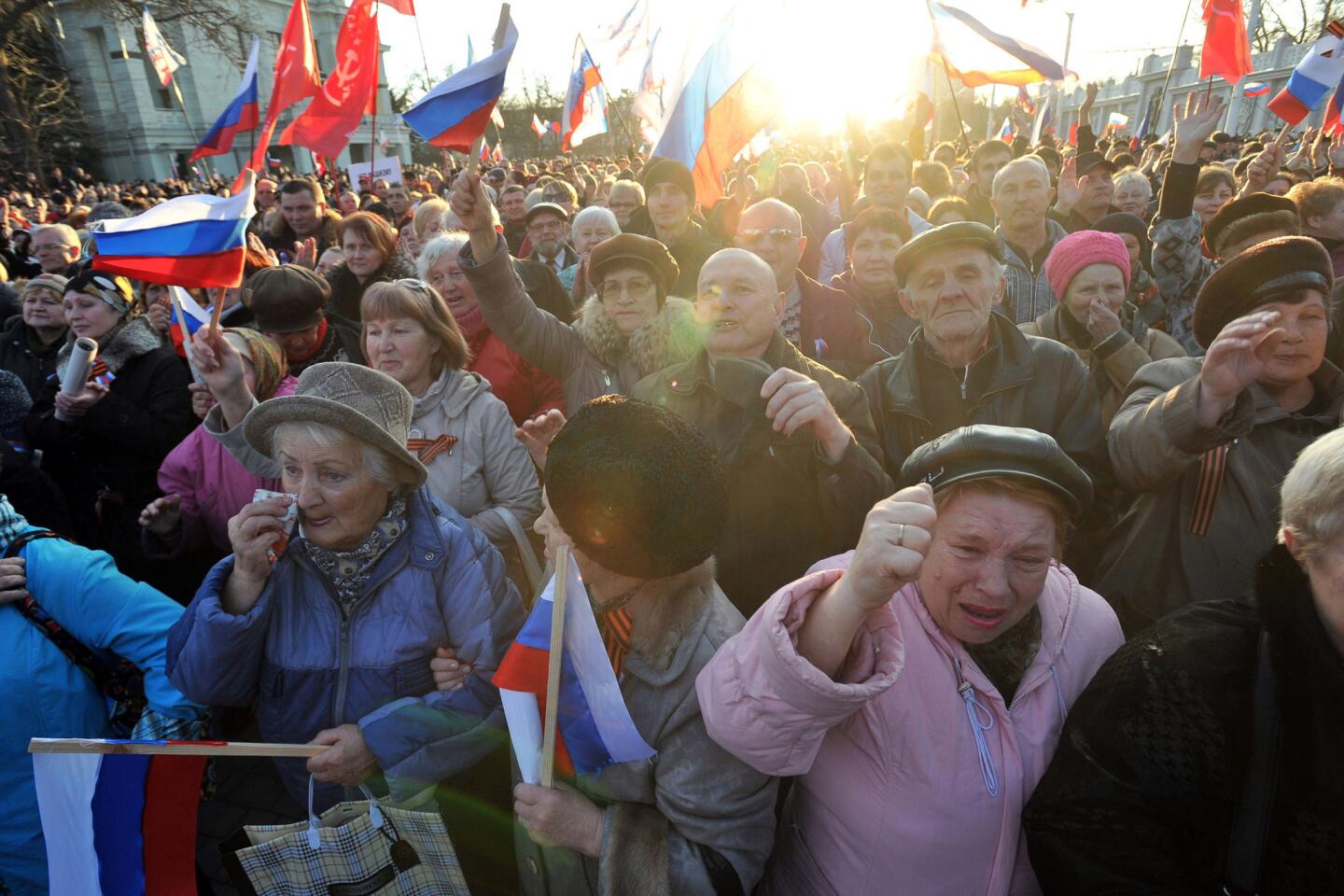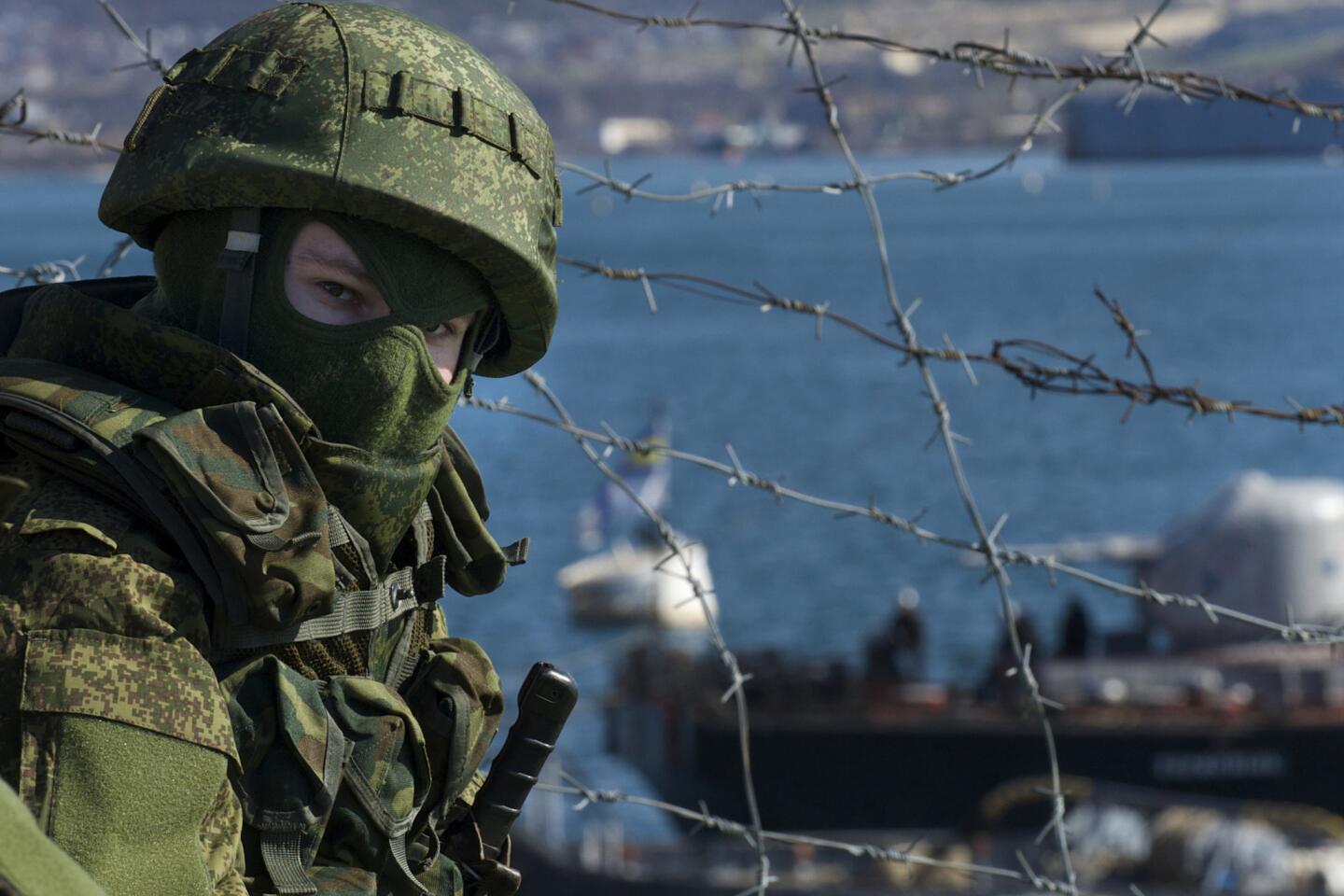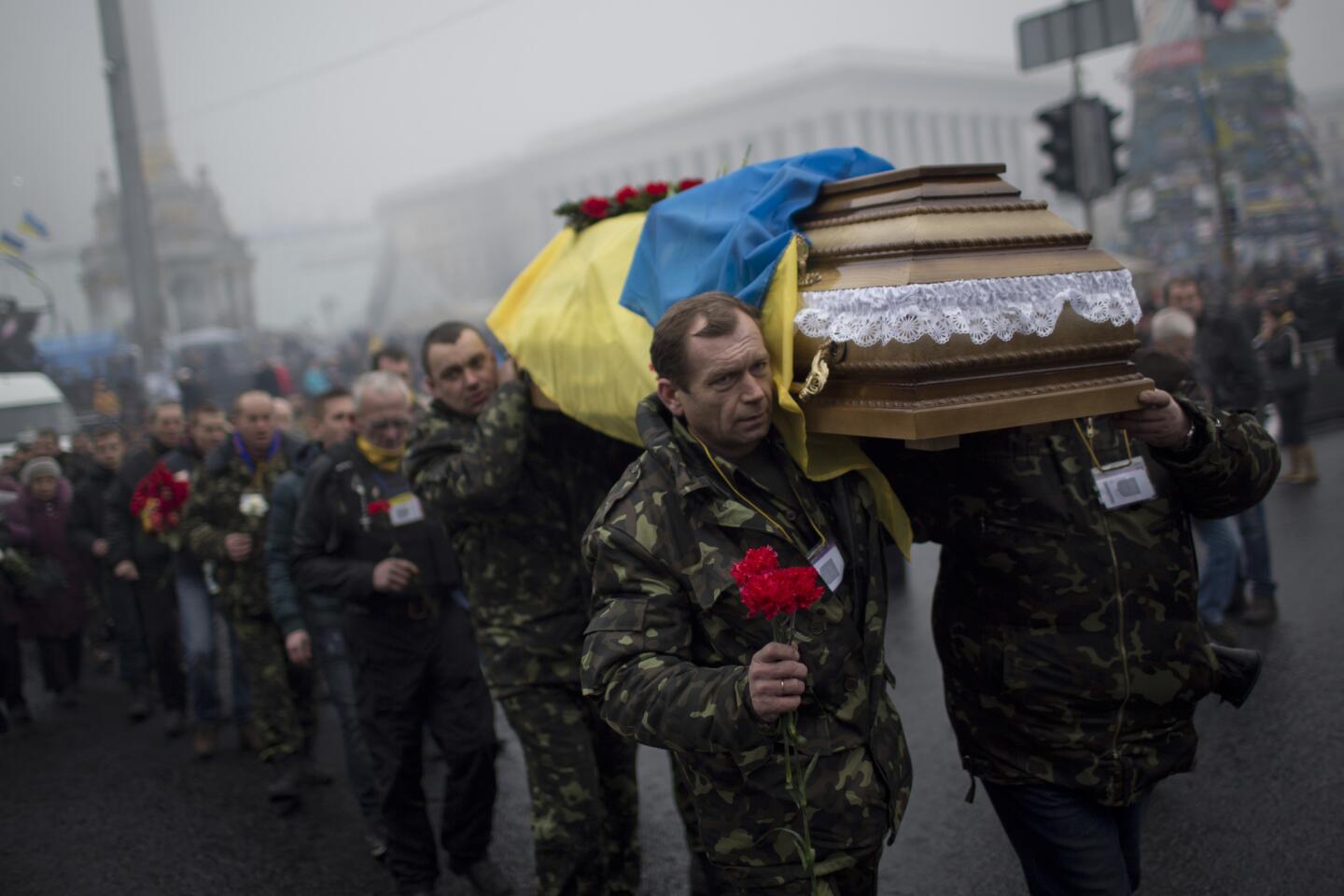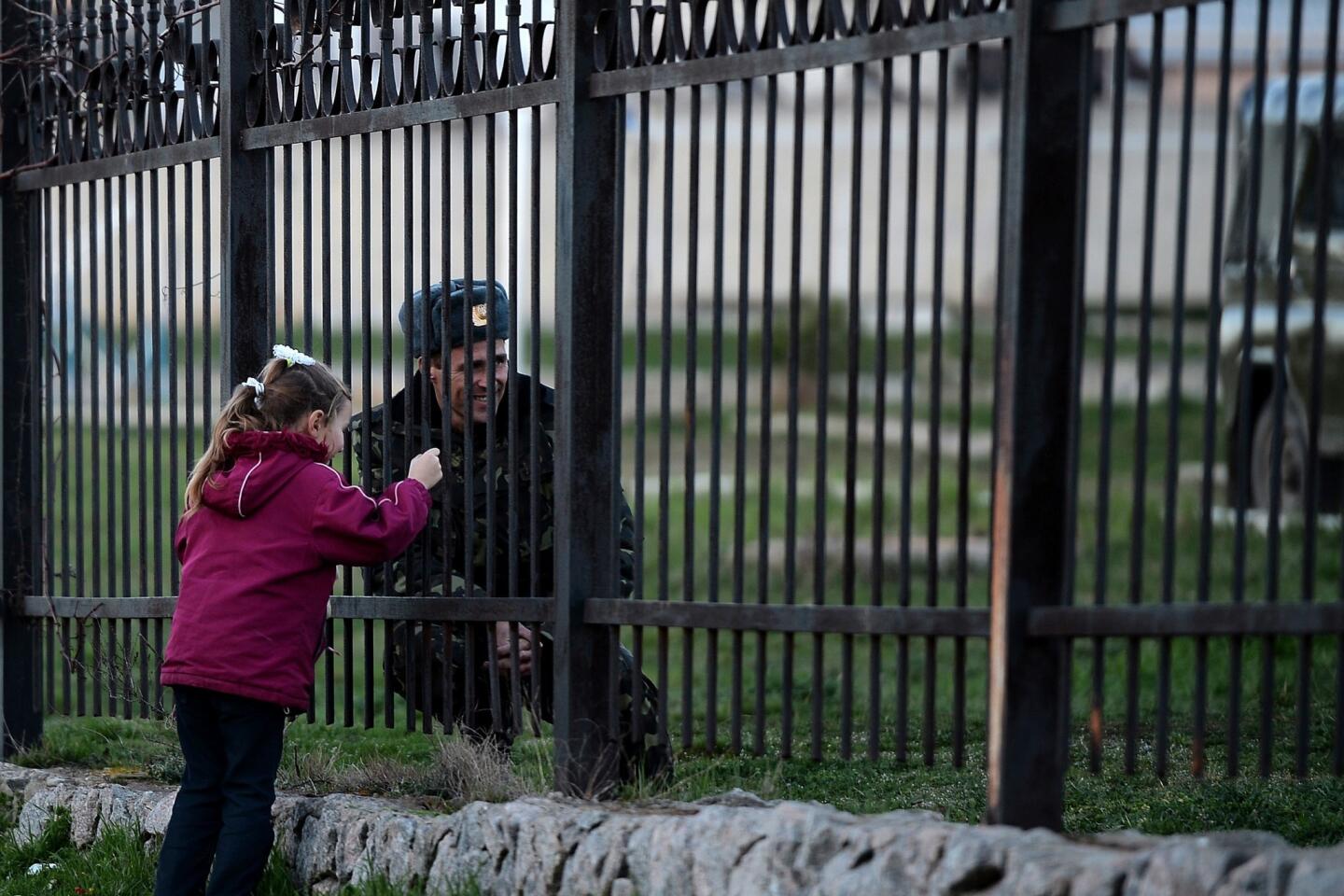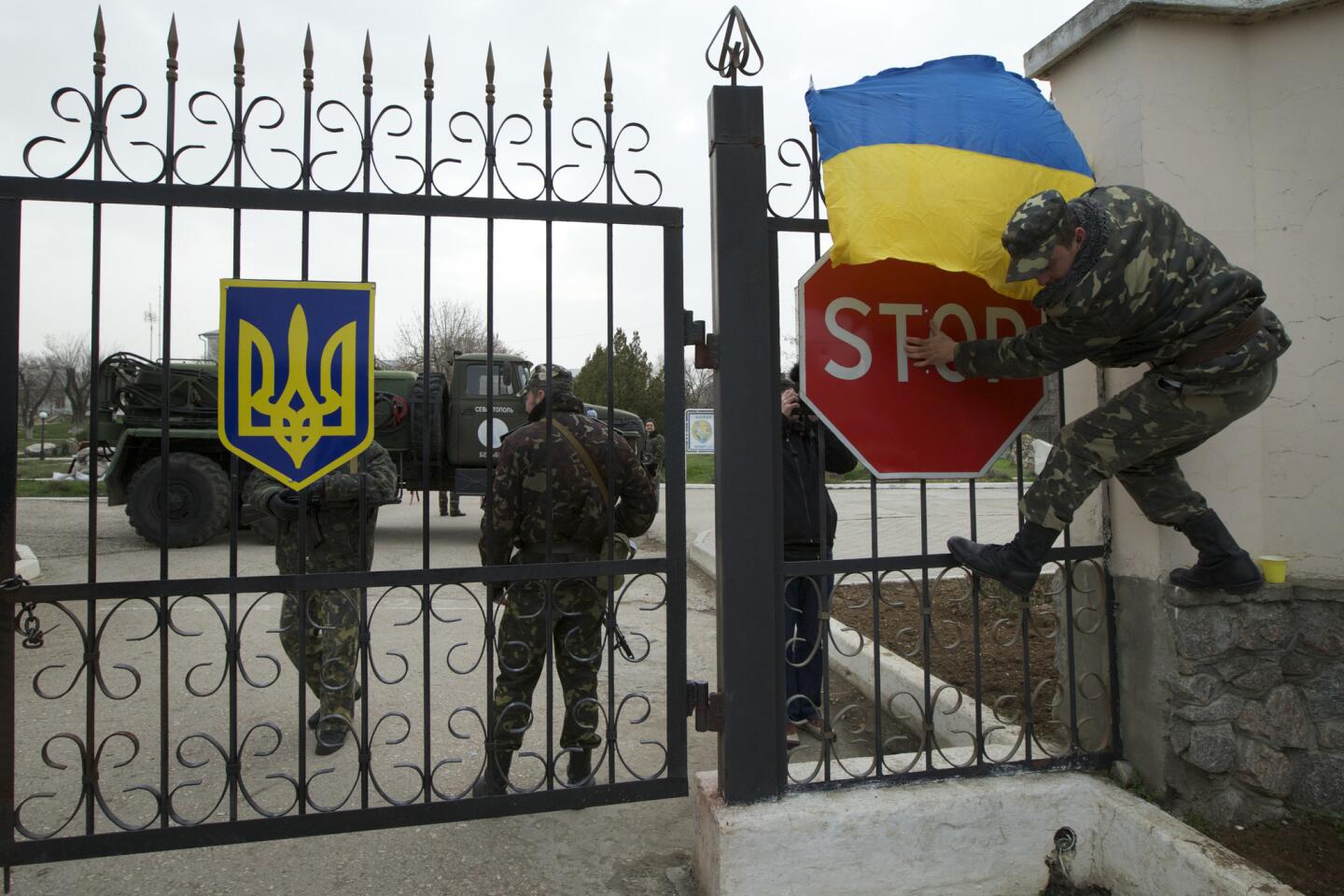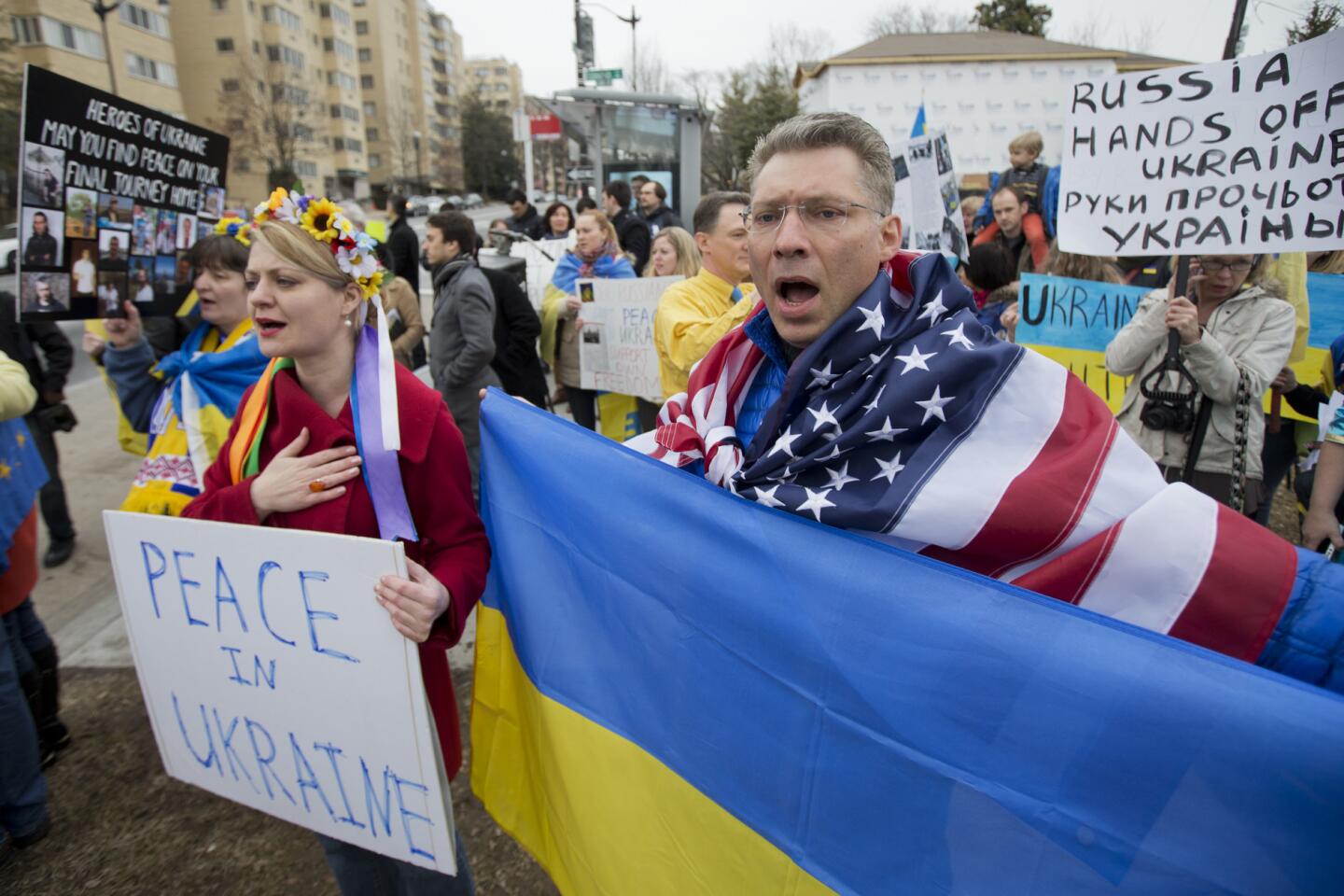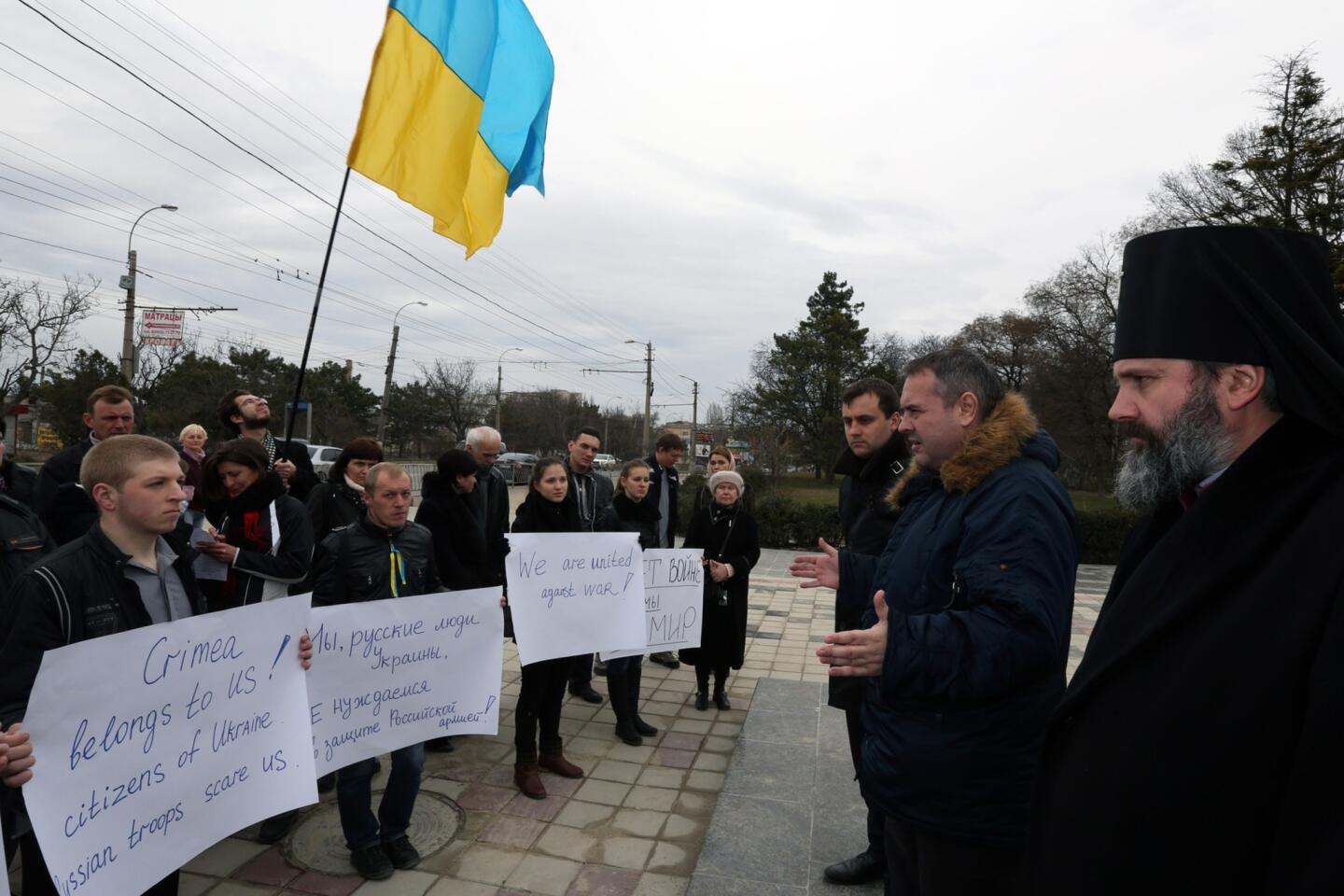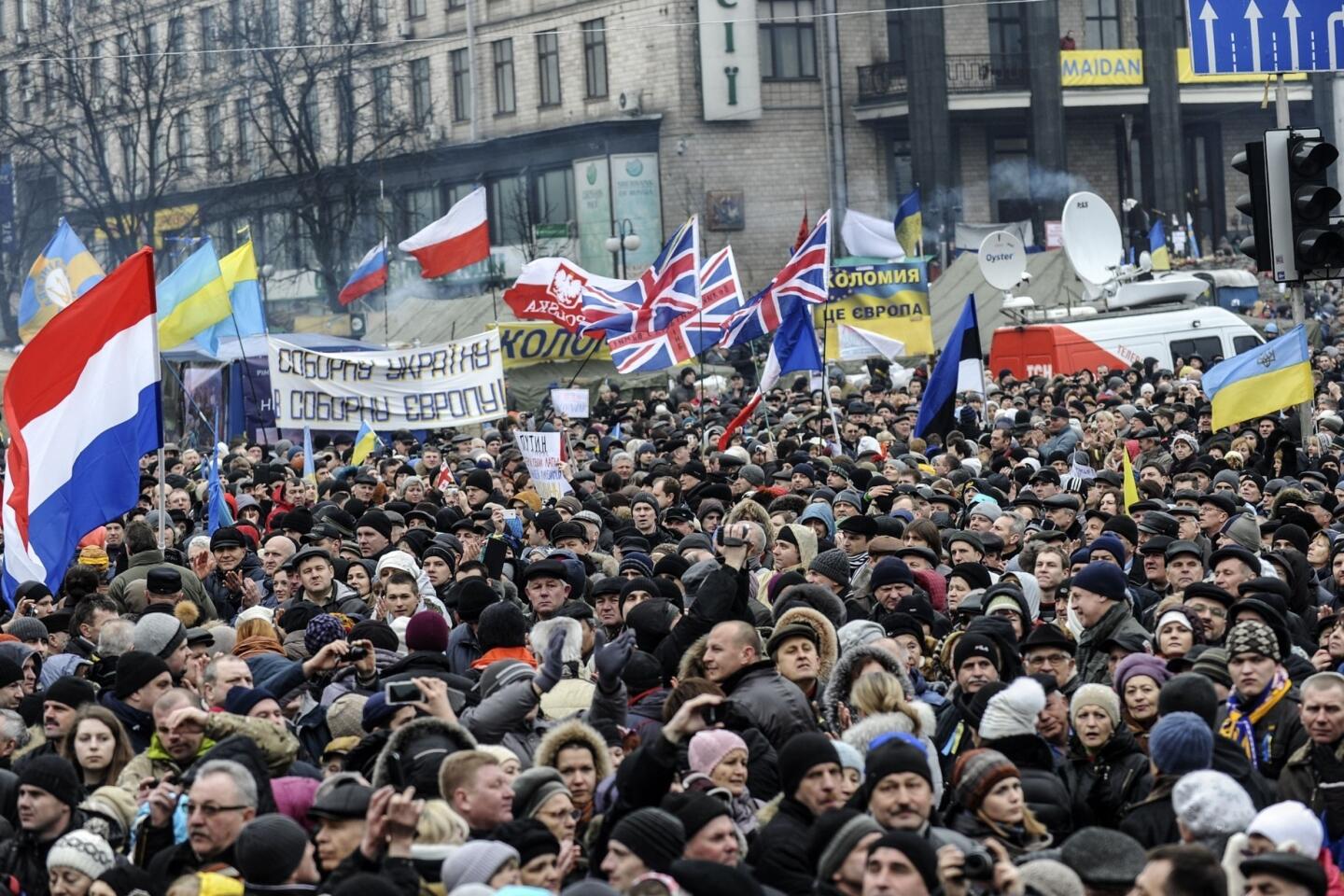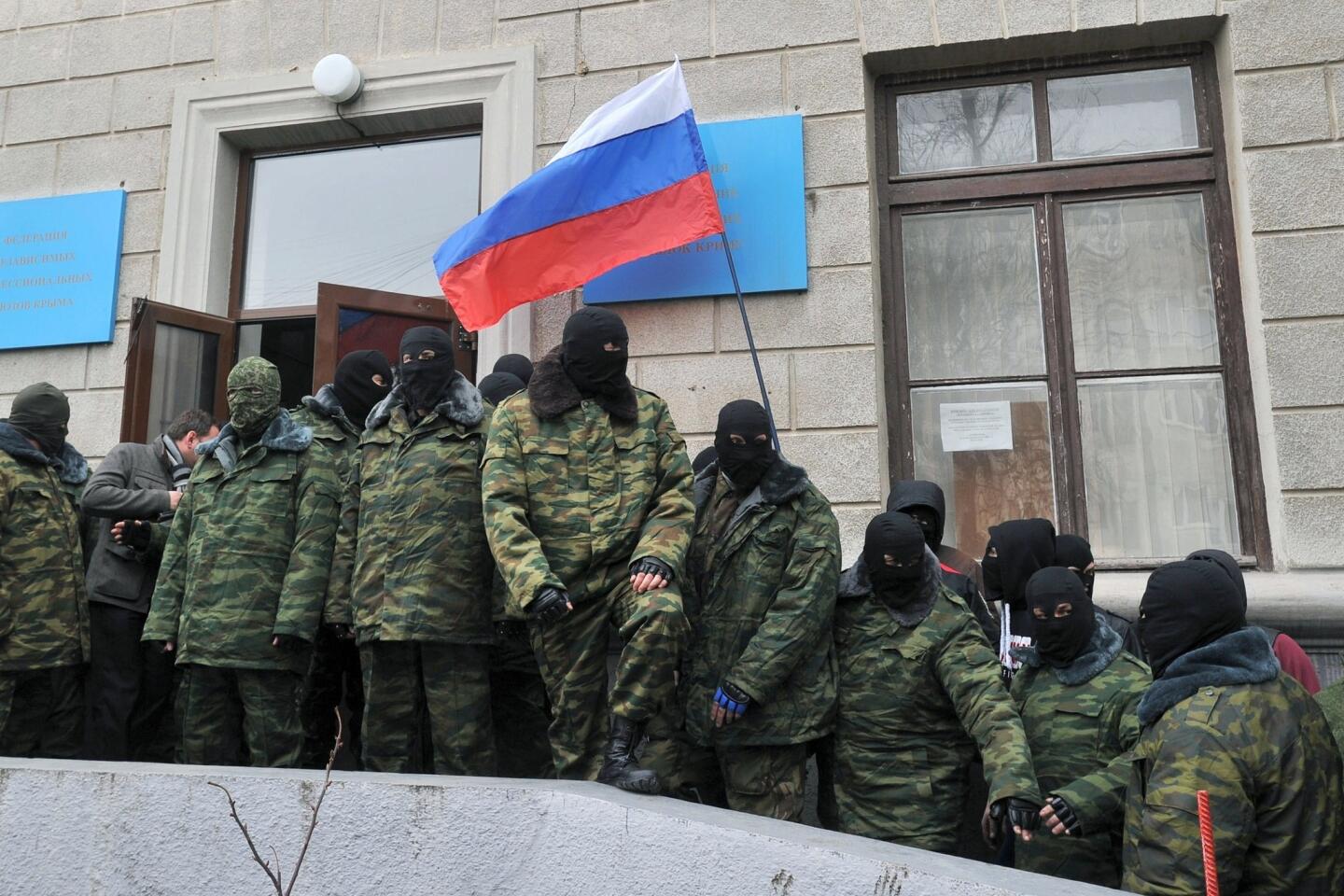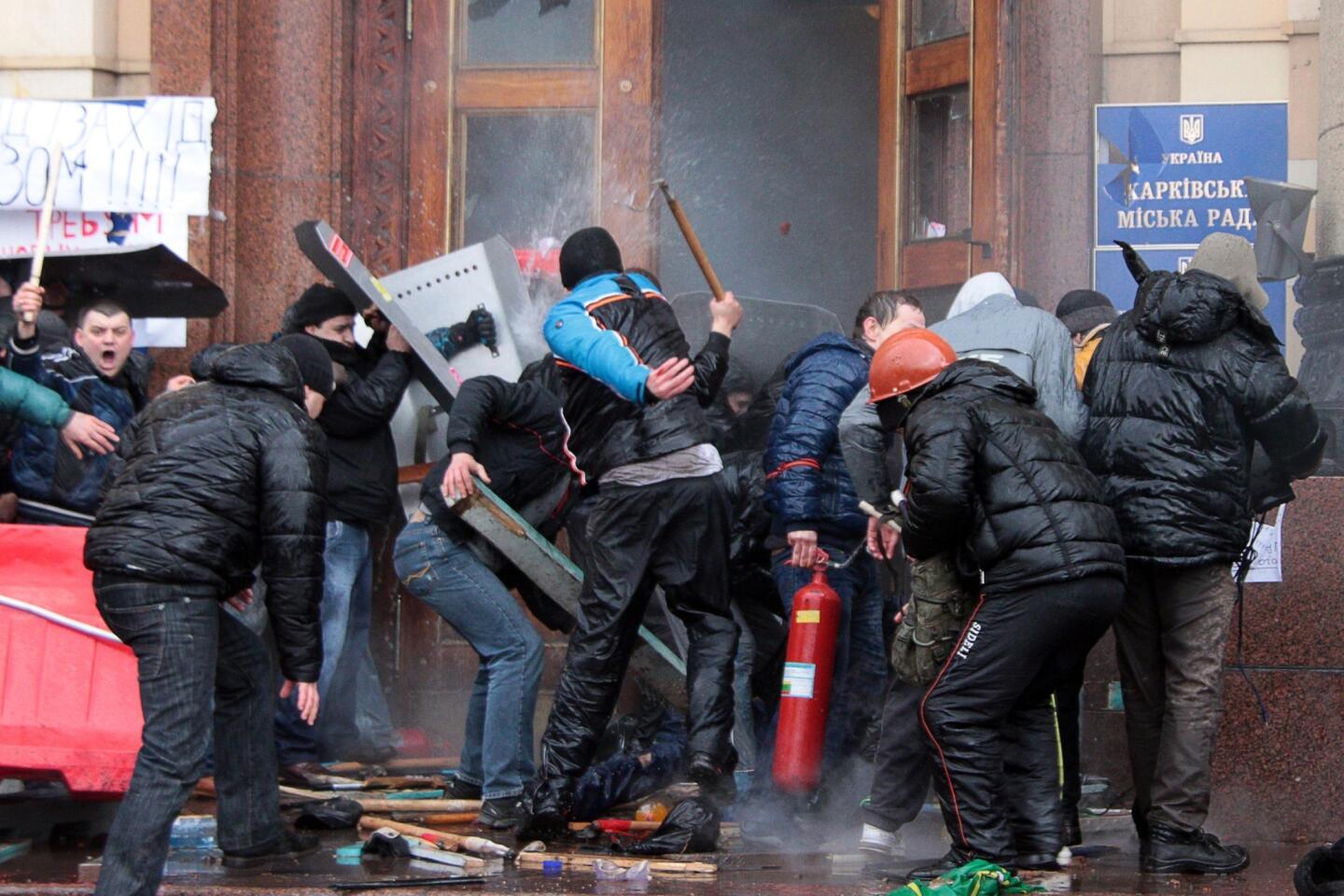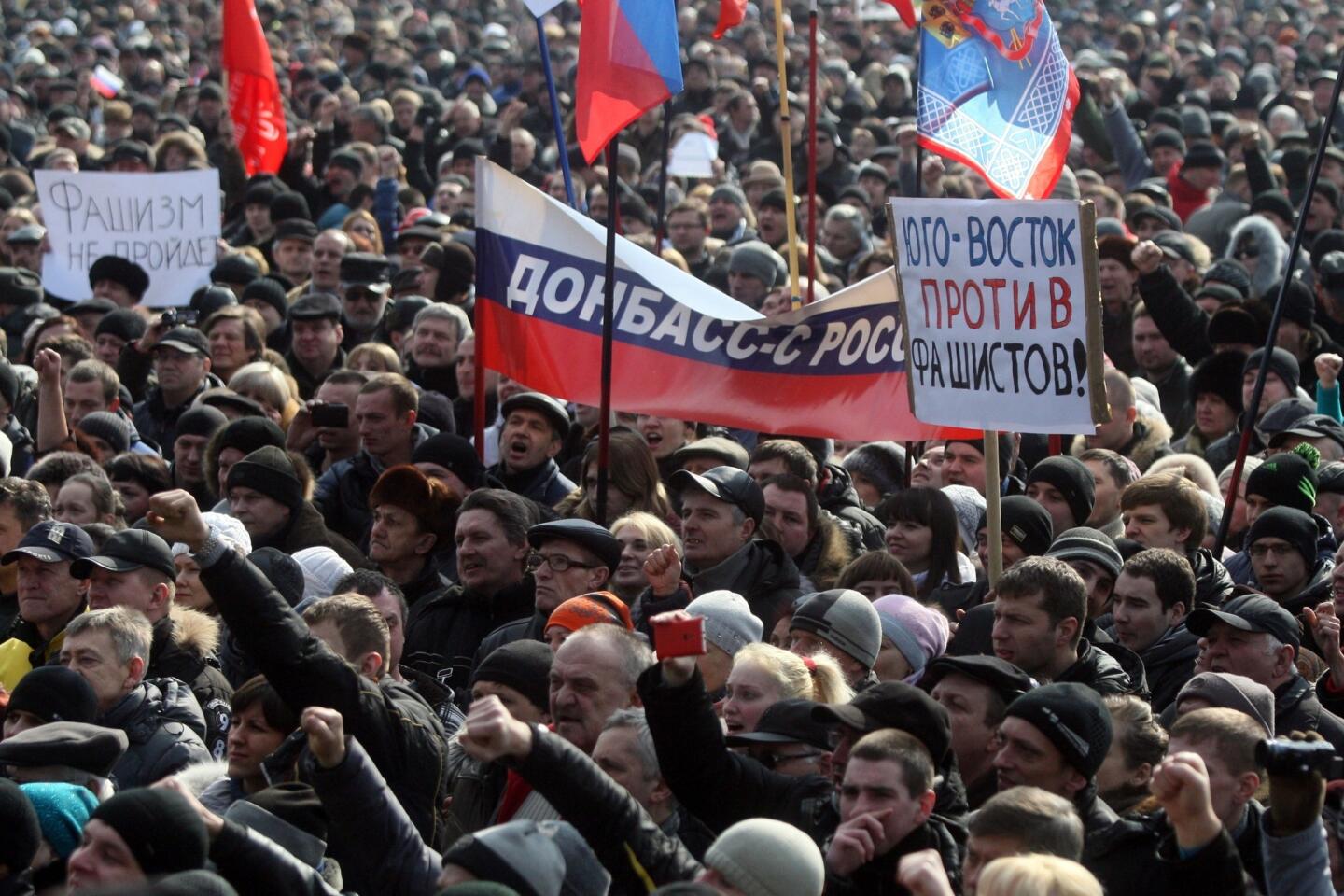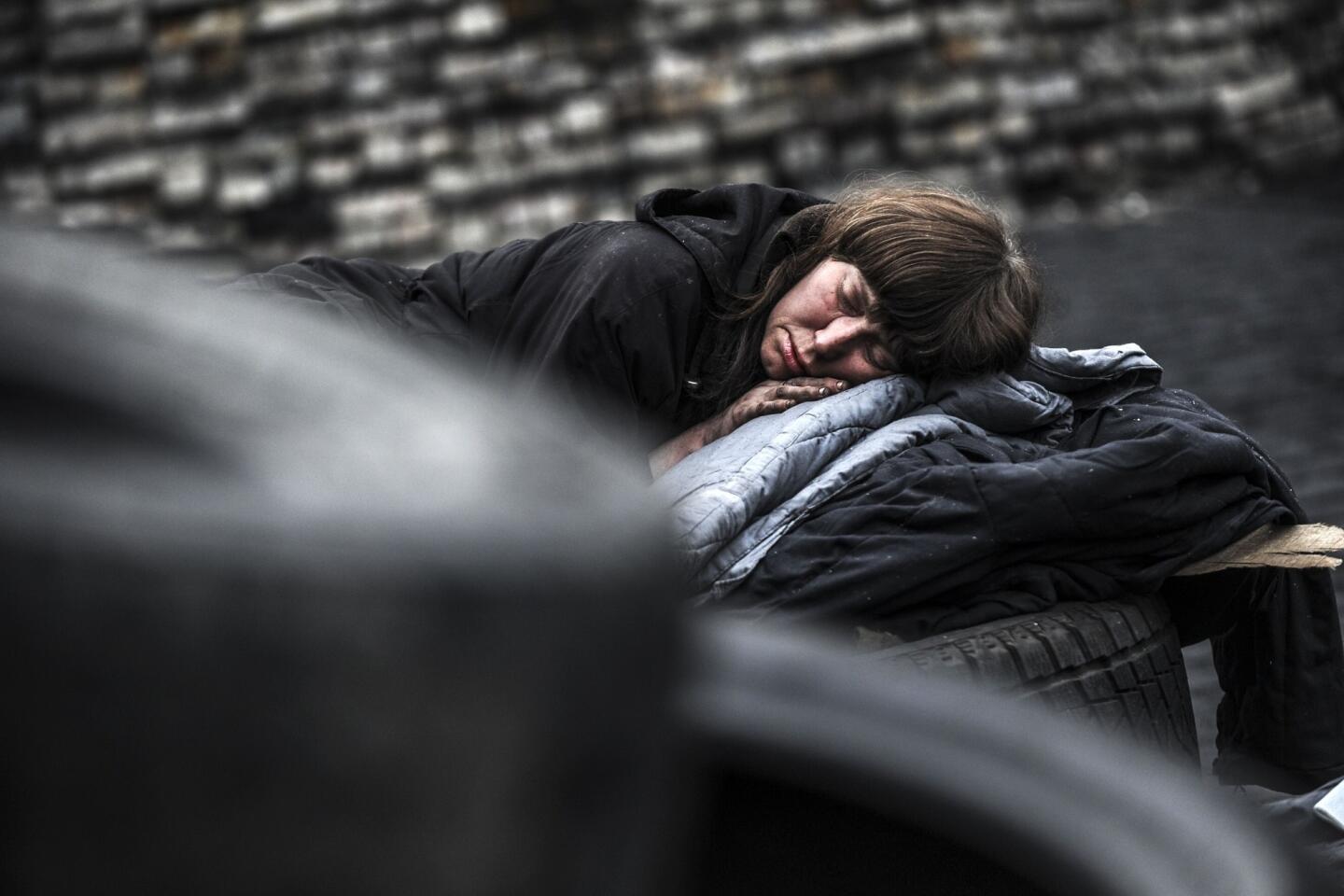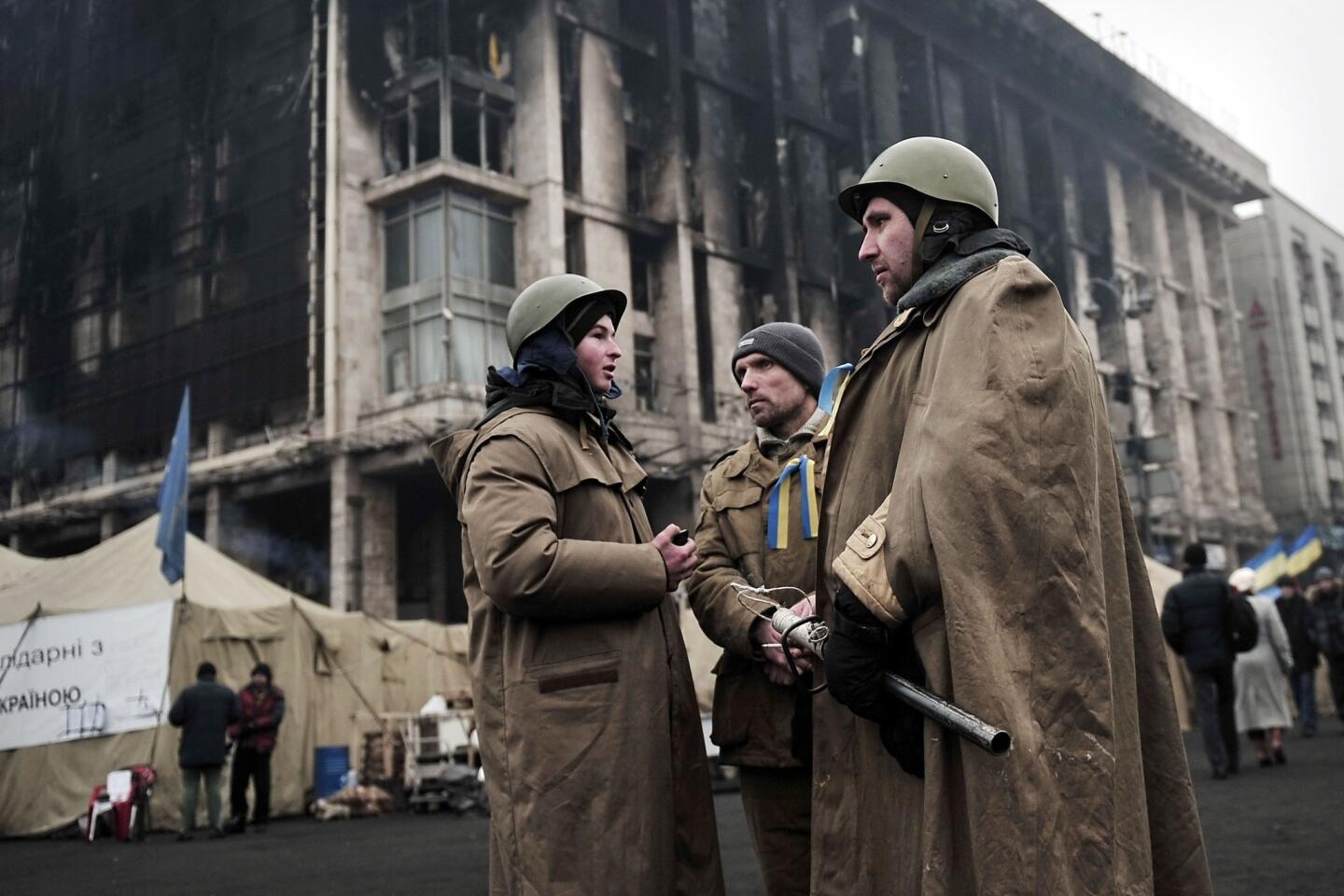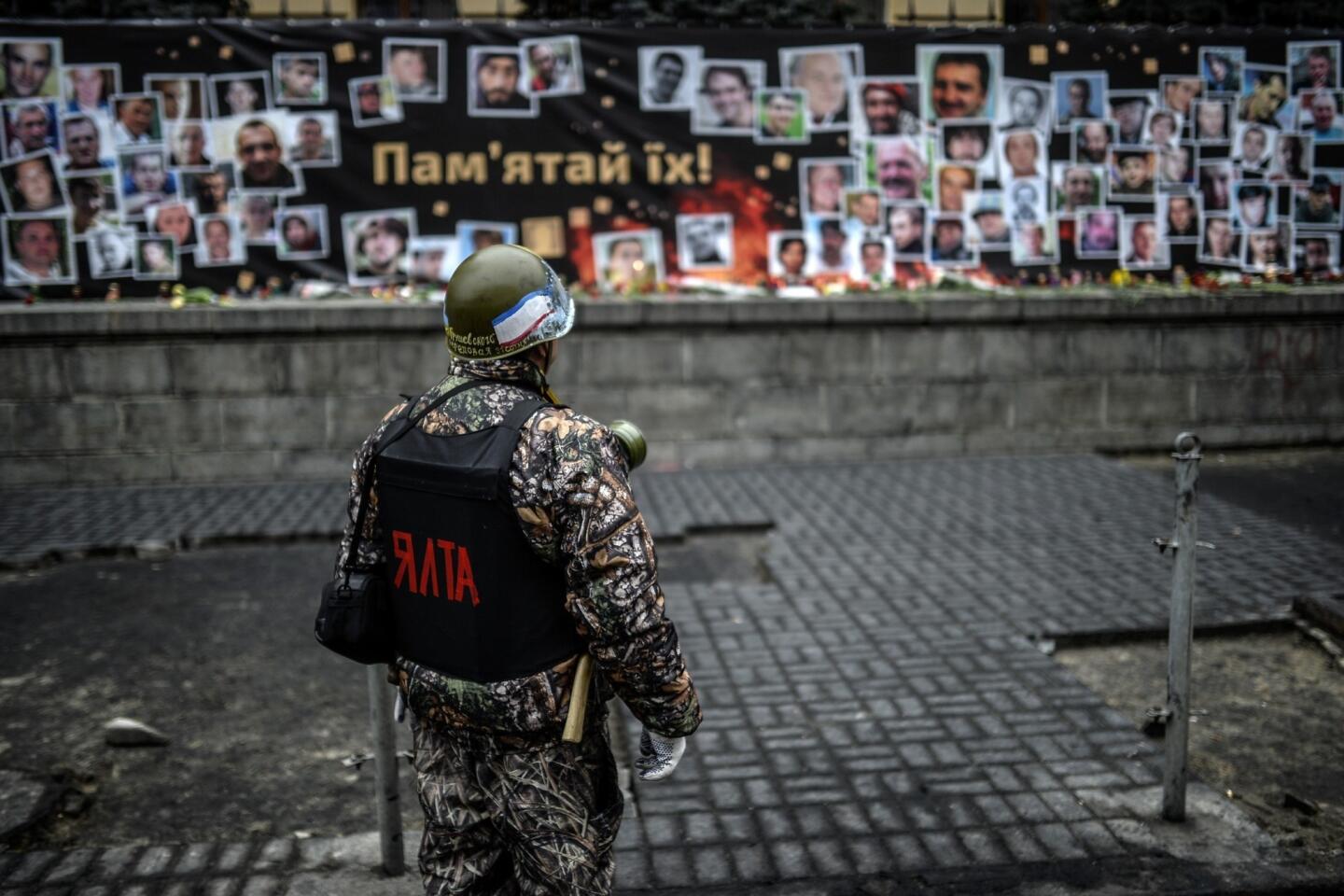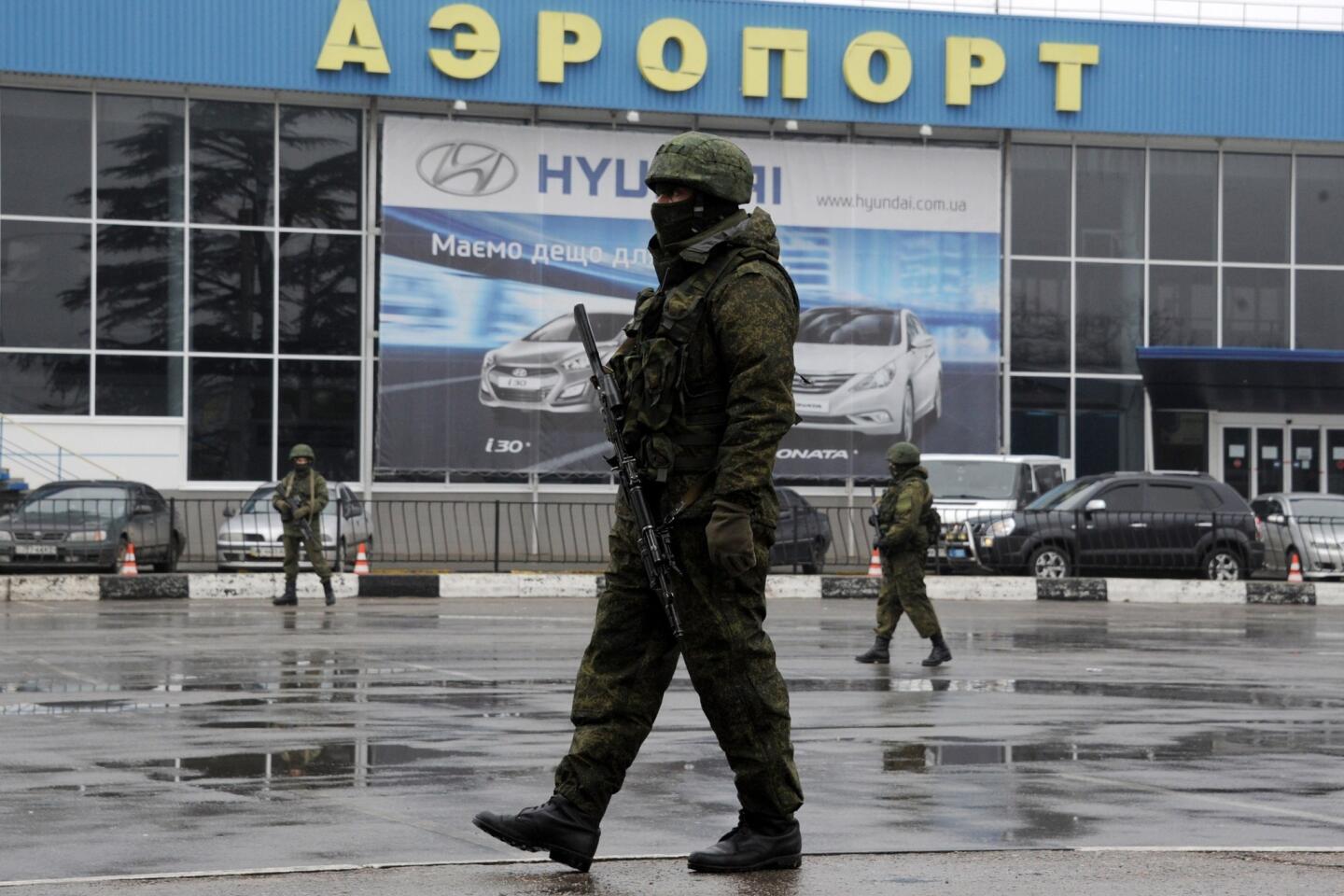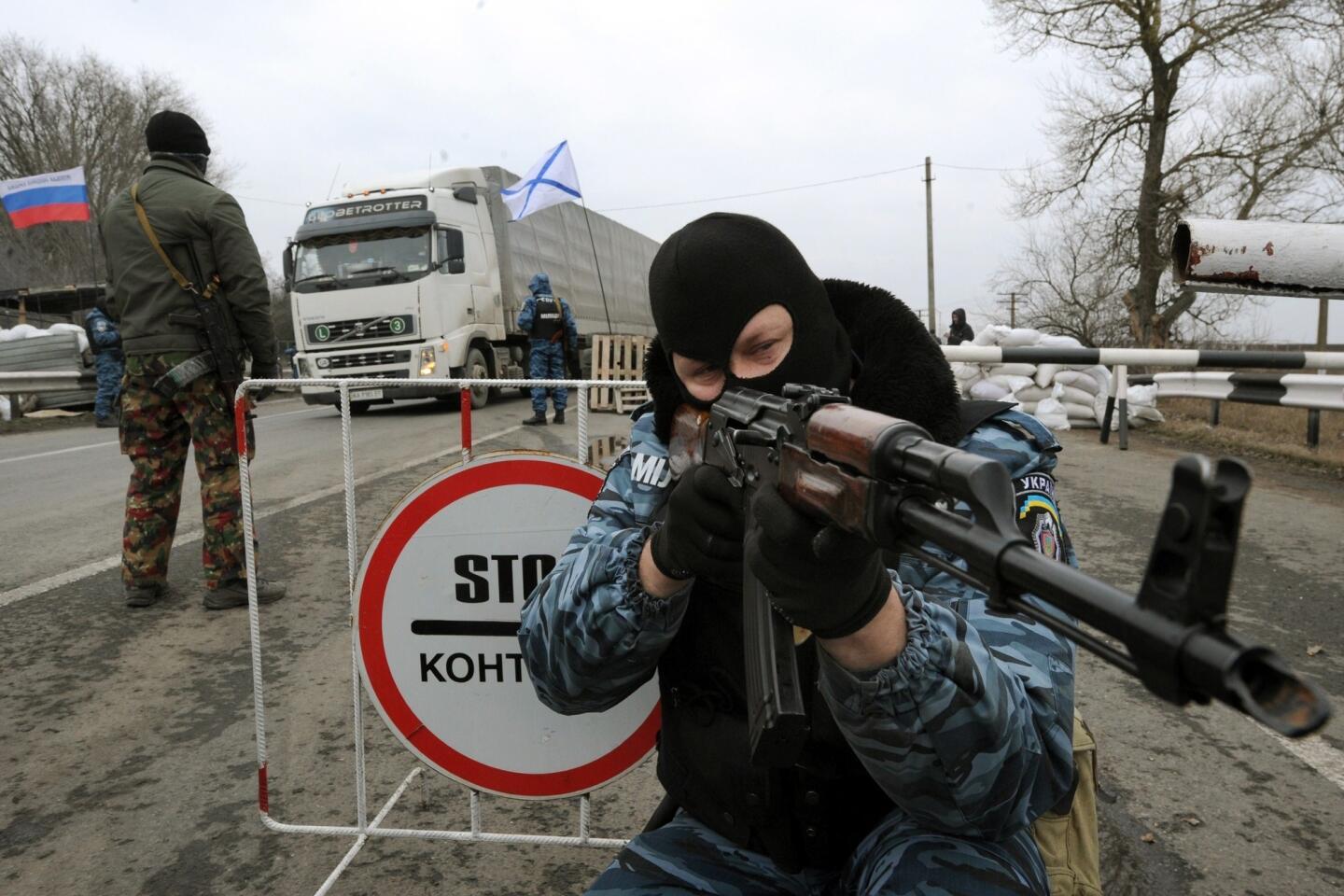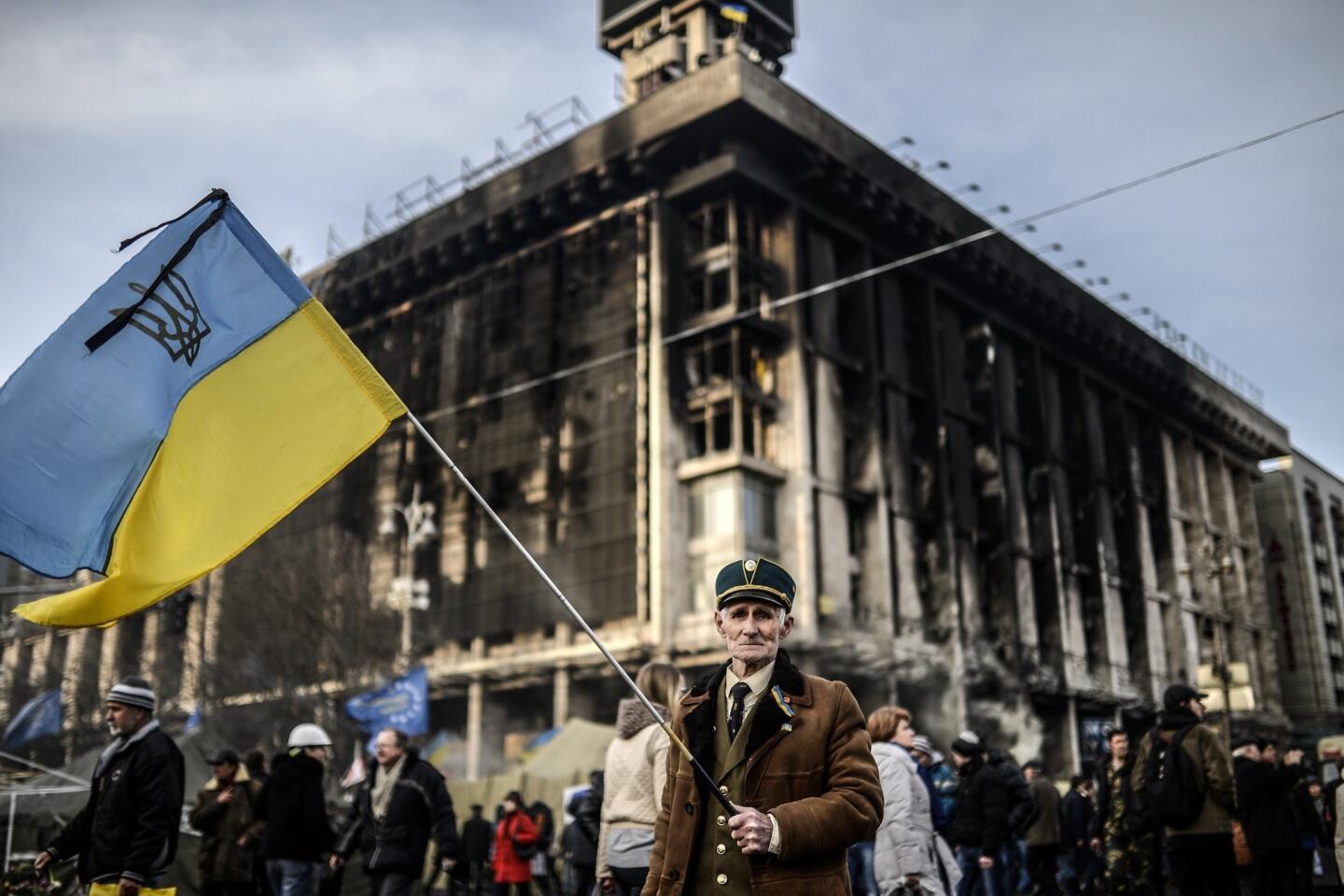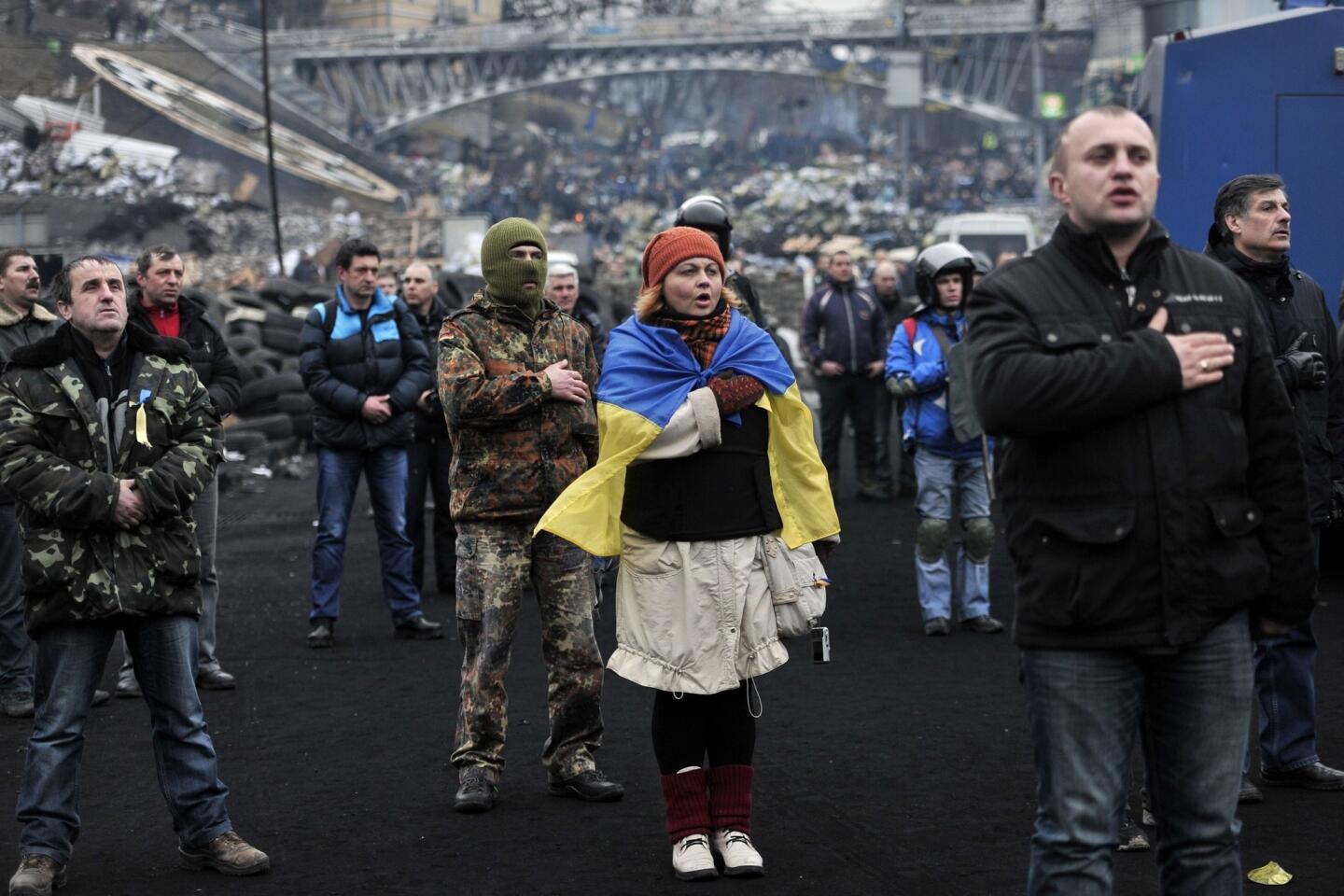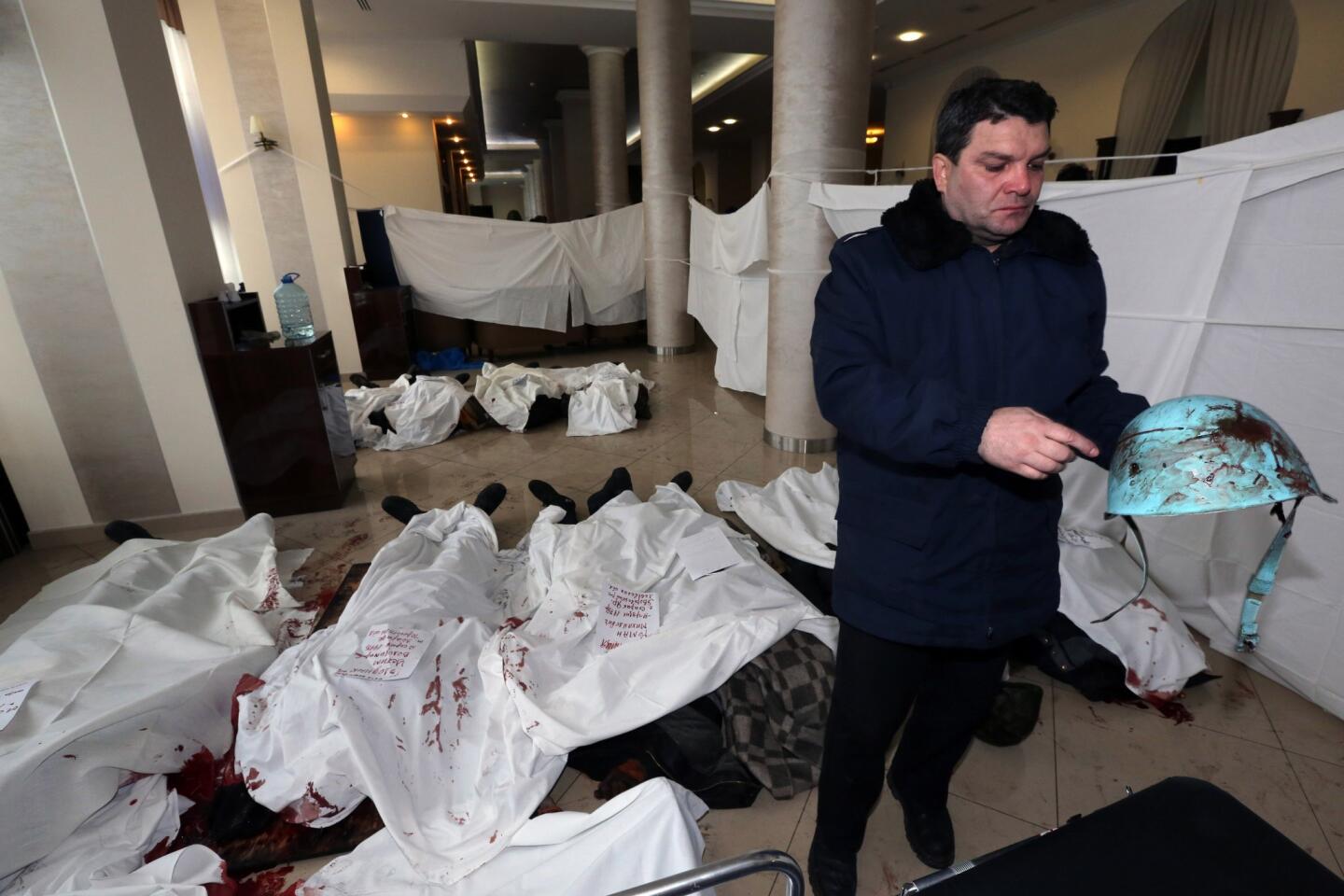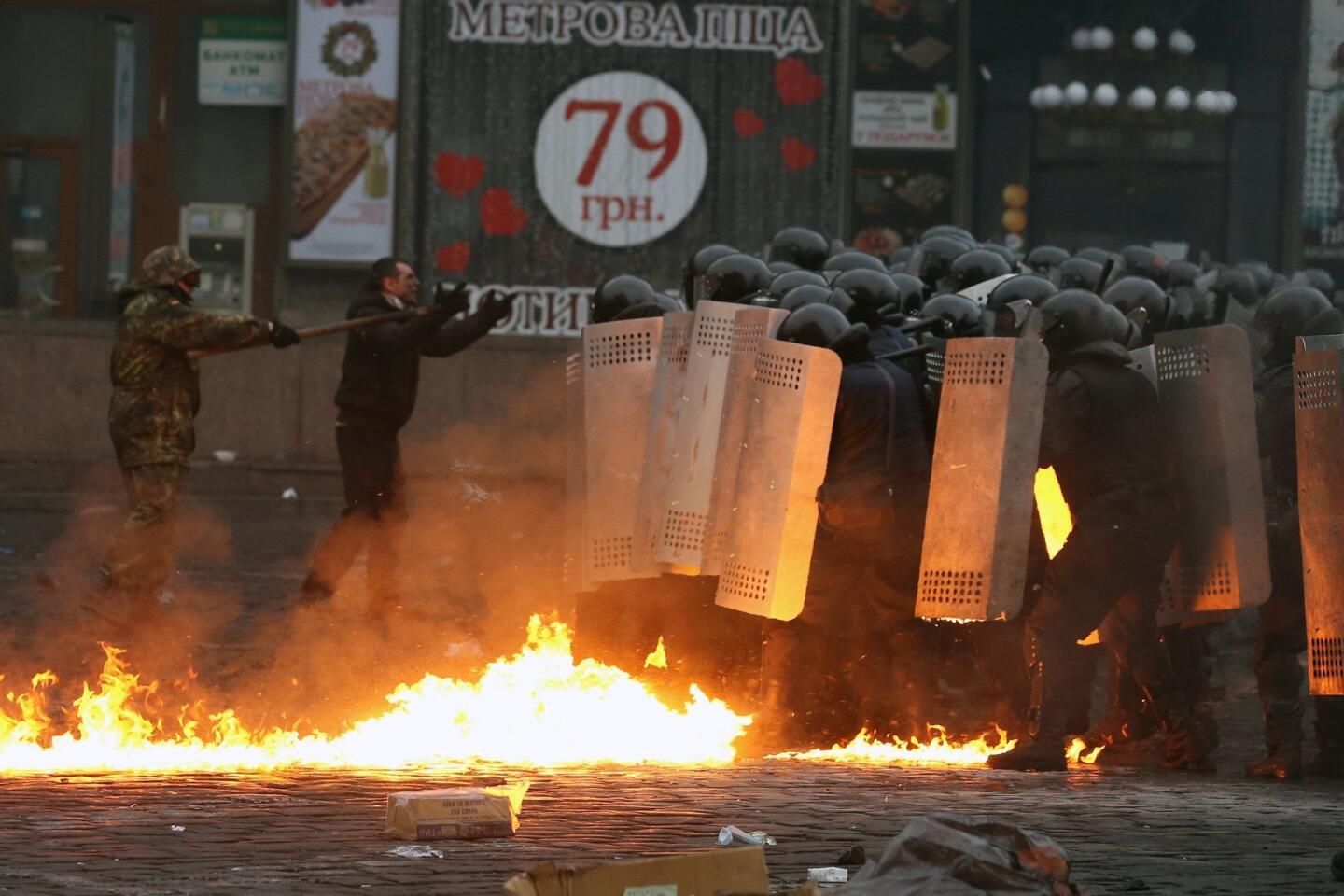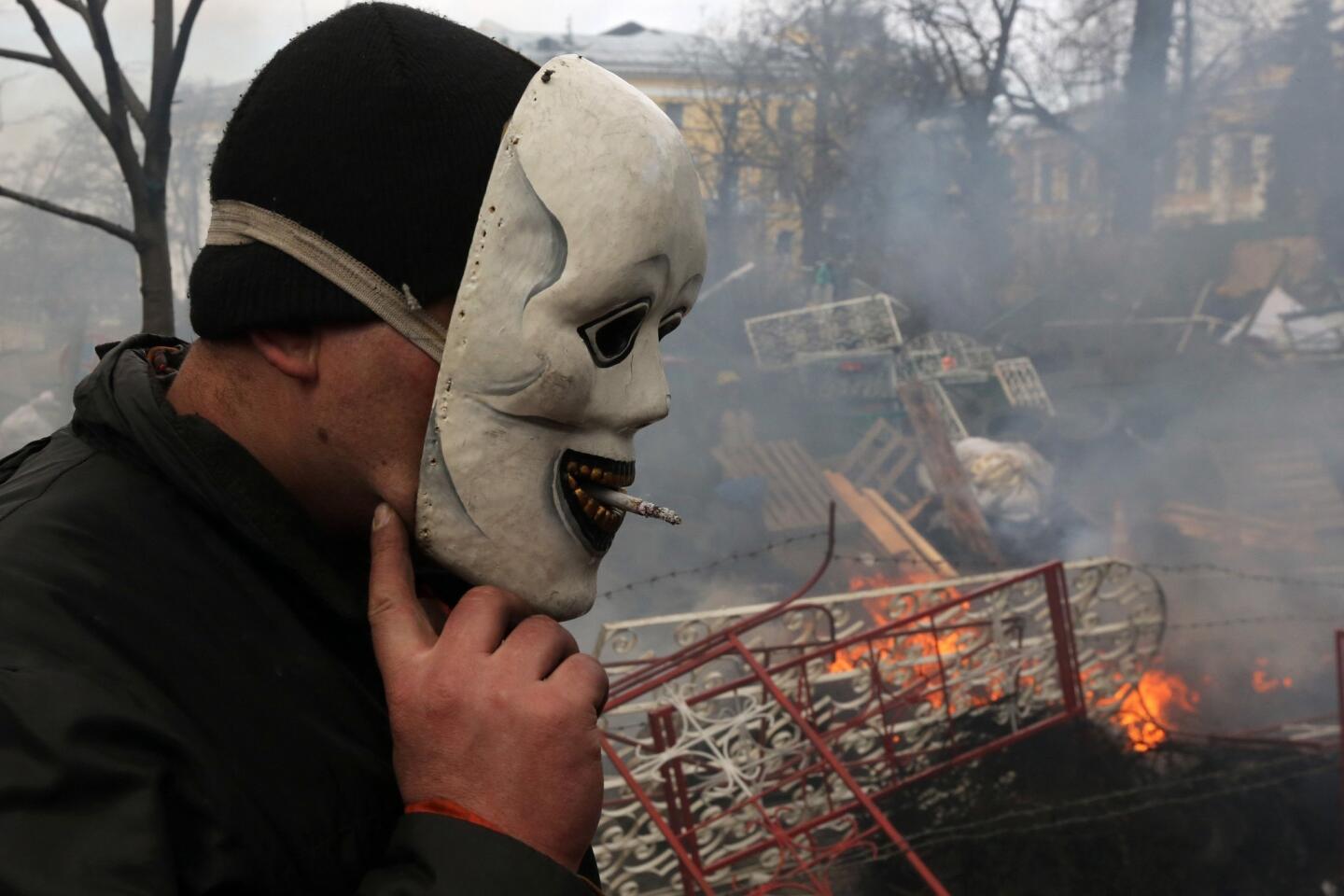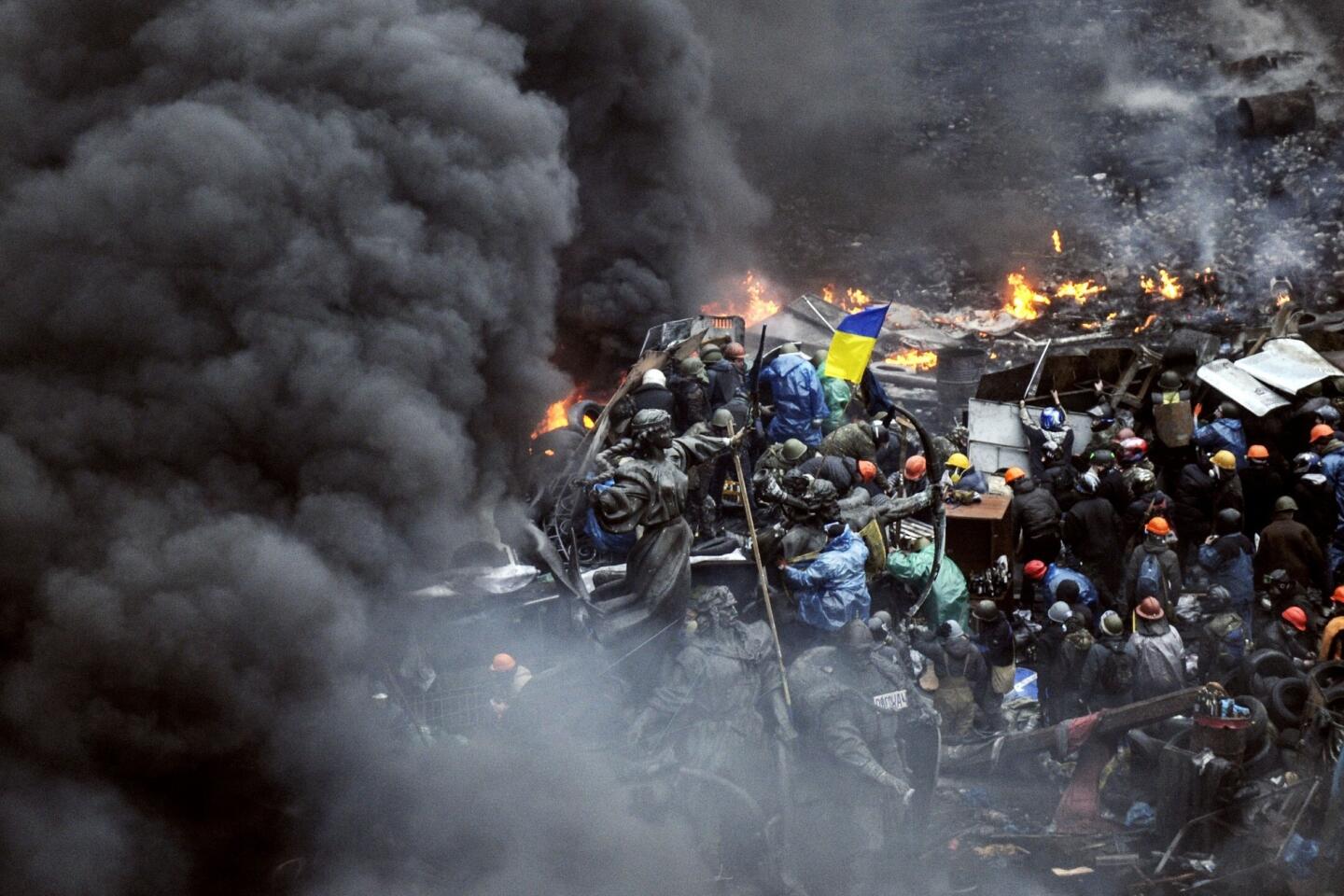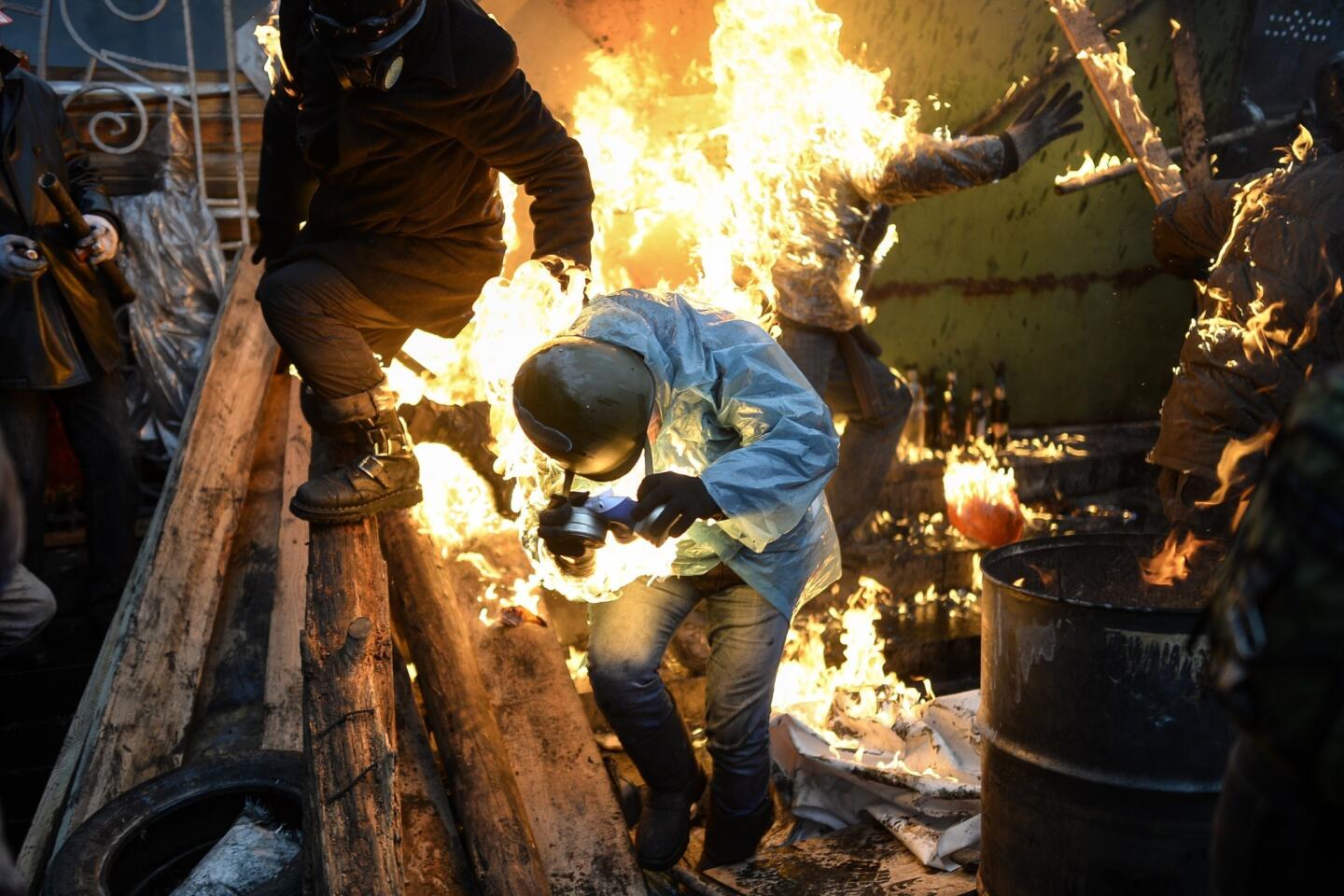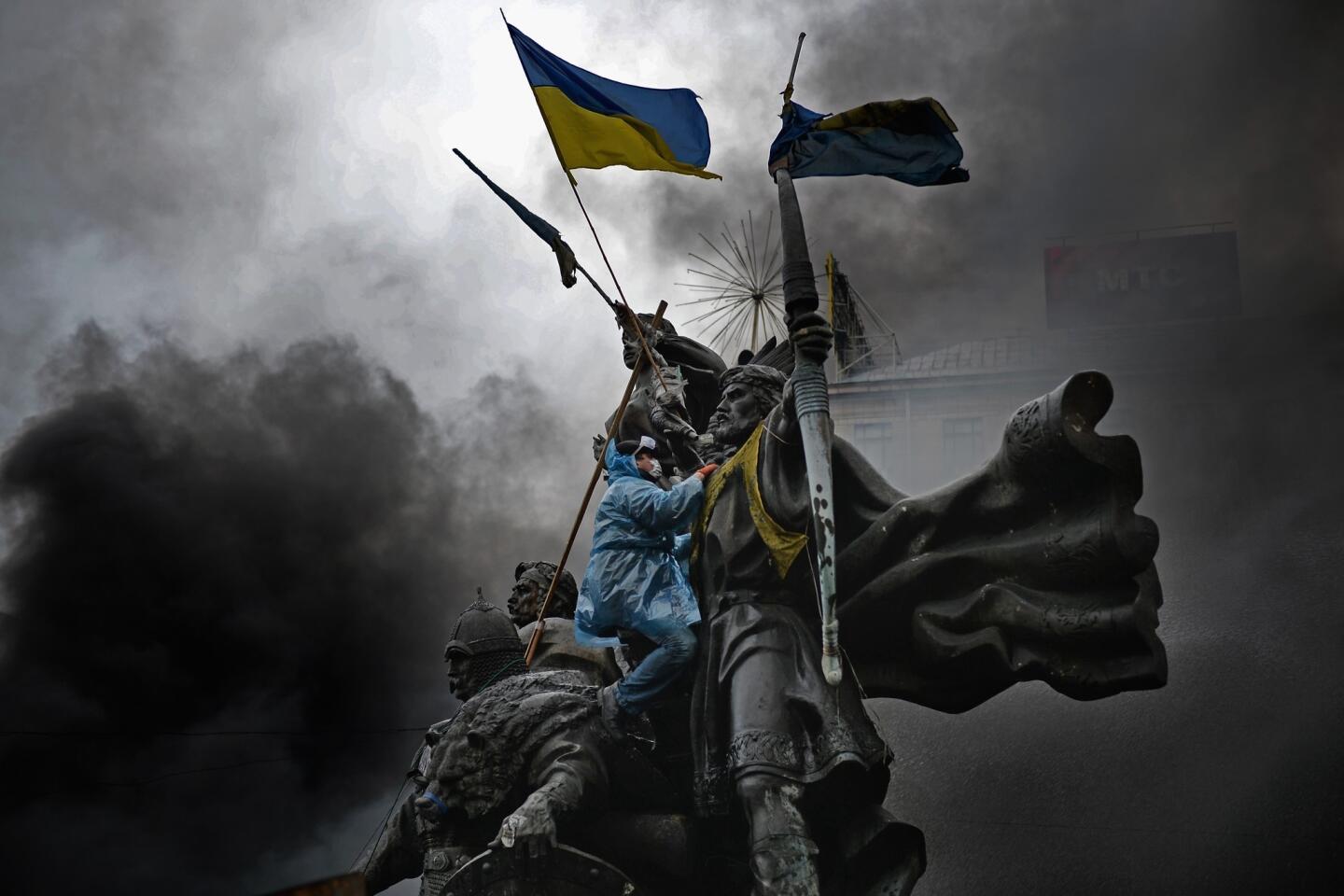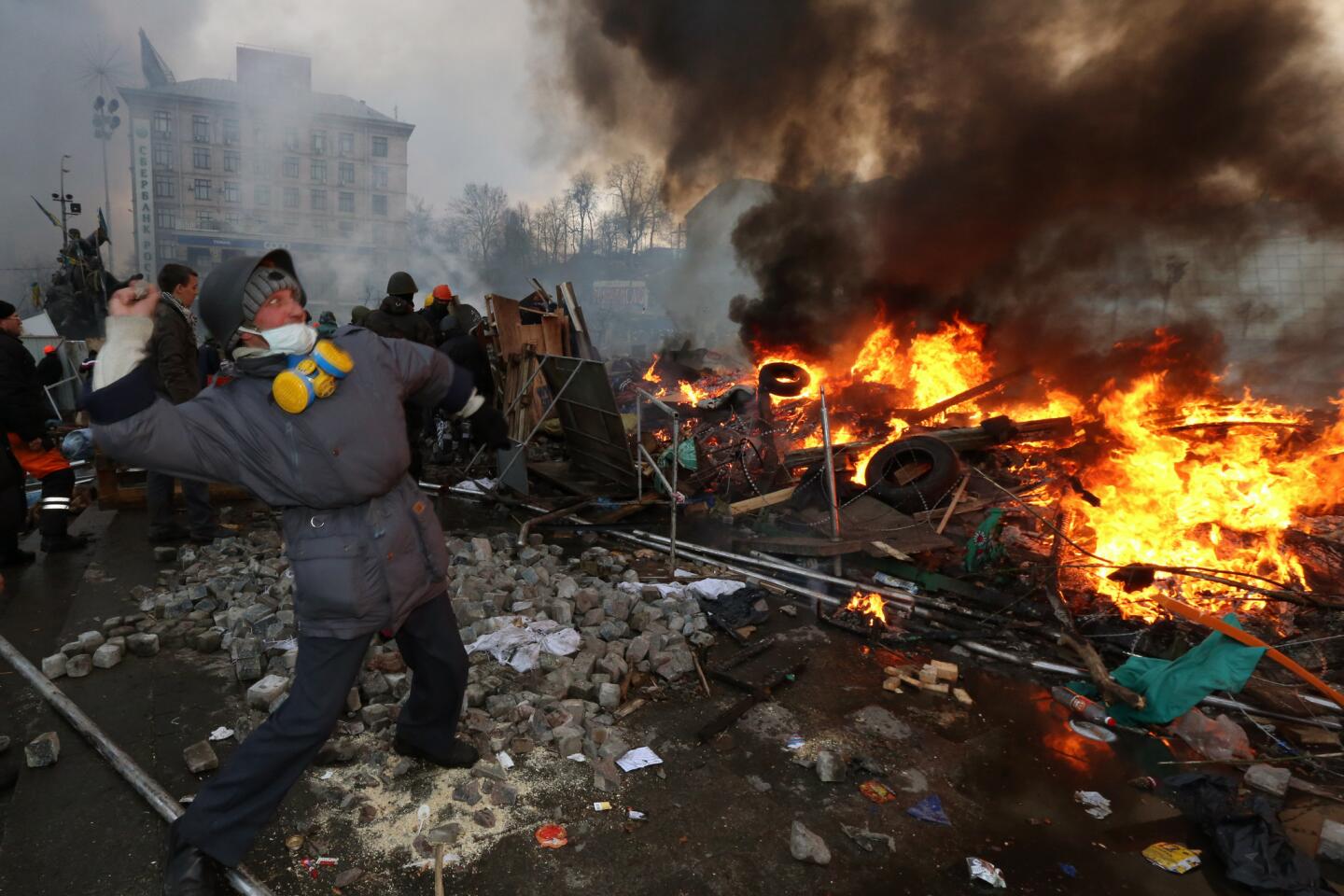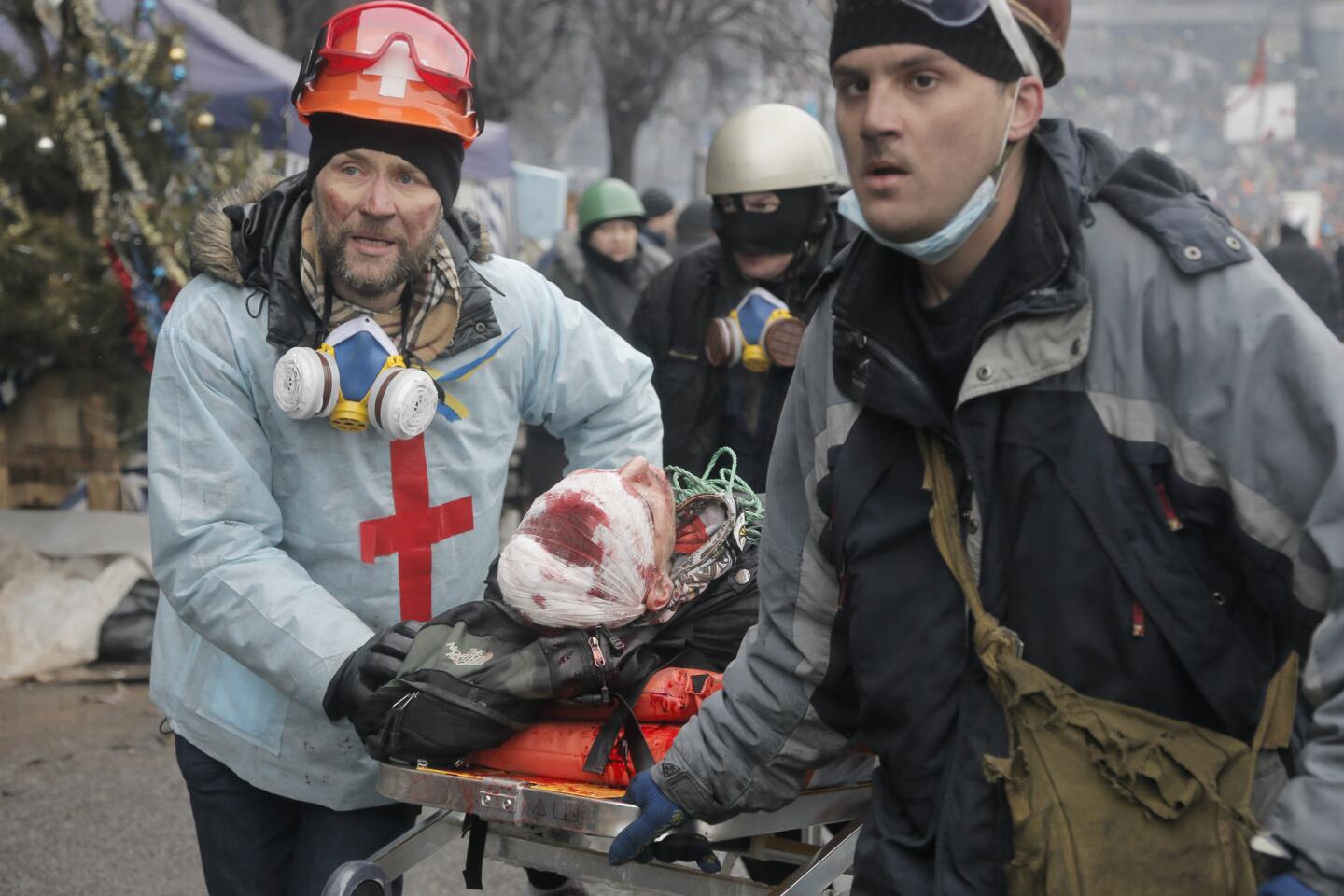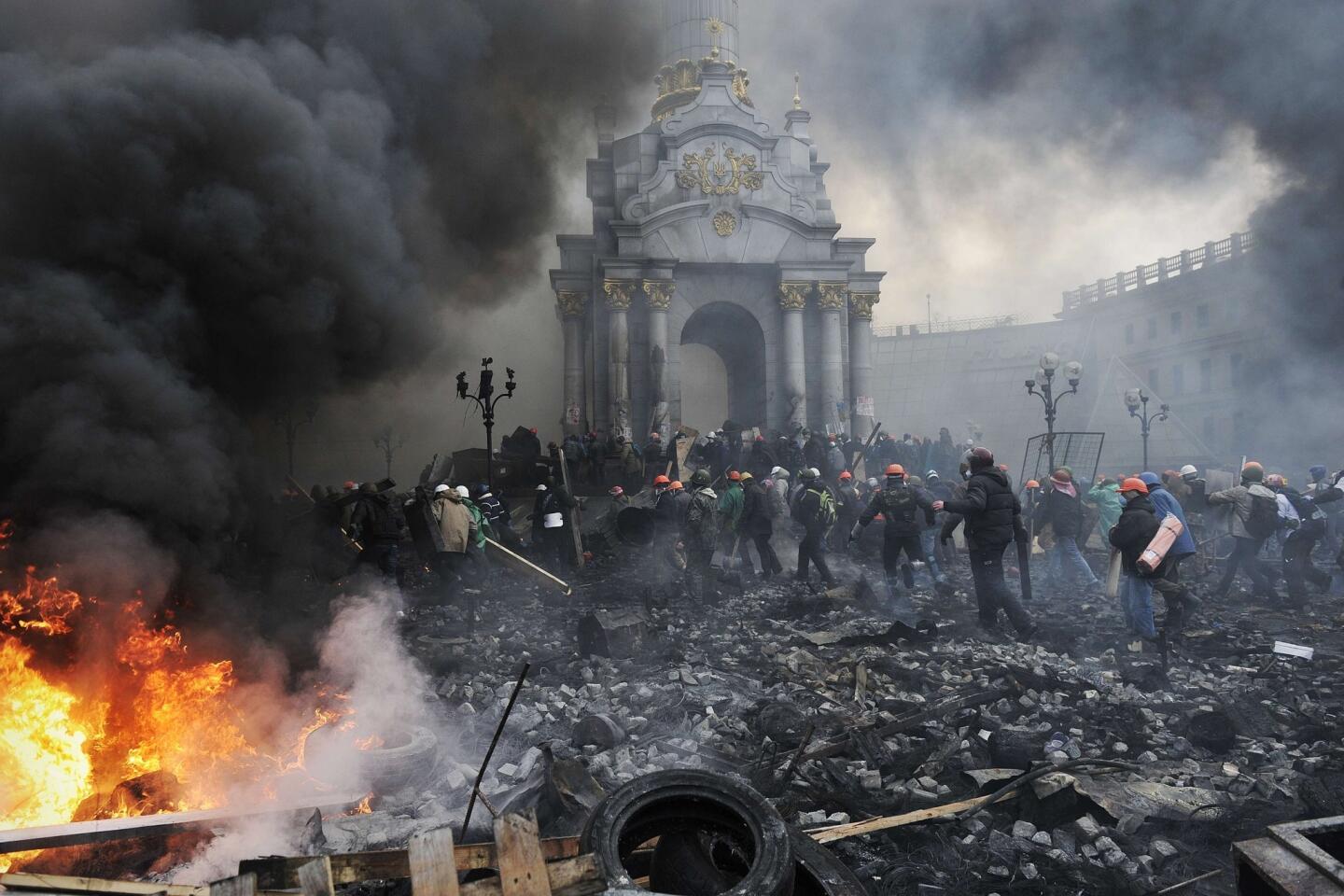Snipers kill 20 protesters in Ukraine; allies turn against Yanukovich
- Share via
KIEV, Ukraine — He bent over the limp body and raised a corner of the bloody white sheet that covered it.
Volodymyr Holodnyuk let out a dull moan and let the fabric drop.
He then picked up a blue helmet that lay at the feet of the body, its insides gummy with blood, and ran his trembling fingers along the surface until he found what he was looking for: a hole left by a 7.62-millimeter bullet, the sort used by a Dragunov sniper rifle.
The helmet, and the body, belonged to Holodnyuk’s son, Ustym, a 19-year-old engineering student who was among at least 67 protesters killed in central Kiev early Thursday, at least 20 of them brought down by snipers. One police officer also died.
The bloodiest day in months of protests prompted a backlash among political leaders, with the parliament voting to pull police off the streets and the mayor of Kiev, who had been considered a powerful ally of President Viktor Yanukovich, announcing that he was quitting the ruling party in protest of the violence.
Holodnyuk, a retired police officer from a town in western Ukraine, had arrived in Kiev early in the morning to meet his son and take him home. Ustym had spent about three months on the barricades as an activist in the opposition movement and needed some rest, his father said. They spoke by phone about 9 a.m. and arranged to meet at 11.
“I said to him, ‘Be careful, don’t stick your neck out today, because we’re going home,’” said Holodnyuk, 48, who wore his old police coat, dark blue with a cheap fur collar. “He replied with a laugh, ‘Not to worry, Dad! I am wearing my magic U.N. helmet and nothing’s going to happen to me.’ These were the last words my son ever said to me.”
“The blue helmet —” He lowered his head to the helmet, almost touching the drying blood with his face, and sank into an armchair, his massive frame shaking as he tried to stifle his sobs.
A doctor knelt next to him, touching his hand, meeting his eyes. “I don’t think we can allow you to take your son’s body away now,” she said gently, measuring her words. “If you are stopped by the police with a dead body in your car, you can be arrested.”
Dr. Olga Bogomolets said none of the 20 protesters killed by snipers Thursday could have been saved.
“I am not a specialist in ballistics, but I have no doubt that whoever shot them was shooting to kill,” said Bogomolets, chief doctor at the opposition’s emergency medical center at the Ukraine Hotel, which had become a makeshift morgue. “Some of them died on the spot, some here, but we didn’t have a solitary chance to save them.”
Of the 20, eight were taken to the city morgue and 12 to the hotel. Overall, city officials said, the death toll over three days of violence was 96, including 10 police officers.
Bogomolets said all the bullets her staff extracted were identical, 7.62-millimeter. She said dozens of protesters were injured by bullets.
Most of the deaths occurred within minutes in the morning after a relative lull in the clashes, the result of a truce reached late Wednesday between Yanukovich and opposition leaders. The sniper attacks appeared to provoke protesters into a desperate charge, pushing fast-retreating police forces away from Independence Square, the center of the protest movement since it began in November.
“Some of the protesters here had their officially registered hunting rifles with them, and they started shooting back,” said Nikolay Mosiyenko, a 46-year-old retired lieutenant colonel of the Ukraine Armed Forces, who joined the protest at its outset last fall.
The counterattack by protesters led to street fighting that looked more like medieval warfare than a modern riot. With several policemen down with shotgun wounds, commanders gave an order to retreat. Many police officers fled in police buses carrying their wounded comrades, but dozens stayed behind to face a fierce battle with protesters armed with clubs, wooden sticks, metal rods and Molotov cocktails.
As the fighting engulfed Europe Square in central Kiev, hundreds of men attacked one another with clubs, most protecting themselves with metal and wooden shields.
Soon the police were fleeing, dropping shields, clubs and even flak jackets. Some of those who stumbled, fell or were thrown to the ground were set upon by attackers who hit them with sticks, kicked them with boots and took them away.
“If that was the idea of Yanukovich’s anti-terrorist operation, I must say, it failed utterly,” Mosiyenko said. “He never got the backing of the army in a situation when the police can no longer cope.”
Mosiyenko was referring to a government warning Wednesday that it was undertaking an “anti-terrorist operation” to end the protests, which began in response to Yanukovich’s decision to turn down an alliance with the European Union in favor of closer ties with Russia. The uprising has divided Ukrainians, with many in the industrial east, closest to Russia, supporting Yanukovich. The opposition has strong support in the European-facing west and in the capital, Kiev.
As Mosiyenko spoke, an exchange of gunfire broke the relative calm around the newly erected barricades in Institutskaya Street, which leads to the presidential administration building. Two protesters standing within a few yards of Mosiyenko collapsed to the ground, screaming and writhing in pain.
“Take cover, it’s a sniper shooting!” somebody shouted. A paramedic team ran with a stretcher and evacuated the injured men. One had been shot in the stomach, the other in an arm.
In the meantime, police regrouped a mile away, around the government and parliament complexes. Authorities said at least one policeman was killed and 25 injured. In addition, the Interior Ministry said 67 of its officers were being held by the opposition.
“The state of their health and their fate remain unknown so far,” the ministry said on its website. “The Interior Ministry of Ukraine reminds [the public] that law enforcement officers have the right to use all means allowed by law, including firearms, to free their colleagues.”
Yanukovich met with the foreign ministers of Poland, Germany and France, which, along with the United States, have expressed increasing alarm over the situation in Ukraine. The European Union has threatened “targeted sanctions” against Ukrainian leaders responsible for the violence, and the United States banned the issuance of visas to 20 unidentified Ukrainian officials.
At an urgent session late Thursday, the parliament voted to call off the operation against protesters and ordered all law enforcement officers to cease fire and return to their barracks, the UNIAN news agency reported. About 50 lawmakers with Yanukovich’s ruling party switched sides to vote with the majority.
“Our mission today is to save human lives and the country,” opposition leader Arseny Yatsenyuk told reporters after the session. “The parliament has made one of the most important steps.”
One prominent political scientist said the vote was a significant blow to the president.
“This is the first vivid testimony that Yanukovich is a lame duck, whose loyalists are already abandoning his sinking ship,” Igor Popov, president of Politika Analytical Center, a Kiev-based think tank, said in an interview. “But it is not obvious that riot police will obey parliament’s recommendations and confine themselves to their barracks.”
Also Thursday, Kiev Mayor Volodymyr Makeyenko said he was quitting Yanukovich’s party in protest.
“None of the oligarchs died, none of the politicians died, but I as city administrator am busy burying dozens of ordinary people,” Makeyenko said in a statement on his official website. “The events taking place in the capital of Ukraine are a tragedy for all Ukrainian people. I suggest that every lawmaker, regardless of his party, become part of a live chain between Ukrainian citizens in uniform and Ukrainian citizens in civilian clothes for the sake of stopping combat activities and bloodshed!”
Vadim Karasyov, director of the Institute of Global Strategies, a Kiev-based think tank, said the day’s events had backfired on Yanukovich. “Whatever he does now, he is doomed as a politician and as a statesman,” he said.
Holodnyuk, the father of slain Ustym, blamed Yanukovich personally.
“I don’t know if Yanukovich should kneel in front of me, but I am confident that this man should certainly sit in front of an international tribunal for what he has done to my country and what he has done to my son.”
Special correspondent Victoria Butenko contributed to this report.
More to Read
Sign up for Essential California
The most important California stories and recommendations in your inbox every morning.
You may occasionally receive promotional content from the Los Angeles Times.
